




















































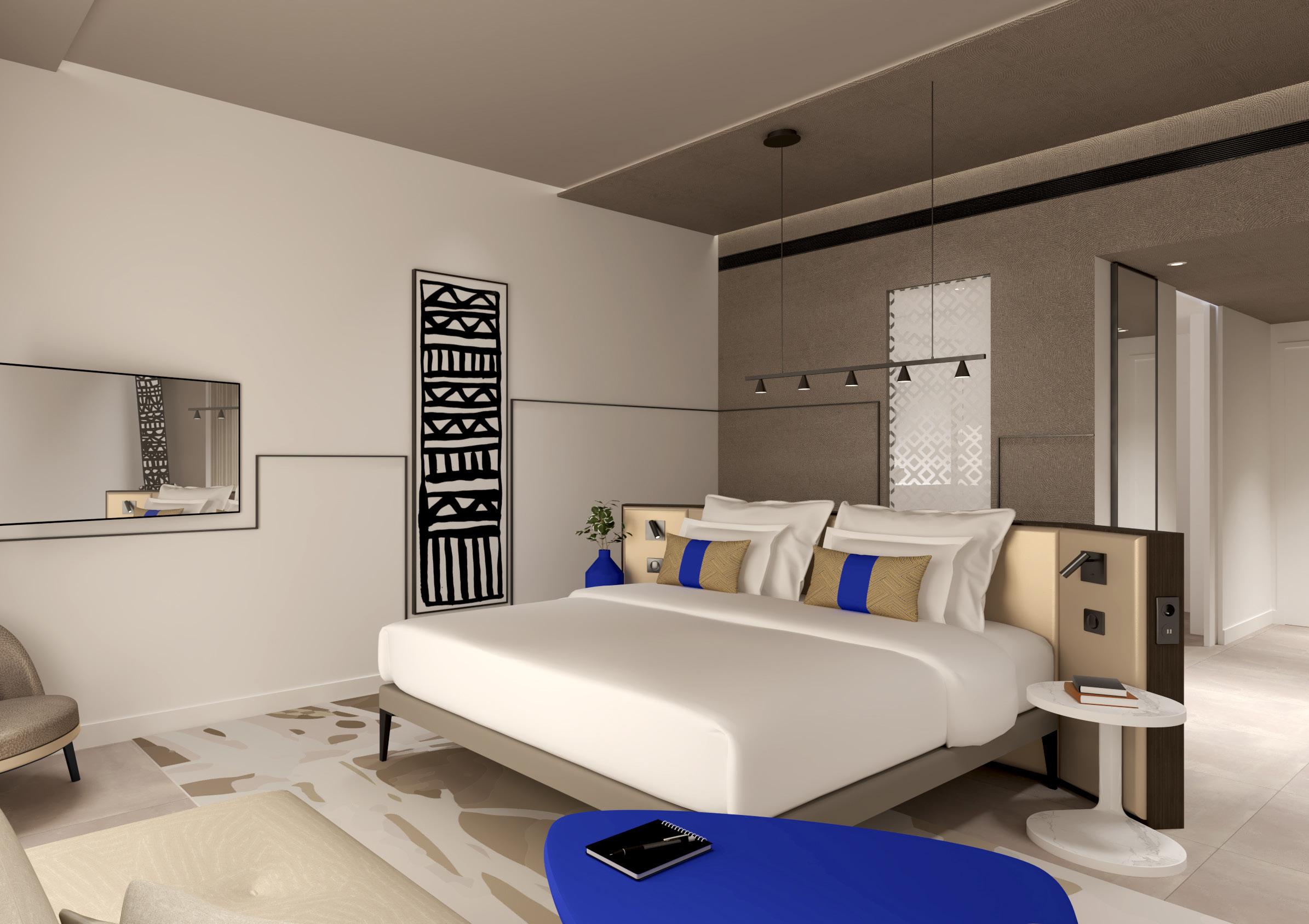
Look into where you put your money. Is it tangible and different from most investments?
Worldwide investors are putting their money in a variety of real estate, not in 5 star Hotels only. Beyond stocks and funds, investors are increasingly rounding out their portfolios with assets in real estate, art, renewables, robots and the appetite for other investments has increased since past year. With more people working from home still, upgrading to bigger residences, mix use with more outdoor space has driven investments in real estate with extra space for exercises, family and startups. On the commercial side, many offices are still remaining vacant to this day so business owners and investors of offices that are looking to those investments now say what’s happening for those in the future. What are we going to do?
Given their added educational value, London, New York and Portugal remain real estate investment hotspots for investors in student residencies or housing.
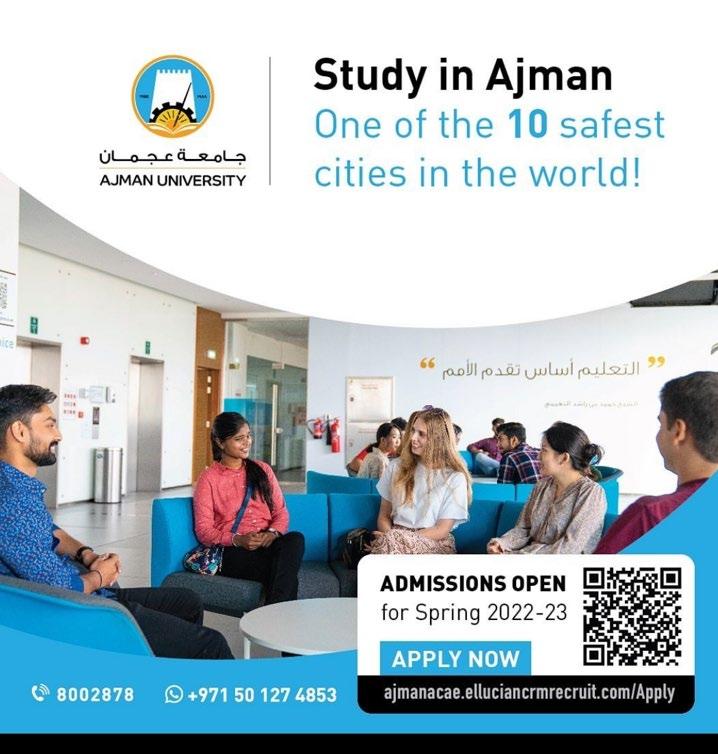
The real estate market has seen a large increase in big villas value and upper scale spaces within green, sea coast and mountains areas spots, where other activities can be exercised without using vehicle or other motor means. Most investors coming from Europe, USA etc are looking for a second home in ALBANIA.
A party that takes on fractional ownership of a property can make personal use of the purchase space and earn revenue and not in use can rented out.
Rudina Hoxha Founder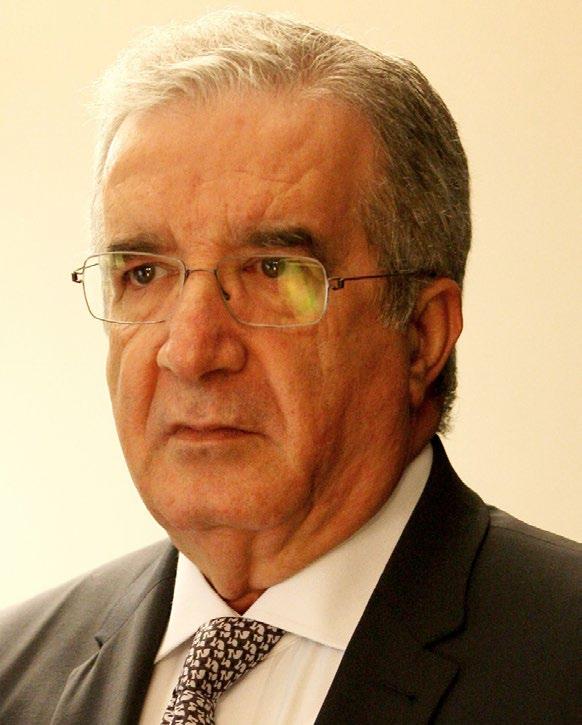

The fractional ownership platform is once again becoming a robust demand for property investment in several countries worldwide. The platform allows local and international investors to invest minimum amounts in a part of a property and get annual proportional returns out of it. The launch of Real Estate Share comes in line with that country’s initiative which aims to provide investment options for new residents.
But what is it? Are you ready to accept it?
Fractional ownership is a form of collaborative consumption where the overall cost of a property is split among a group of owners/investors
This has been met with enthusiasm from investors of all sizes since it addresses the major roadblocks in securing the real estate investment and also securing a substantial down payment along with sizable monthly or other agreed type of mortgages. With this platform, anyone now has a chance to invest in a tangible asset that has potential for significant appreciation and benefit from a passive income stream. It also makes the investors to benefit from property ownership with less capital and without having to face the management of it therefore it reduces barriers to real estate investing.


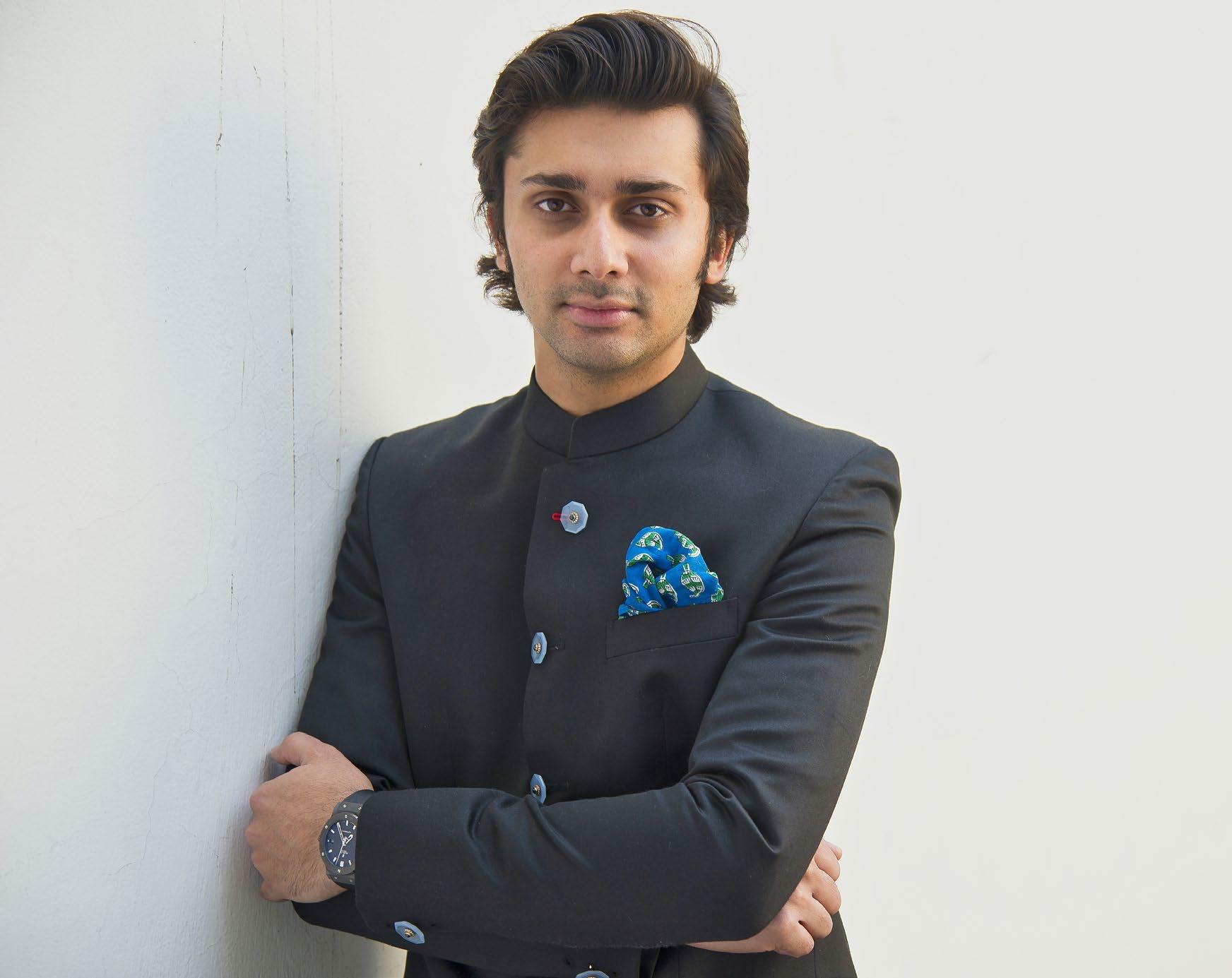
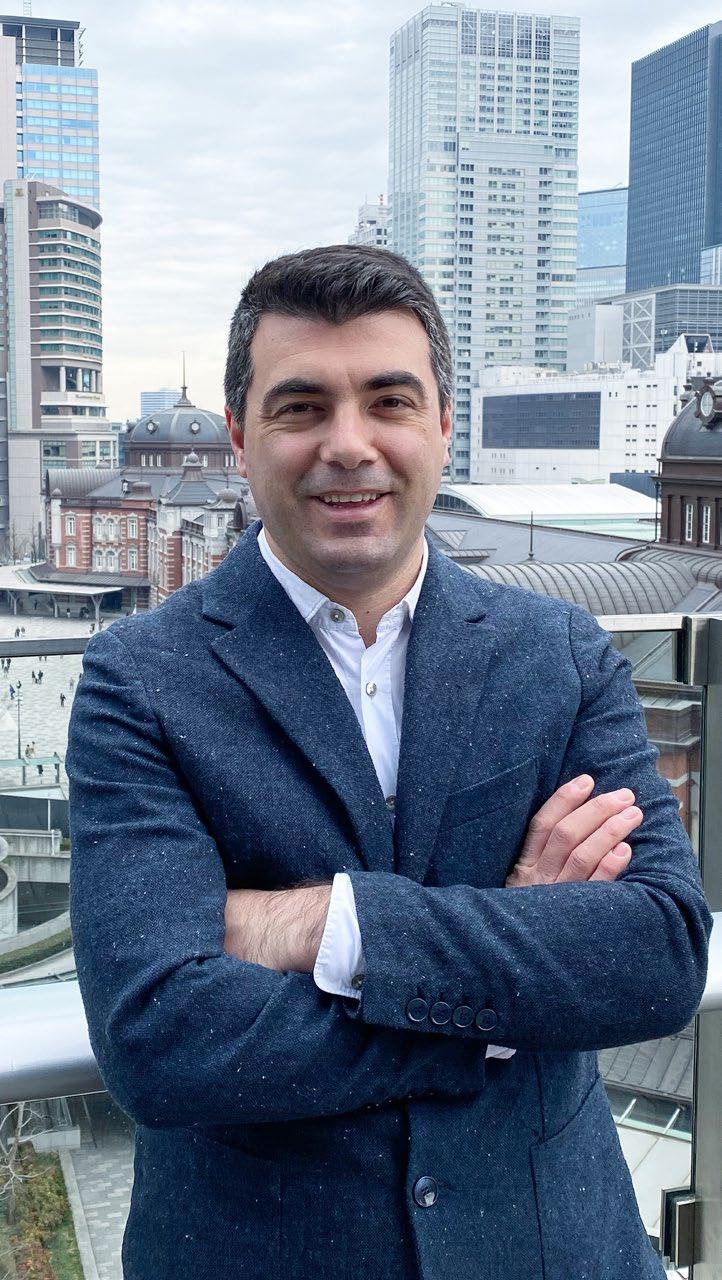
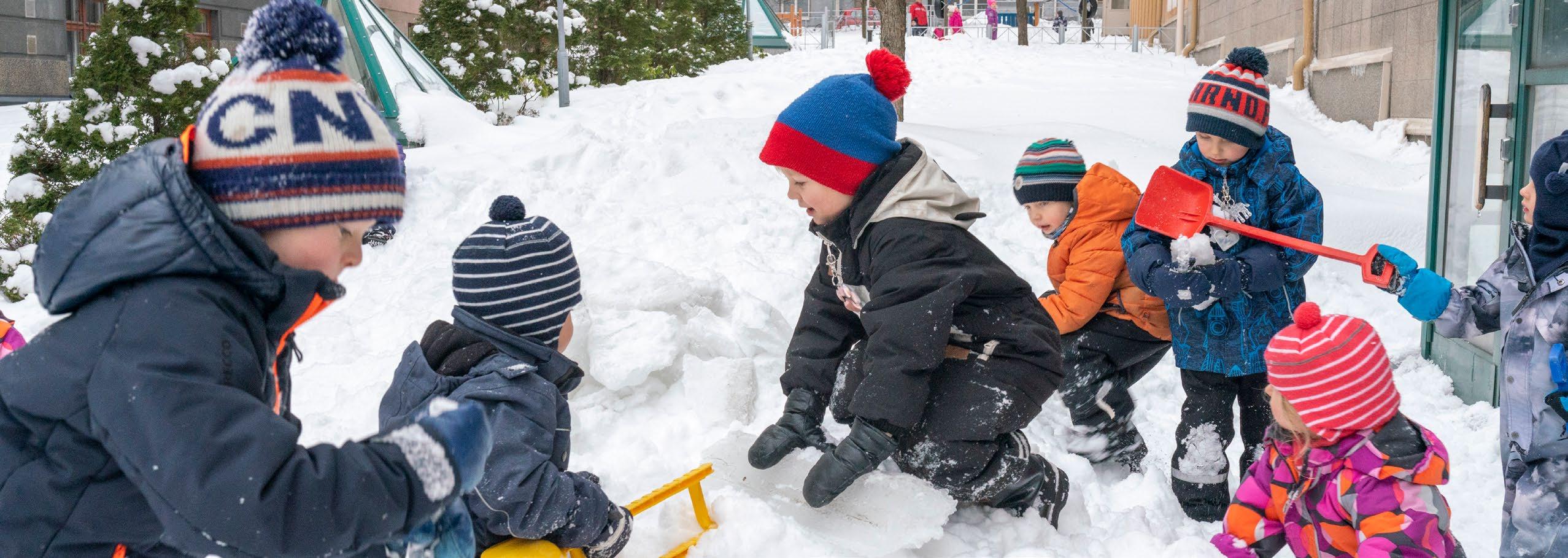
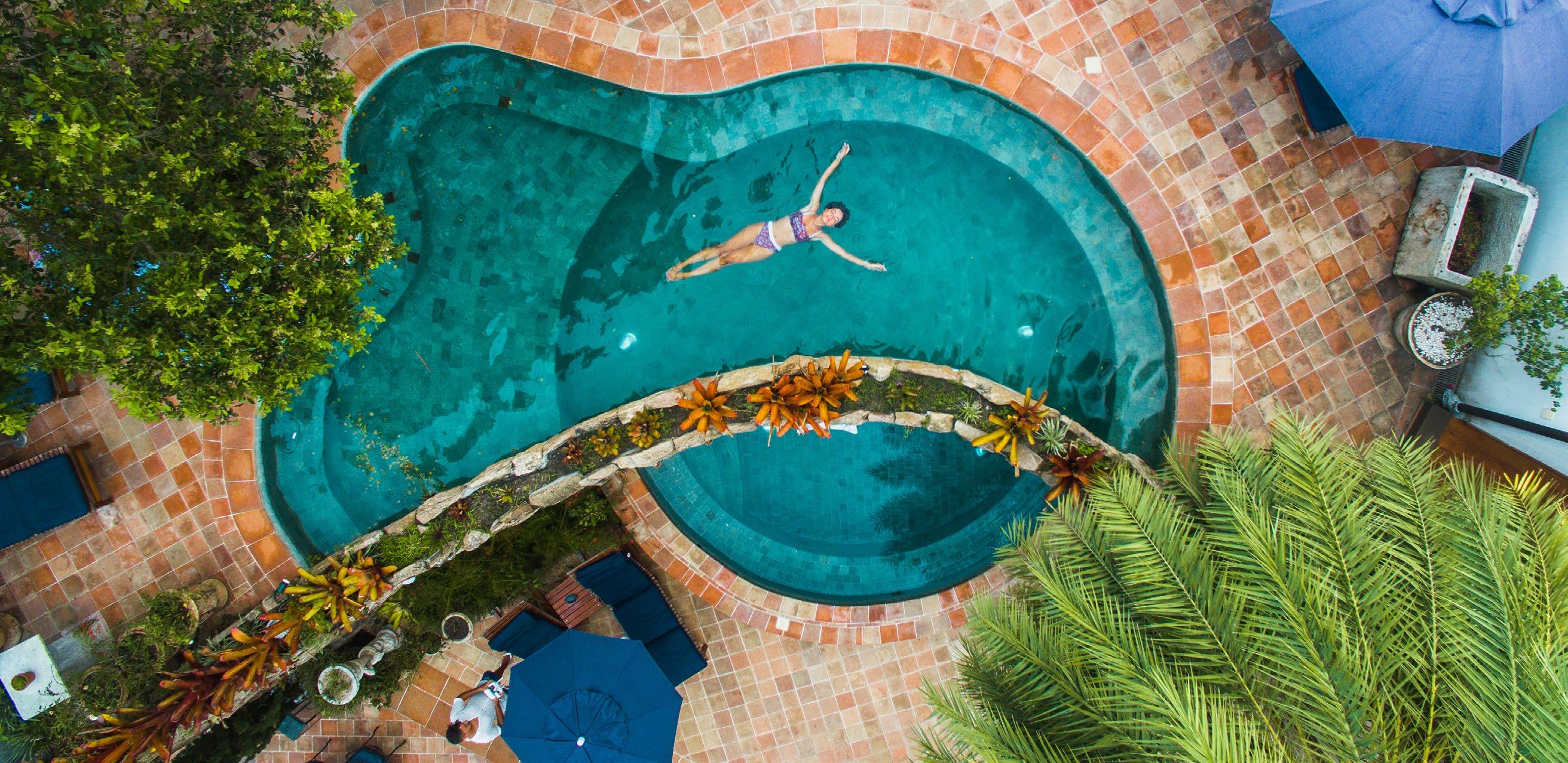
My advice for a young aspiring general manager is to focus on building a strong foundation of experience and knowledge. Never stop learning and questioning, and do not be afraid to push boundaries and make mistakes, embrace people and cultures. Most importantly, have fun because the energy you feel will shine throughout the whole hotel.
After 17 years in the tropics, Ms. Tessa Gorman returned to beautiful Europe to run the first One&Only in Europe. The responsibility and challenge of the British lady is big but her passion for hospitality conquers all. While the surrounding dazzling beauty of Montenegro makes her work even more pleasurable.
“Returning to Europe after years of being away, I can say that Montenegro is a truly inspiring country, and it is a joy to contribute to the hospitality scene alongside the resort’s exceptional team,” Gorman told in her exclusive interview to TRAILBLAZING
MAGAZINE
Portonovi on the map as Europe’s leading wellness retreat,” Gorman stressed.
Ms Tessa Gorman also received the General Manager of the Year award for Leadership for 2020 and was named “Woman of Today” by Quintessentially Travel the same year.

She says that One&Only brought ultra-luxury to Montenegro while setting a new standard for the region. “Our private sandy beach, as well as Tapasake Restaurant, are the hottest destinations on the Adriatic Coast, and our partnership with Chenot has placed
Located amid the spectacular views of Boka Bay, the charms of UNESCO-protected old towns, incredible nature, and the rich culture of Montenegro, One&Only Portonovi is the first ultra-luxury resort on the Adriatic coast, just a short drive away. “The blend of all this illustrates the virtually unprecedented connection of what we refer to as a once-in-a-lifetime experience. I believe these are the reasons for turning our Albanian neighbours into our regular and dear guests. We want them to know that this is a place where they can be absolutely spoiled,” she said while she called Albania “an excellent choice for travellers looking for a unique and off-the-beaten-path destination.”
Full interview follows:
“I’m Inspired by the Resort’s Unique and Captivating Backdrop, the Indescribable Beauty of Montenegro”
Where did it all begin, and how did you progress your career to where you are today?
I’ve always had a passion for travel and discovering new cultures. In 2006, an excolleague asked me to join her team at an ultra-luxury resort in Phuket, Thailand and from there my passion for hospitality developed as I was exposed to the diversity and wonders of a luxury hotel operation.
Following my first General Manager’s role in Krabi, I moved from one stunning Island to another and ventured to magical Bali, where I immersed myself in the rich culture and embroidered the unique characteristics of Bali within the luxury hotel environment.
After 17 years in the tropics, I returned to beautiful Europe to run the first One&Only in Europe. The last year has flown by, and I have completely fallen in love with the country. The rugged mountains frame, the tranquil waters, and the Mediterranean climate, I am constantly outside admiring the beauty of this hidden gem. I am
convinced that in ten years, Montenegro will be a bustling tourist destination with numerous hotels. Right now, though, it remains an untouched beauty that we have the privilege to explore.
How did your role as a general manager change from one destination to another? Was it difficult to adjust to different environments and cultures?
Working across diverse destinations, adapting to new environments and cultures has always been both challenging and rewarding.
Looking back, I find that my role changed significantly from one destination to another, primarily due to the intricacies of each place and their cultural context. Incorporating place-specific aspects into the hotel’s framework was crucial to creating an amazing guest experience. That holds true for all locations is that the people are and always will be the most important component of any successful venture. I found that building strong relationships with people is a key to success - as long as you
give your heart and authenticity and take care of your people and the property, you will get that same energy in return.
Returning to Europe after years of being away, I can say that Montenegro is a truly inspiring country, and it is a joy to contribute to the hospitality scene alongside the resort’s exceptional team.
Almost one year in the position of the General Manager of One&Only Portonovi. Tell us about One&Only Portonovi as a destination. What do you think it offers to the guests?
One&Only brought ultra-luxury to Montenegro while setting a new standard for the region. Our private sandy beach, as well as Tapasake Restaurant, are the hottest destinations on the Adriatic Coast, and our partnership with Chenot has placed Portonovi on the map as Europe’s leading wellness retreat.
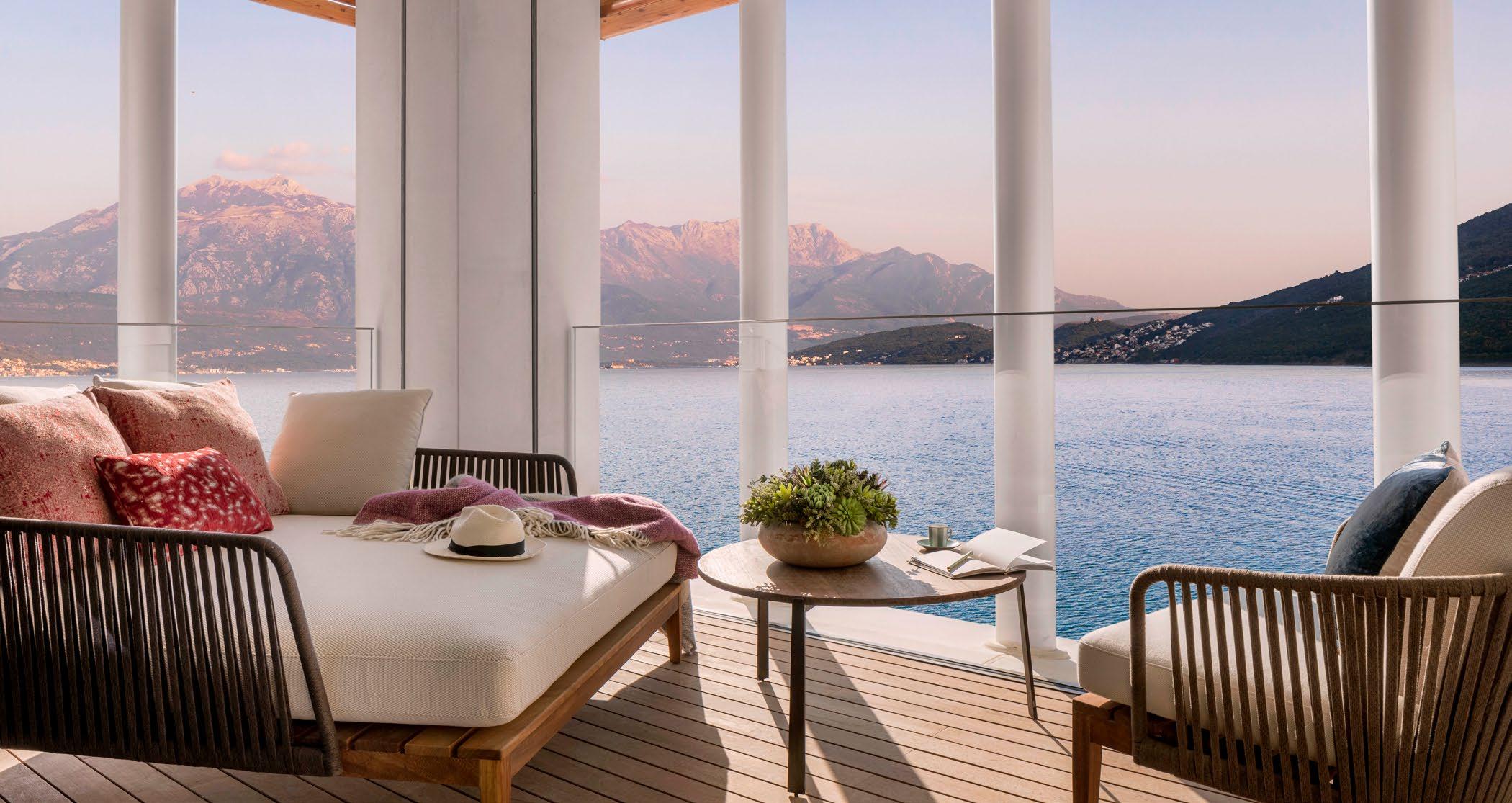
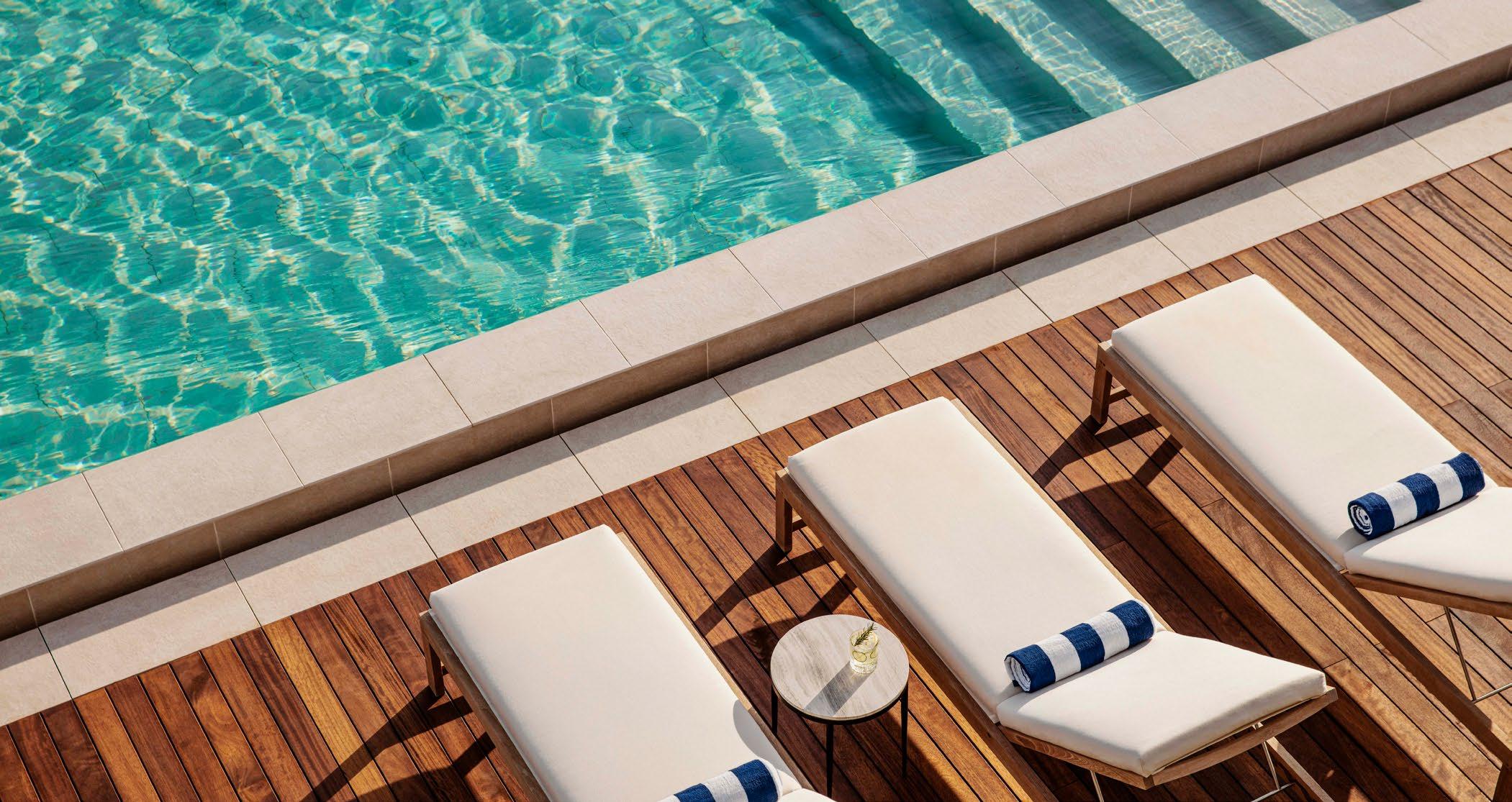
Whether our guests prefer to explore the area by land or by sea, our remarkable experiences
team has it all covered. One&Only Portonovi is set amid a rare nautical playground at the sheltered entrance of the bay, offering a private jetty for easy access to explore the coast. The surrounding Portonovi is also home to a 238-berth marina, where guests can charter a superyacht, classic speedboat, or wind-surfboard, and sail off for an unforgettable adventure.
Also, One&Only Portonovi will take guests on trips of discovery from mountain tops to the deepest underwater caves. I would recommend our Marvels of The Mountain tour – a rigorous hike led by an ultra-trail athlete and local mountain hiking expert that starts with a jeep safari through old Austro-Hungarian roads and ends on a secluded lake in Mount Orjen, the highest mountain on the Adriatic.
In your view, why is One&Only Portonovi so attractive? Do you have many Albanian clients visiting One&Only Portonovi? What is being done to turn them into regular visitors?
Our guests can expect personal experiences for every age and passion, complemented by the exceptional level of service that One&Only is renowned for. With ultimate privacy and seclusion, One&Only Portonovi offers unrivalled glamour, accompanied by unique activities and state-of-the-art wellness. Located amid the spectacular views of Boka Bay, the charms of UNESCOprotected old towns, incredible nature, and the rich culture of Montenegro, we are the first ultra-luxury resort on the Adriatic coast, just a short drive away.
The blend of all this illustrates the virtually unprecedented connection of what we refer to as a once-in-a-lifetime experience. I believe these are the reasons for turning our Albanian neighbours into our regular and dear guests. We want them to know that this is a place where they can be absolutely spoiled.
How do you see Albania in terms of a tourist destination?
Albania has become an increasingly popular tourist destination in recent years,
with its stunning natural beauty and rich cultural heritage attracting visitors from all over the world.
One of Albania’s biggest draws is its beautiful coastline along the Adriatic and Ionian Seas, with beaches, crystal-clear waters, and charming coastal towns, like Saranda, Durres, and Vlore. The Albanian Alps, with their rugged peaks and stunning vistas, are another must-see destination for nature lovers, myself included.
Overall, Albania is an excellent choice for travellers looking for a unique and off-thebeaten-path destination. The country’s growing tourism industry offers plenty of opportunities for adventure, relaxation, and cultural immersion.
Where have you found the inspiration and the passion for working in this role? What would be your advice for a young aspiring general manager?
My passion comes from creating exceptional experiences for our guests and liaising with a team of talented and dedicated professionals who share the same commitment to excellence. I am inspired by the resort’s unique and captivating backdrop, the indescribable beauty of Montenegro. This undiscovered destination boasts a unique blend of diverse natural wonders, breathtaking landscapes and rich cultural history, which is by itself inspiring.
My advice for a young aspiring general manager is to focus on building a strong foundation of experience and knowledge. Never stop learning and questioning, and do not be afraid to push boundaries and make mistakes, embrace people and cultures. Most importantly, have fun because the energy you feel will shine throughout the whole hotel.

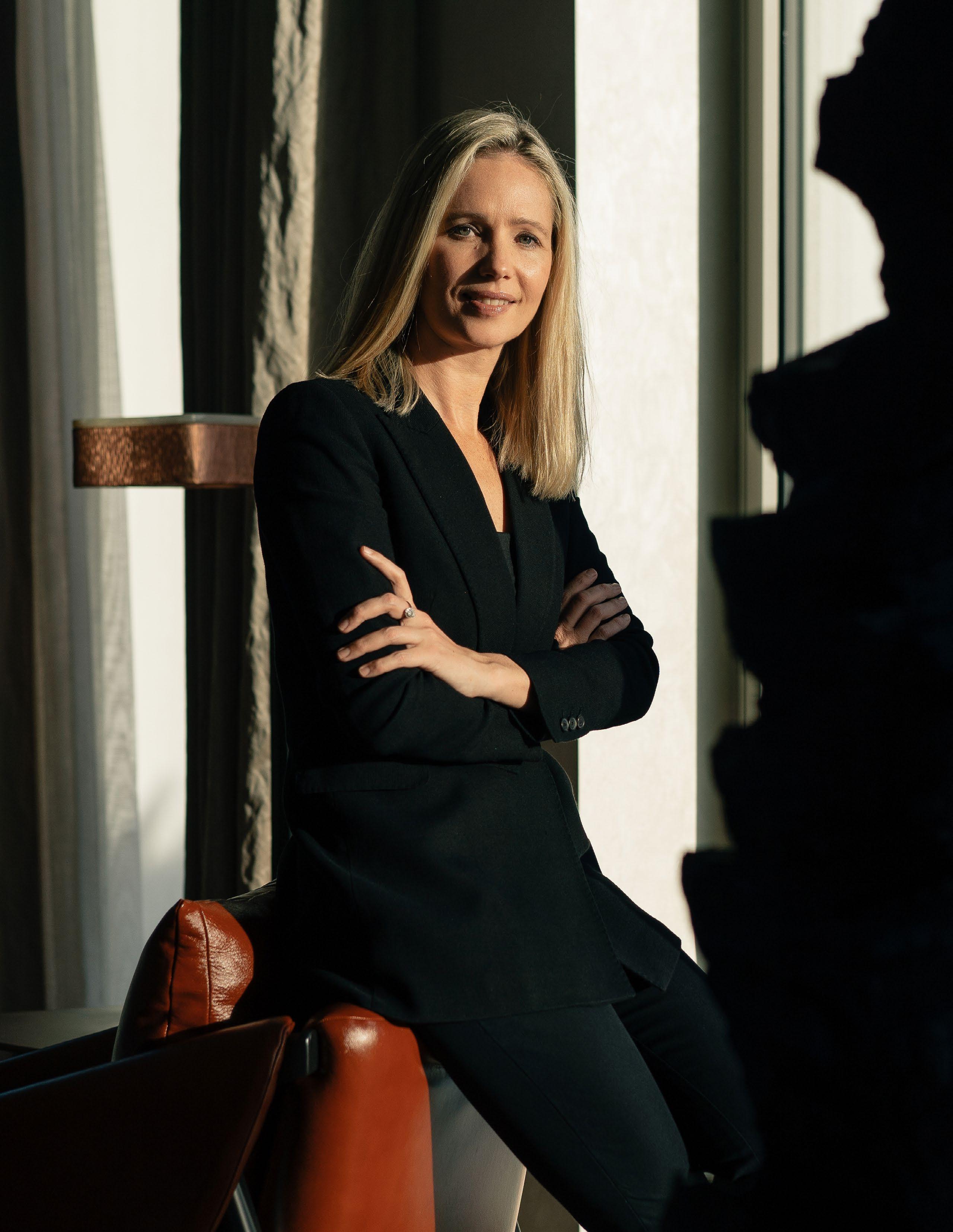
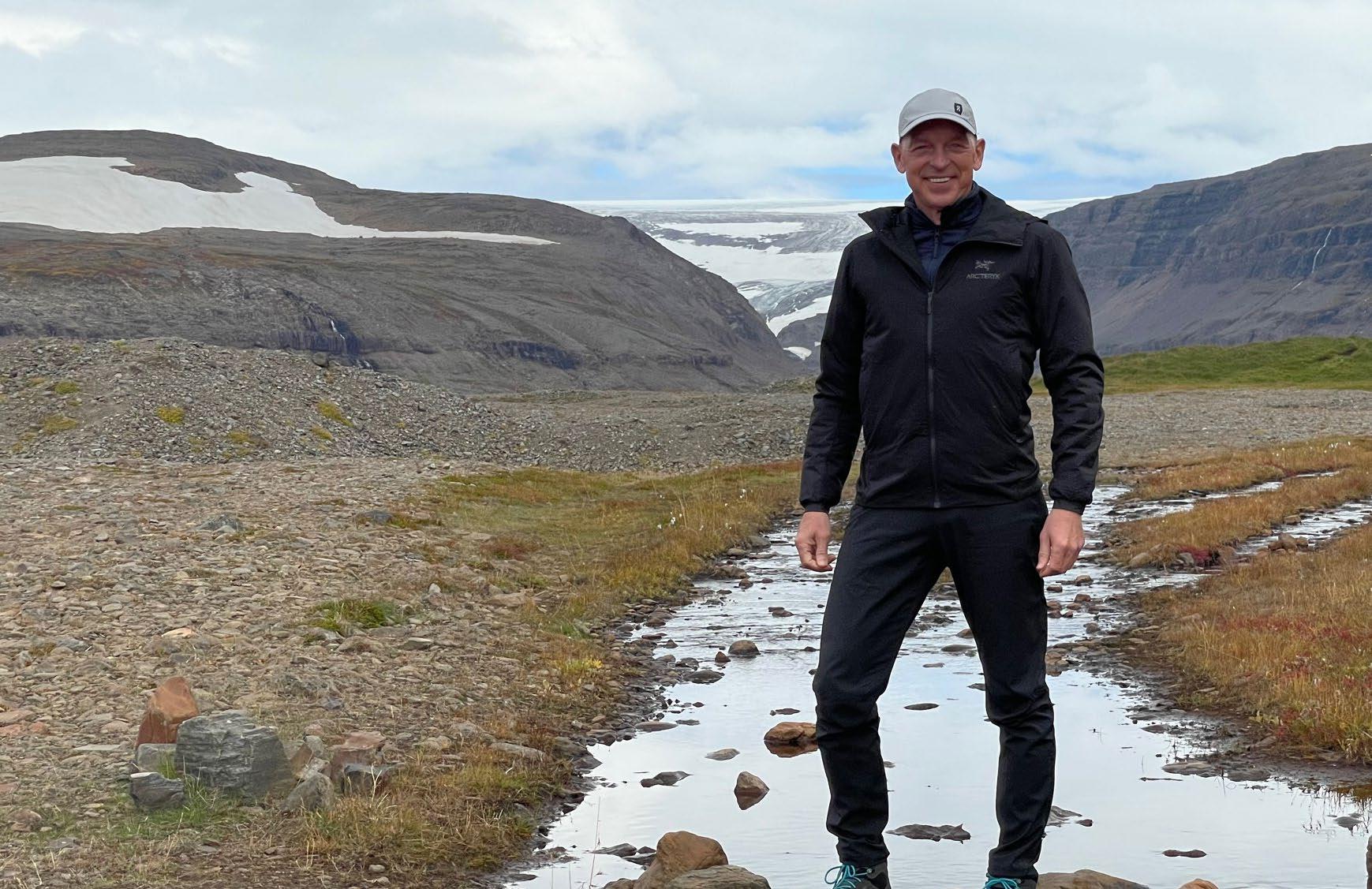 By Rudina Hoxha & Jose Pinto
By Rudina Hoxha & Jose Pinto
Get ready to be inspired! TRAILBLAZING MAGAZINE had the privilege of interviewing Guido de Wilde, an extraordinary hotelier, who worked 38 years in the hospitality industry of which 19 years at Starwood and Marriott International in the Middle East, a passionate cyclist, a fundraiser, a certified performance coach, and a lecturer at the Hotel Management School Maastricht. In this exclusive interview, Guido shares his remarkable journey from heading up Sheraton’s Worldwide Reservations Centre for the Middle East in Bahrain, his career at Starwood Hotels and Resorts, to leading Marriott’s operations in the region as COO. Don’t miss out on learning how Guido’s hobbies seamlessly fit into his life and inspire him to give back to the community.
Full interview below:
You are a seasoned hotelier with a wealth of well-rounded hospitality experience. Describe your childhood and upbringing. Where and when did your initial interest in hospitality begin?
I am extremely grateful for the career that I have had. Honestly, I never thought I would reach the position that I held until my retirement on July 01, 2021. I come from a humble, unpretentious upbringing. My family is Catholic and emphasizes values such as discipline, honesty, and doing the right thing. My parents taught me not to feel more important or better than others, and to work hard, keep a low profile, and avoid bluffing. I grew up in the Flemish countryside, where I had the privilege of excellent schooling and an active, sporty community. My parents had their own small business and worked hard to take care of their clients. They were always available, even on weekends, and went the extra mile to create loyalty by delivering personalized service centered around quality and genuine care.
During my childhood, my grandfather, who lived with us, told me about the horrors of both World War 1 and World War 2. He also introduced me to the magical world of cycling and told me stories about his cycling heroes, from Coppi and Bartali to all the Belgian greats. He sparked my interest in this fabulous sport, but I ended up playing football, which became my true sports passion. I joined the local football club when I turned 9, playing in the 4th national division at that time. Eventually, I made it to the first team when the club played in the 3rd national division. Playing football was an important time in my life as it taught
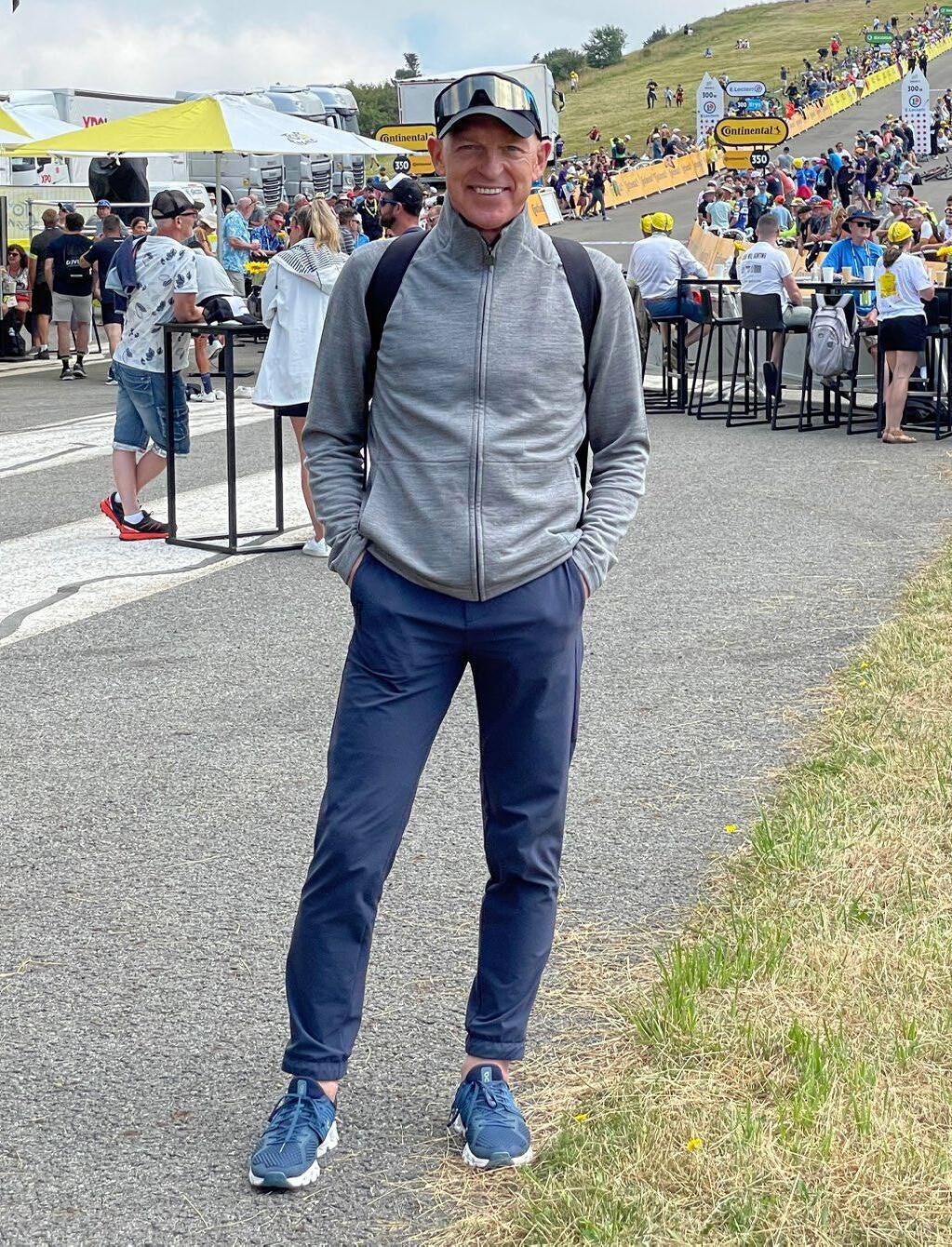
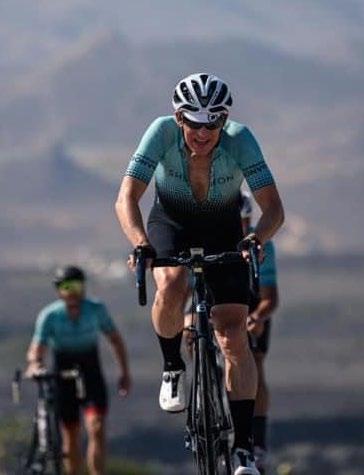
me the importance of playing as a team, respecting others, thanking the numerous volunteers working in the best interest of the club, accepting defeat, and dealing with criticism when a game was lost.
My upbringing was Catholic, and I became an altar boy at the age of 7. I looked up to my brother, who was 5 years older, and always wanted to be part of his activities. I did well in school, and though I was not exceptional, my marks were generally solid. I went to study at the University of Ghent, specializing in Germanic Languages, and more specifically, the Scandinavian
Languages. Before the start of the first year, my father took me aside and told me, “Your mother and I have to work very hard to let you go to the University. Make sure you don’t fail. Work hard and focus on your studies, as it will determine your future.” I knew that he had never had the opportunities that I was given. He was talented in his work and was asked to go to Brussels after World War II to work for a large company, but this was refused by his parents. He also had the chance to go to the Congo, the Belgian Colony, but that was also blocked by his parents. I always felt he regretted that and he often, in a subtle manner, made reference to it.
My brother followed in my father’s footsteps and entered the business. He recently retired after a very successful career

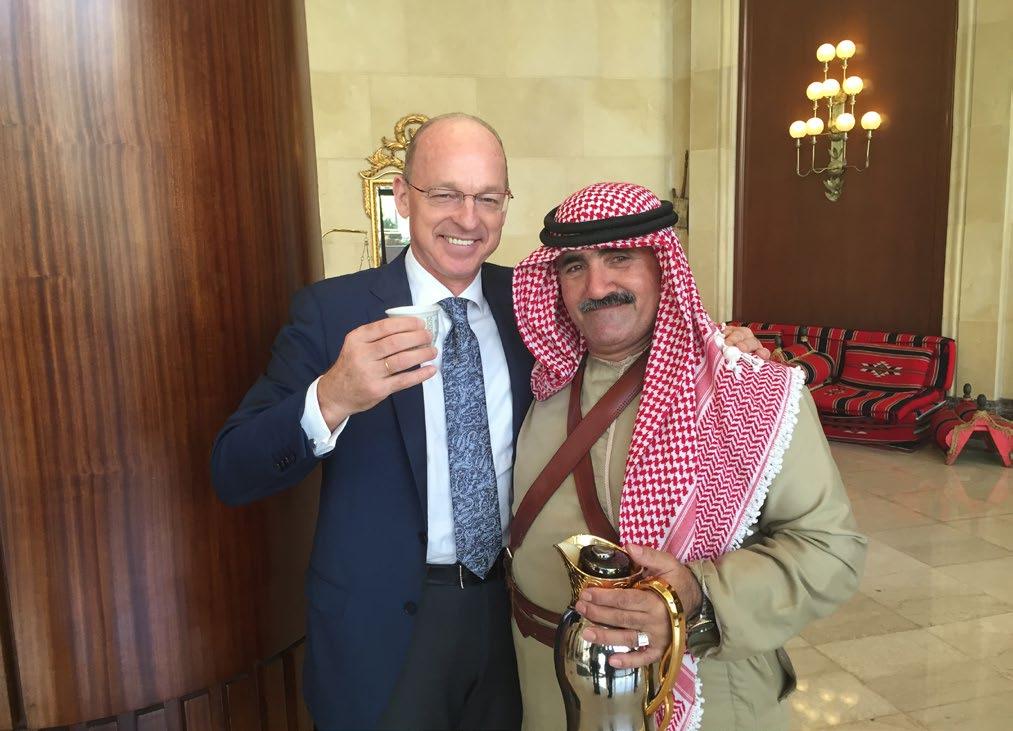
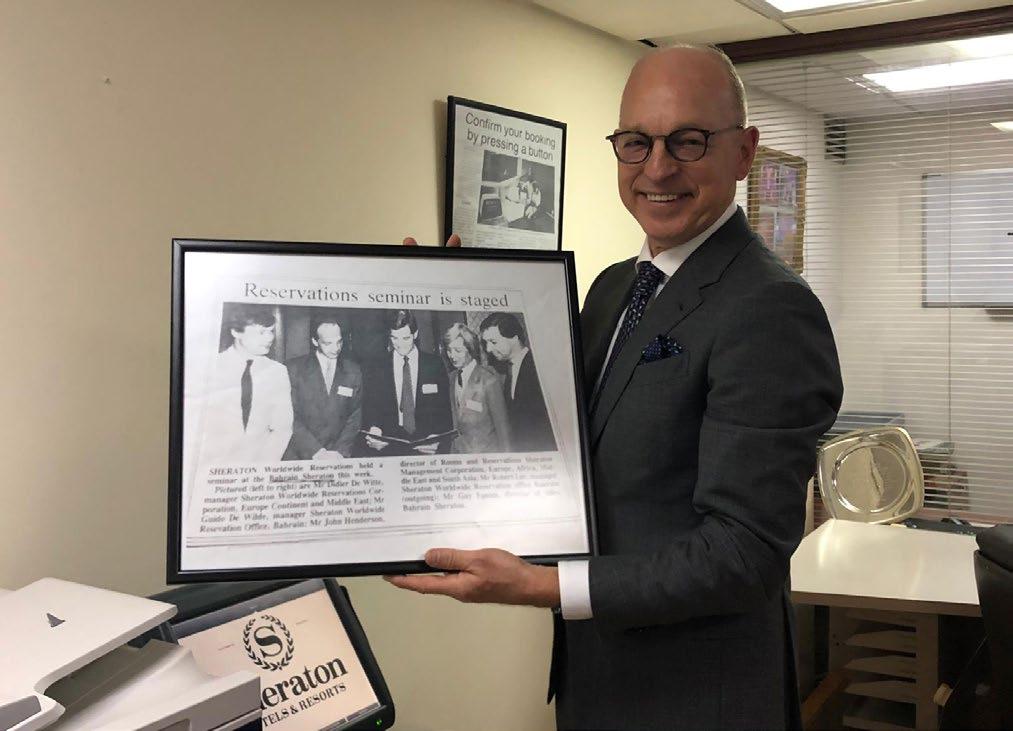
working with the same client focus and a constant and consistent eye for service excellence. My mother was a very kind, caring, and gentle person who had been living with rheumatism since the age of 21. I admired her as she never complained and was always there for us and others. I finished my four-year studies at Ghent University in 1980 and married Johanna in December, whom I first met when I was 16 years young. This year in December, we will be married for 43 years. She has supported me throughout my entire career, and I couldn’t have done what I did without her.
I took a job at the emblematic City Library of Antwerp, where I was tasked with organizing two exhibitions over 12 months. The first exhibition was on the life of Jan van Ruusbroec, a 13th-century Flemish Mystic,
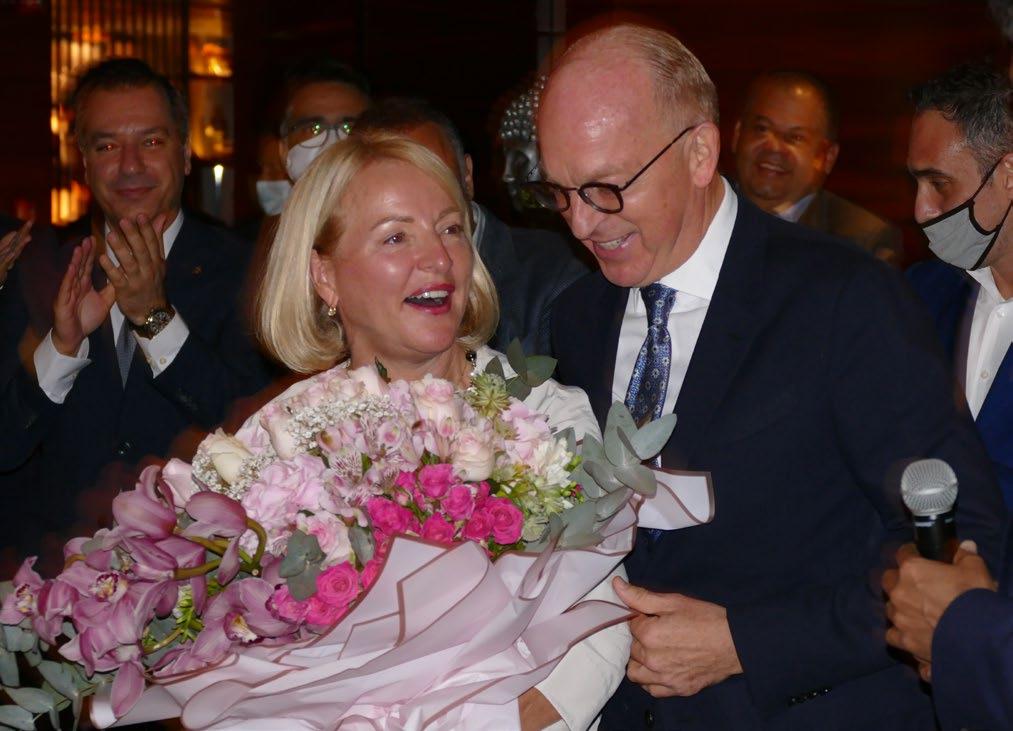
followed by an exhibition on the first “Incunabulum” in Flanders, which refers to books or pamphlets printed before the year 1500 in the Low Countries. During that year, I applied for a scholarship at the University of Oslo to specialize in Norwegian Literature and History and to further develop myself in Scandinavian studies. I obtained the scholarship and moved to Oslo. It was my knowledge of Swedish and Norwegian that led me to the hotel industry, an industry I was not familiar with until 1983. In March 1983, I joined the Sheraton Reservations Corporation, a subsidiary of ITT Sheraton. ITT Sheraton was a pioneer in offering a worldwide reservation service that allowed guests to book any Sheraton hotel worldwide via a toll-free number with an instant confirmation of the request, which was very innovative over 40 years ago. I was working in the office in Brussels, handling calls from the Benelux, France, Frenchspeaking Switzerland, and the Scandinavian countries. After 18 months and having obtained a degree in marketing, I was promoted to lead the then recently opened Sheraton Worldwide Reservations Office for the Middle East
located in the Sheraton Bahrain. Leaving my family, friends, and social life was difficult, but looking back, it was a rewarding experience, and I am thankful for the opportunity and the trust I was given at that time. I would eventually work 20 years in the Middle East, and the 4 years in Bahrain have been vital for my entire hospitality journey. I realize I have a pretty unconventional hospitality career path, but my knowledge of languages that were not commonly studied and spoken outside Scandinavia gave me an advantage leading to opportunities in an incredibly exciting industry, and it gave me the chance to work for the best companies in the world with best-in-class leaders and colleagues.
Do you remember a particular key turning point in your career that contributed to your success today?
There is not one particular turning point that made me who I am in my career. I believe that the great leaders I worked for contributed to my success. Throughout my career, there were various moments where I was given a chance without having the required experience for the job. I am humbled by the fact that I have worked for leaders who believed in me, trusted me, and took a risk by promoting me, allowing me to grow in certain roles. It gave me the determination not to fail and to do all I could to ensure that they would be proud of me.
Moving to Bahrain without any international experience, to start up an office in a region where the company was the absolute market leader and to lead others with no leadership experience was a risk. Moving me to Casablanca as Director of Sales and Marketing to open the Sheraton Casablanca with no “in-hotel” experience and never having worked as a sales executive or sales manager was a risk.
Moving me as a first-time General Manager to Lisbon, responsible for a companyowned asset of close to 400 rooms, having never worked in an operational role, was a risk. And moving me to Dubai as Vice President for the Middle East, overseeing 49 hotels in 11 countries after the Le Meridien acquisition by Starwood Hotels and Resorts, coming from a General Manager and Area Manager role in Portugal responsible for 4 operating hotels was a risk.
These were defining moments in my career, but so were the tasks I was given by my General Managers in Casablanca and Munich, tasks that took me out of my comfort zone simply because they believed that I could deliver. My three years with Hilton Hotels Corporation working for the Conrad brand in a regional sales and marketing role brought me great learnings, and it was a time where I was introduced to the world of development and asked to look at new projects, run feasibilities, and assess next steps.
And of course, the moment that Marriott International asked me to join the company when they acquired Starwood Hotels and Resorts was a very important milestone in my career. The trust and confidence that I and my team received marked the start of a fantastic journey in the largest hotel company in the world, with 30 world-class brands and strong company values. I am very grateful for the career I have had, the privilege to work for the best companies in the industry, and to work with incredible leaders and human beings.
Lastly, I cannot conclude without thanking my wife and best friend, Johanna, who has supported me throughout my entire career. Each time, she gave up her job to follow me to a new assignment in a new
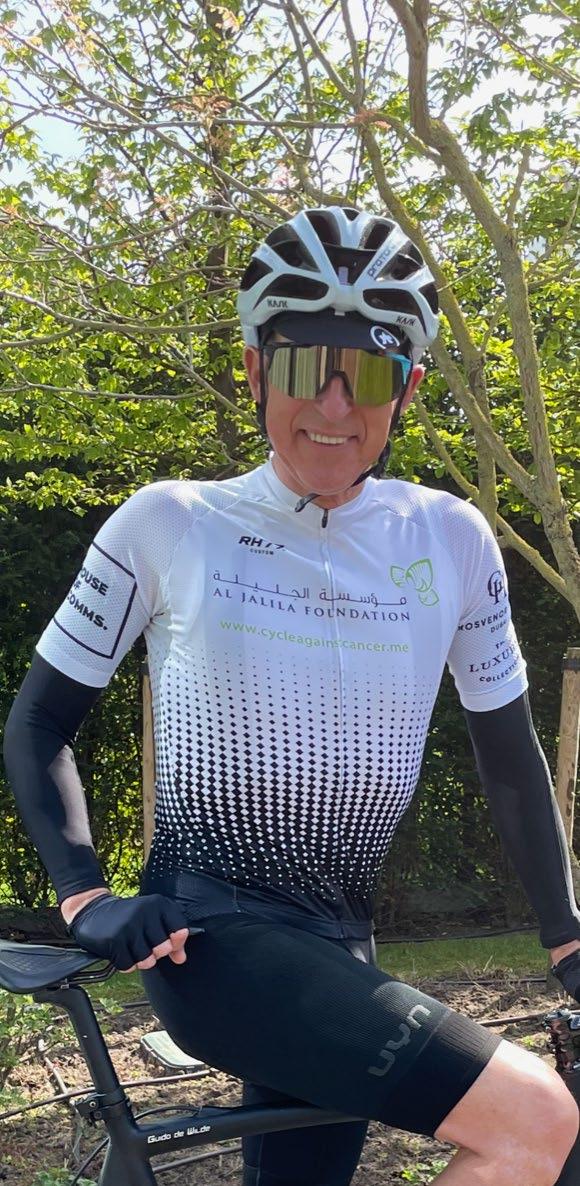
destination. Johanna was always flexible and understanding and adapted to all new environments very quickly. She has been a rock, and without her, I wouldn’t have been able to have the career I truly enjoyed as she provided me with the space to perform at my best.
A long experience with Marriott International in the Middle East. How would you describe these years? What do you think it takes to succeed in this industry?
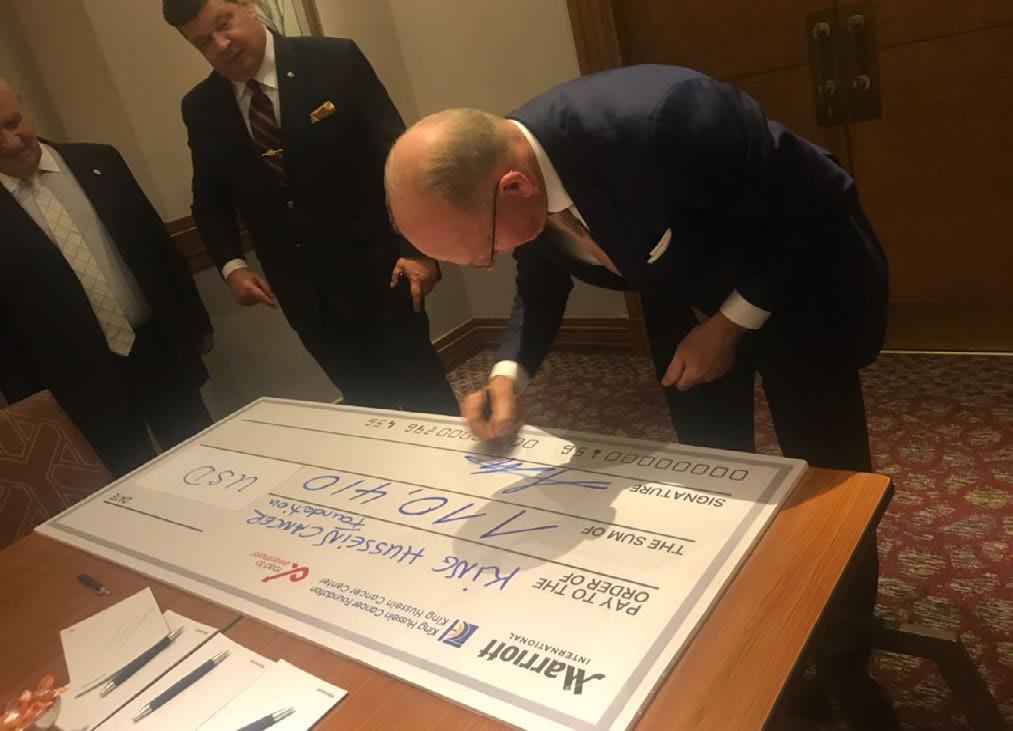
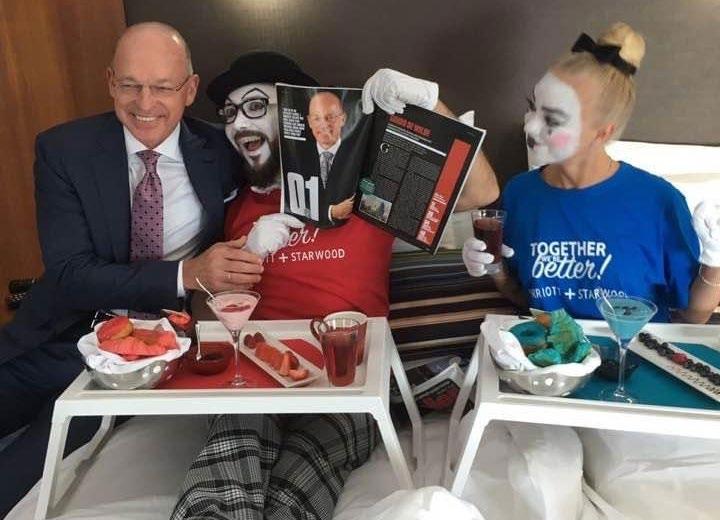
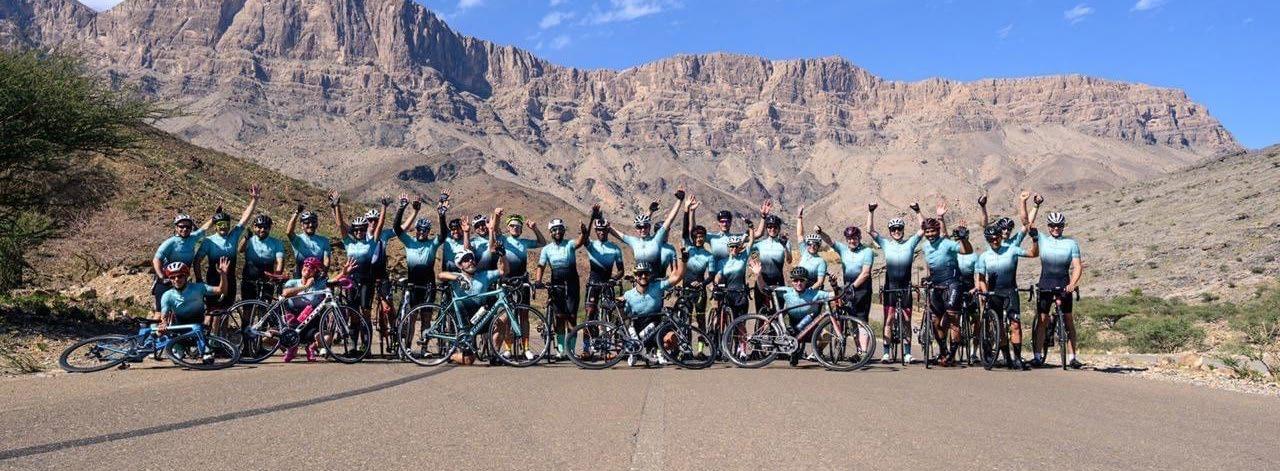
It is an absolute privilege and honor for me to reflect on my career journey. First, I spent almost four years in Bahrain from September 1984 until May 1988. During this time, I learned a lot and had the opportunity to work with fabulous people. The office I was running performed very well. The Sheraton Worldwide Reservations service we provided was innovative and game-changing, centered around speed, efficiency, and providing clients with instant, professional, and caring service. We rapidly moved from being a reservations service center to a central customer service center that also handled group requests. Our focus was on being customer-centric and engaging with the Middle Eastern traveler. Traveling across the region to promote the
office and its services, visiting our hotels, and interacting with customers helped me to learn more about the Middle Eastern culture. These four years were an incredibly enriching experience, and when I left for Casablanca, I knew that one day I would be back in the GCC. It took almost 18 years, but in January 2006, I landed in Dubai, where I have been until today. When Starwood Hotels and Resorts acquired Le Meridien, I was asked to lead the newly established Starwood office in Dubai for the Middle East. This was the start of another incredible journey, working with fantastic people to reshape our presence in the region with a “less is more” strategy, introducing new brands, and growing the portfolio with great and trusting ownerships in the region.
When Starwood was acquired by Marriott International in September 2016, I moved to Marriott as Chief Operating Officer Middle East, a role I truly enjoyed for five years until I decided to retire on June 30, 2021. 50% of my career was spent living and working in the Middle East, and now that I am retired, I continue to live in Dubai. I can only be immensely grateful for the opportunities I was given and for the privilege of working and developing myself in this vibrant and
exciting region. Hospitality thrives in this region, and I always considered working in this industry in this region as playing in the final of the Champions League every year. Hospitality in the Middle East is highly competitive, super innovative, and with a high focus on service excellence and customer retention.
Working in hospitality is a privilege because it is all about delivering happiness to people, and creating happiness means making a positive difference in people’s lives and creating a better way to experience this challenging world. Hospitality is people genuinely caring about people, serving people with authenticity. The pleasure of being there for others, the satisfaction when guests book their next visit when leaving the property, and the consistent focus on ensuring that people leave the property in better shape than when they arrived are what make a great hospitality experience. The people make the difference, and hiring the right talent is, therefore, a priority. The right talent is talent with a passion for service and a passion for making guests happy. It is about building meaningful relationships and creating loyalty beyond reason. Every interaction matters.
Creating a true people-focused culture is fundamental because engaged and inspired employees will create the happiness that leads to guest retention, community, and connectivity, which I consider pillars for success. Building great cohesive teams centered around trust, with everyone understanding and living the values of the company, will lead to high hospitality performance. To succeed in the hotel industry, one needs to love to work with and for people, build a highly inspired team that is customer-obsessed and passionate about delighting the guest. A successful hotelier listens, is focused on service excellence, anticipates and embraces change, is compassionate, and serves the community by focusing on doing the right thing.
Now retired in an amazing city like Dubai. What do you like most about living in Dubai? How inspiring and influential is this country in your career and in your life?
I first visited Dubai in October 1984 and continued to visit regularly until 1999. In January 2006, I moved to Dubai as Vice President Middle East for Starwood Hotels and Resorts and have been living there ever since. Dubai is where I have spent the longest time in my career, following a
10-year tenure in Portugal. It has been a fantastic experience so far.
Dubai is a global crossroads, a vibrant and dynamic hub of innovation and excellence powered by visionary leadership, technology, and local and global talent. Dubai realizes that the world will continue to change and they want to be a trendsetter rather than a follower. They focus on the future, attracting world-class talent and aiming to be a reference for the world.
Dubai is the best case-study for destination marketing and has grown into a global cosmopolitan community with over 200 nationalities living and working in harmony, a result of the focus on tolerance and coexistence. Dubai is a start-up heaven as entrepreneurship is valued and stimulated.
Dubai is curious with an appetite to learn, grow, and be better every day. I like living in Dubai because it is easily accessible, efficient, and everything is designed to create comfort and happiness for its citizens.
Nothing is impossible, and service excellence is at the center of Dubai’s strategy. Hospitality leaders don’t need to focus on attracting visitors to Dubai as the authorities do that. Instead, hoteliers need to focus on providing high-level service to ensure guests return to Dubai.
In your view, how important is for seasoned hoteliers like yourself to give lectures in hospitality schools, so the young hoteliers gain from your first-hand experience?
Since September, I have been serving as a guest docent at the International Hotel Management School Maastricht. Spending three weeks on campus in September and again recently in February and early March, has been an eye-opening and rewarding experience for me. With the spirit of giving back, I went to my hotel room at the end of each day with lots of positive energy. It was and is a new experience for me, but it felt and feels good to add value to the new generation of hospitality leaders and guide them
on their path to becoming successful hoteliers. I see positivity, passion, and motivation in the students who were and are eager to enter this fantastic industry. Guest lecturing, assisting with project work, and coaching students towards their upcoming internships offers me a perfect platform to share my experience. Throughout my career, I have welcomed interns into the organization and worked closely with them. It is great to watch their careers grow. What I particularly enjoy is sharing my experiences through storytelling to inspire students for the hotelier profession and providing a realistic picture of what to expect when entering the world of hospitality.
How can you explain this passion for cycling and how is this contributing to fundraising for people sick with cancer?
I grew up with a bike, like everyone in Belgium. Cycling is a culture in my home country and for most people, it is a passion. Although football was my active sport, I always loved cycling. It allows you to see the world differently. For me, it became a way to make a difference and to humbly contribute to making this world a better place. I don’t race and I am not on my bike as much as some people think. I do love endurance rides and preparing for them. In 2008, I co-founded the “Road to Awareness” campaign at Starwood, an annual three-day charity bike ride following the legendary climbs of the Tour de France and the Giro d’Italia. The threeday bike ride was the anchor event for the campaign, whereby the hotels in Europe, Africa, and the Middle East were raising funds for UNICEF. As of 2016, when Starwood was acquired by Marriott International, the campaign continued in the Middle East and since then funds have been raised for
local charities, in the UAE for the Al Jalila Foundation. Since 2008, over USD 11 million has been raised.
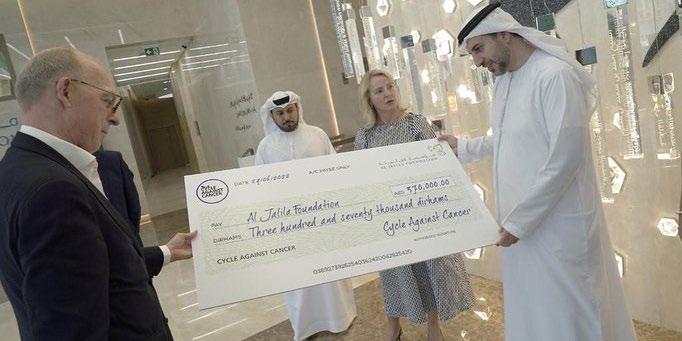
In 2020, I was diagnosed with stage four cancer, which took me on a year-long journey of tests, treatment, and surgery. Throughout my treatment in the UAE, I had the utmost trust in the medical team guiding me along the road to recovery. Today, while still being closely monitored, I am in remission and have gotten an allclear. I am immensely grateful, and my focus is on giving back. With this in mind, myself and a group of cycling friends cycled from my home country of Belgium down to Italy in May of this year to raise much-needed funds for the Al Jalila Foundation in the fight against cancer and to inspire others who are going through their own treatments. This trip from the battlefield of Waterloo to the Lombardian city of Bergamo raised USD 101,000. The project and the cycling journey can be seen on www.cycleagainstcancer.me. We are now starting to prepare for the 2023 Cycle Against Cancer ride.
The cancer diagnosis led me to take the decision to retire from my corporate role at Marriott International and the job I truly loved. I had the privilege to do what I did and to work for fantastic organizations and people. However, I felt that after a career of 38 years, it was now time to hand over my COO role and to focus on my health and on giving back. Cycling will continue to play a key role in my life, and I want to continue to ride for a better world and to deliver a message of hope, especially to people who are going or have gone through a cancer journey.
The workshop ‘HOW TO DESIGN AN INNOVATIVE UNIQUE APARTMENT FROM INTERIOR DESIGN TO GRAPHIC AN VISUAL COMMUNICATION, A 360° APPROACH’ by Simone Micheli and Roberta took place in Ajman, UAE from February 20 till February 24.
“This collaboration between College of Architecture, Art and Design at Ajman University and Simone Micheli was not the first event, as the effective collaboration took place on different occasions earlier,”
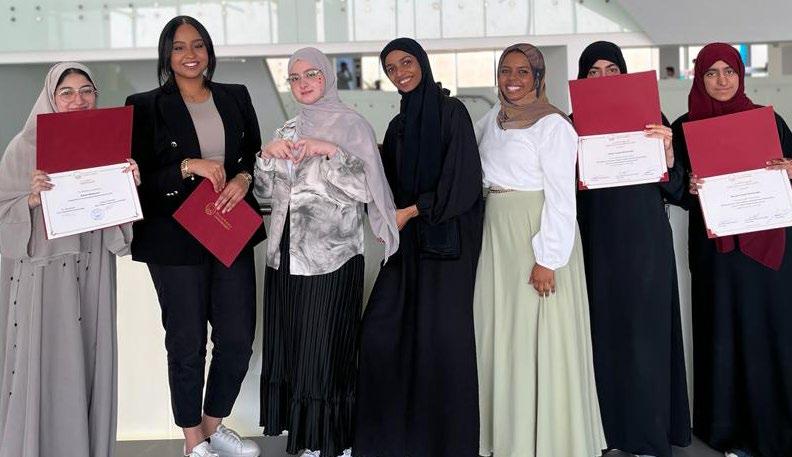

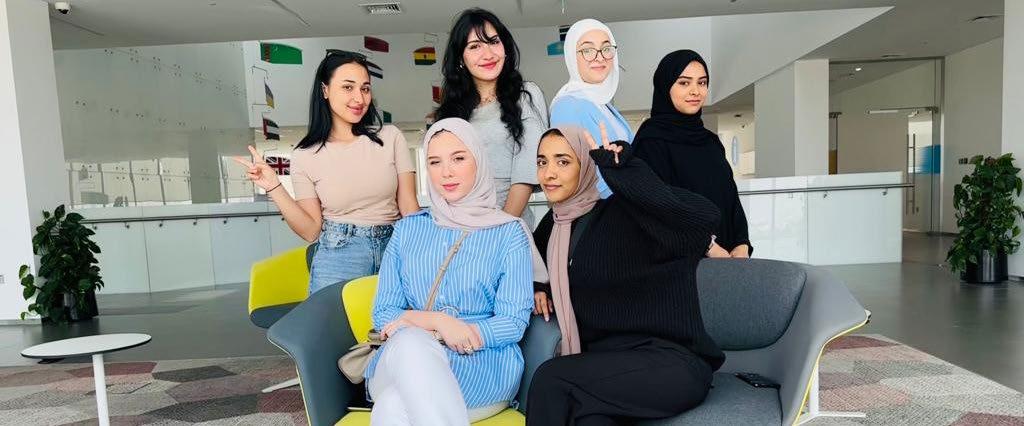
Dina Ibrahim Abdel Bary, Lecturer at College of Architecture, Art and Design told TRAILBLAZING MAGAZINE.
Simone, Roberta and Dina agreed earlier about the workshop topic and methodology, in order to get the maximum benefit out of it within a limited timeframe. First, we selected a real client InterContinental Tirana Hotel, and a real project, designing an INNOVATIVE UNIQUE SERVICED APARTMENT to be the topic to study.
Second, we reviewed the best learning technique and came up with the idea of blending different patches in each group, such as two seniors, two intermediates, and two juniors, with the purpose of working together to come up with unique ideas.
Last but not least, during the fiveday program, the workshop included different valuable lectures by Tommasella https://www.tomasella. it/en/, iGuzzini https://www.iguzzini. com/it/, and Lutron https://www. lutron.com/en-US/pages/default.aspx. Besides, two online lectures were given during the workshop, one by Giorgia Pallotti on public speaking, and one by Nidhi Billoray, graphic designer, that showcased how to use the graphic software.
Simone Micheli and Roberta Colla were constantly checking in on the students and guiding them with their insightful reviews and feedback, which resulted in their high levels of involvement and passion. The actual goal for everyone was to provide the best design solution in five days while considering all criteria such as innovation, graphic and visual design, and sustainability.
The workshop outcomes were outstanding; each group provided a unique experience for the client and jury members, and the top students will be able to complete an internship at one of Simone Micheli Architectural Hero’s offices in Milan and Florence, as well as Tommasella International group, iGuzzini, and Lutron.
1st place - Group G
Afreen Malumiar
Joudi Asjieh
Majd Albayed
Raghad Al Nasser

Yasmeen El-Gammal
Zulaikha Abdul Majeed
2nd place - Group A

Hebah Dwik
Mai Elsaid
Maya Khalife
Mayar Ahmed
Osman Ahmed
Tamara Alakkad
3rd place - Group D
Elkhansa Yagoub
Hala Riad Nasab
Norhan Elsafty
Sara Omar Jama
Maryam Almarzooqi
Eiman Almarzooqi
Mohamed Adel
Rahil Mahmoud
‘HOW
INNOVATIVE UNIQUE APARTMENT FROM INTERIOR DESIGN TO GRAPHIC AN VISUAL COMMUNICATION, A 360° APPROACH’Winners of the First Prize
“The Workshop hosted at the College of Architecture, Art and Design at Ajman University, directed by the prominent international designer “Simone Micheli”, played a crucial role in the practical experience of the interior design students at the department. It allowed them to experiment with materials and discover new design approaches. The workshop provided students with an exceptional opportunity to meet with professionals from the interior design industry who aided them with material selections and specifications for their proposed projects. I personally believe that this couldn’t also happen without our active faculty member “Dina Ibrahim,» who effectively coordinated and organized the workshop. Her contribution was wonderful, and she remains committed to enhancing our students’ education experience. Overall, the workshop produced exceptional results and served as a vital forum for knowledge sharing and community engagement for all participants.”
“The workshop on interior design led by the renowned Italian Designer Simone Micheli at Ajman University, College of Architecture Art and Design was highly effective in equipping the 60 participating students with skills that meet international standards. The workshop was in line with the college’s goal of producing interior design graduates who are competent and equipped with global industry skills. The hands-on approach of the workshop, coupled with the expertise of Simone Micheli, provided an excellent learning opportunity for the students to hone their skills and gain valuable insights into the world of interior design. The workshop undoubtedly contributed significantly to the development of the students’ capabilities and was a great success.”
How did you and Simone come up with the innovative idea of giving to the youngsters the opportunity to participate in such great projects?
Roberta: As we have always done, we prefer to make our students work on the factual and experimental part of a real and professional project reality, rather than just the purely theoretical part of it, characterized by a client, a work in progress location and the involvement of journalists, in order to allow them to experience in real life the definition of a project at 360°. This approach to the design process allows the students to mimic our work in a tangible manner, i.e. to be curators of the formal and functional aspects in the most diverse areas of design work that distinguishes us: from the ideation of the name, to the care of the corporate identity, the architectural project, the interior design aspects, the furniture, the communication of the project to the client and much more.
Experiencing in real life what it means to be the curator of the formal aspects of a concrete and factual project certainly motivated the students that, taking advantage of the public speaking principles taught, had the opportunity to present the final projects to the commissioning party. In
addition to that, an amazing publication in a magazine, which is every young student’s dream.
Furthermore, we involved the supplier companies, as we do in a usual design project, because the products designed also have to be made and produced, having the know-how to make a piece of furniture or manufacture.
The students therefore approached these multiple realities: our studio, the companies involved, and the magazine. They could also be selected to do an educational internship in Italy or abroad, at our studio or at the participating companies.
What impressed you of the winning projects and will you give to the winners other opportunities in the future?
Roberta: We were impressed by the uniqueness and distinctiveness of the projects we saw, especially the fact that they were conceived and realized with such a detailed 360° approach, not only from a purely aesthetic point of view, but also from a functional one. Lastly, we will give the winning students the opportunity to take part in educational internships as previously mentioned.
Will the Ajman University continue to be the laboratory of the new ideas of these talented youngsters? What can you say about this cooperation between two of you?
Roberta: Certainly, Ajman will continue to be a laboratory for these talented young students, and we will certainly pursue collaborations to create new projects and workshops, which will
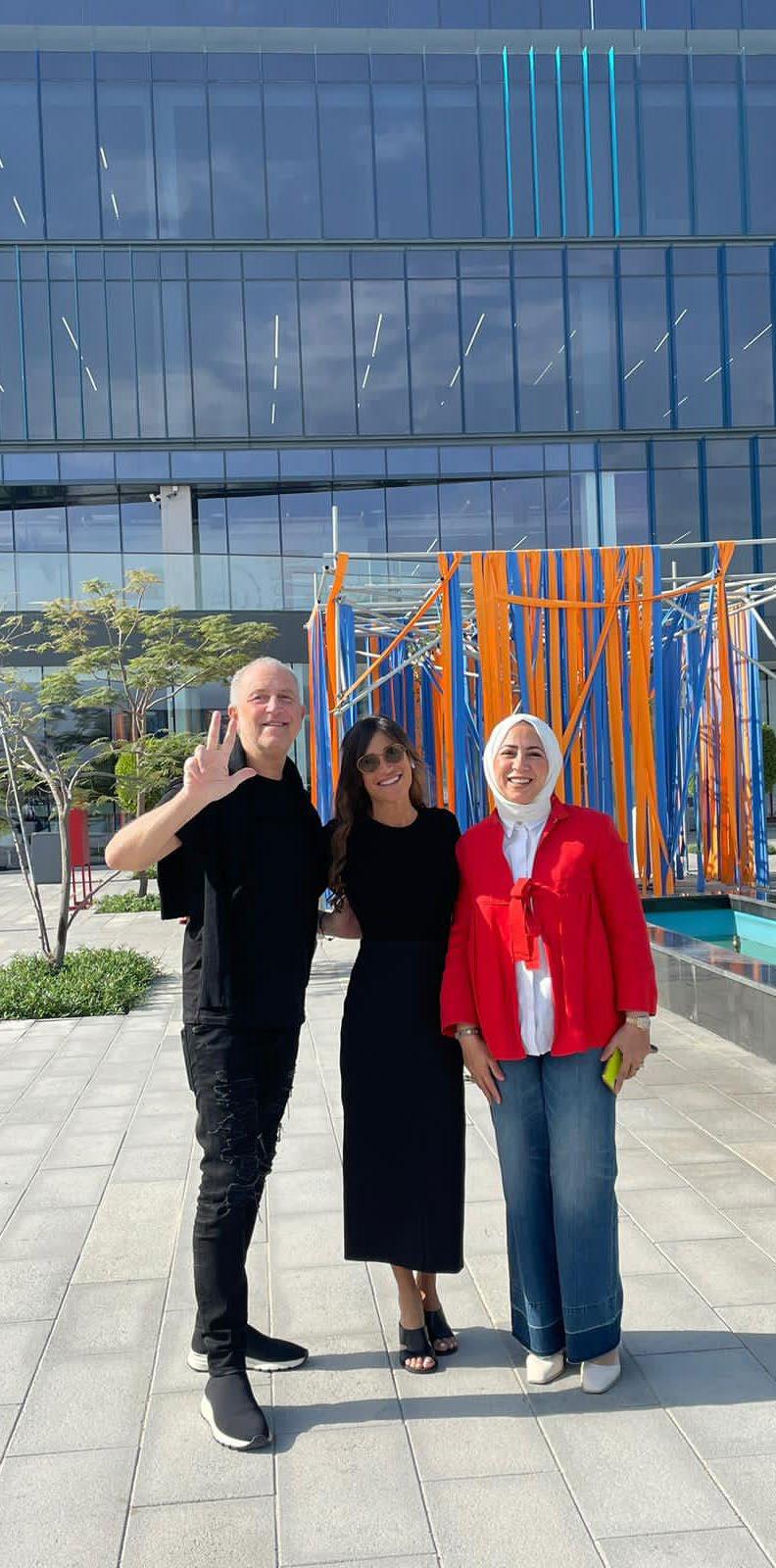
investigate new exciting topics. We found an absolutely welcoming environment, engaging and full of passionate people. We hope that we were able to spread our passion for this reality as well. This experience was also proof that working in a creative project also means having fun, and our aim was to encourage their creative ideas.
How important, in your opinion, was the workshop with young architects and interior designers at The Ajman University? What was your role in it?
Simone: In my opinion the workshop has been a meaningful, stimulating and extremely valuable experience for the young minds. We made them work on a real project, a service apartment inside the InterContinental Hotel in Tirana, owned by Ram Geci. We involved the hotel owner in order to have an in-depth breakdown of the client’s request, and for some valuable details and insights as well. The selected companies, such as iGuzzini, Lutron and Gruppo Tomasella, brought important messages of concreteness and business know- how to the students.
We had the several students work on an interactive project, involving multiple areas of know- how such as interior, visual, graphic design, corporate identity and public speaking, in order to showcase the final result in front of a selected jury and the former client.
Alongside Roberta, I acted as organiser and as lecturer, as well as a motivator for new ideas and an example on how one should work with passion.
Simone: Indeed our expectations have been exceeded, because all the young people worked with great passion from the themes and insights given on the first day of the workshop. They picked up the intellectual cues related to the desire to subvert the rules of the game, to look at things from different perspectives, to create an interior space with a strong identity and uniqueness, to try to break out of stereotypes to define completely
different and new visual and functional fields. The students put a lot of effort into these topics and the results were truly impressive. So, in the end, expectations were fully met and exceeded. Moreover, we managed to make the students work while having fun, something that is not insignificant.
What are your opinions on the winners’ projects? In your opinion, to what extent do they meet customer expectationsInterContinental Hotel in Tirana?
Simone: For me, and the same goes for Roberta, all the students who participated in the workshop were winners, because they all expressed interesting contents, remarkable graphic proposition, so all are winners. Clearly the three prizes awarded were also difficult to give out because there was a great harmony and practical identity, among all, not visual, but of content. However, the three winners had slightly higher skills than the others. The client’s desired expectations were more than exceeded even though it was really an experiment outside the lines to enhance every single thought of the guys, who were made to work with extreme freedom.
What are the prospects for Simone Micheli Architectural Hero Studio? Any upcoming project in Dubai?
Simone: In Dubai, we are developing various residential and hospitality-related projects, and important new commissions and requests for new projects have been coming in recent times, precisely in the United Arab Emirates. We are very pleased about this, as we have been communicating our work in this territory for a long time. So soon several new projects signed Simone Micheli will be able to be born and experienced by all human visitors.


Located in the historic heart of Búzios, between the beach and Praça dos Ossos and under the blessings of the Church of Sant’Anna from 1743, which frame the perfect setting to stay, in addition to providing the perfect setting for intimate events.





It comes to rescue the best of Búzios style from the 60’s combined with the coastal

villages of the Mediterranean. The project was born in 2010 and took five years to materialize. The owners’ childhood memories brought to Praça and Praia dos Ossos the perfect reproduction of a Mediterranean fishing village, with internal patios on different building levels.
The original fisherman’s house from the 1940s was renovated and currently serves


as a reception, giving access to the internal patios and two stone pools - one of them heated - and a beautiful function and party room, with a library and fireplace. In addition to a Bar & Restaurant and SPA. The pieces acquired by the couple Bettina and Pierre d’Archemont in more than 30 years of travel - many of them from France and Italy - found in the Hotel their prominent place to be appreciated by all guests.
All comfortable accommodations are equipped with amenities, heated towels, air conditioning, cable TV, minibar, safe, wifi, internal extension, 300-thread-count bedding and anti-allergic pillows.
Very different from each other, the 24 suites, including the 5 located in Casa Secreta, are unique and have beautiful decoration by “Secrets de Famille”, including several works of art. Like authentic Air France

posters, produced from the 1930s to the 1980s, by great designers and illustrators in serigraphy and lithography, as well as paintings by artist Dominique Jardy.
The uniform floor of the entire hotel, including the suites, is a faithful reproduction of the one of an ancient castle, printing a comfortable porosity in the terracotta tone. Exclusive in Brazil, it used the same technique of the region of Provence, South of France. Bringing the guest the comfort of staying warm in winter and cool in summer.
With only 5 years of operation, Vila da Santa has a lot to celebrate: it was chosen as the 3rd Best Small Hotel in Brazil in the Travelers Choice award by Trip Advisor; and its La Gare Restaurant, with Mediterranean cuisine, recognized by the same award as one of the 10 best Sophisticated Restaurants in Brazil.



Since a kid, he watched his family running hotels. After he finished school, he studied hospitality at Glion Institute of Higher Education and then he joined The Clarks Group.
Aryavir Kumar, the son of Mr. Anoop Kumar, is the Managing Director of The Clarks.
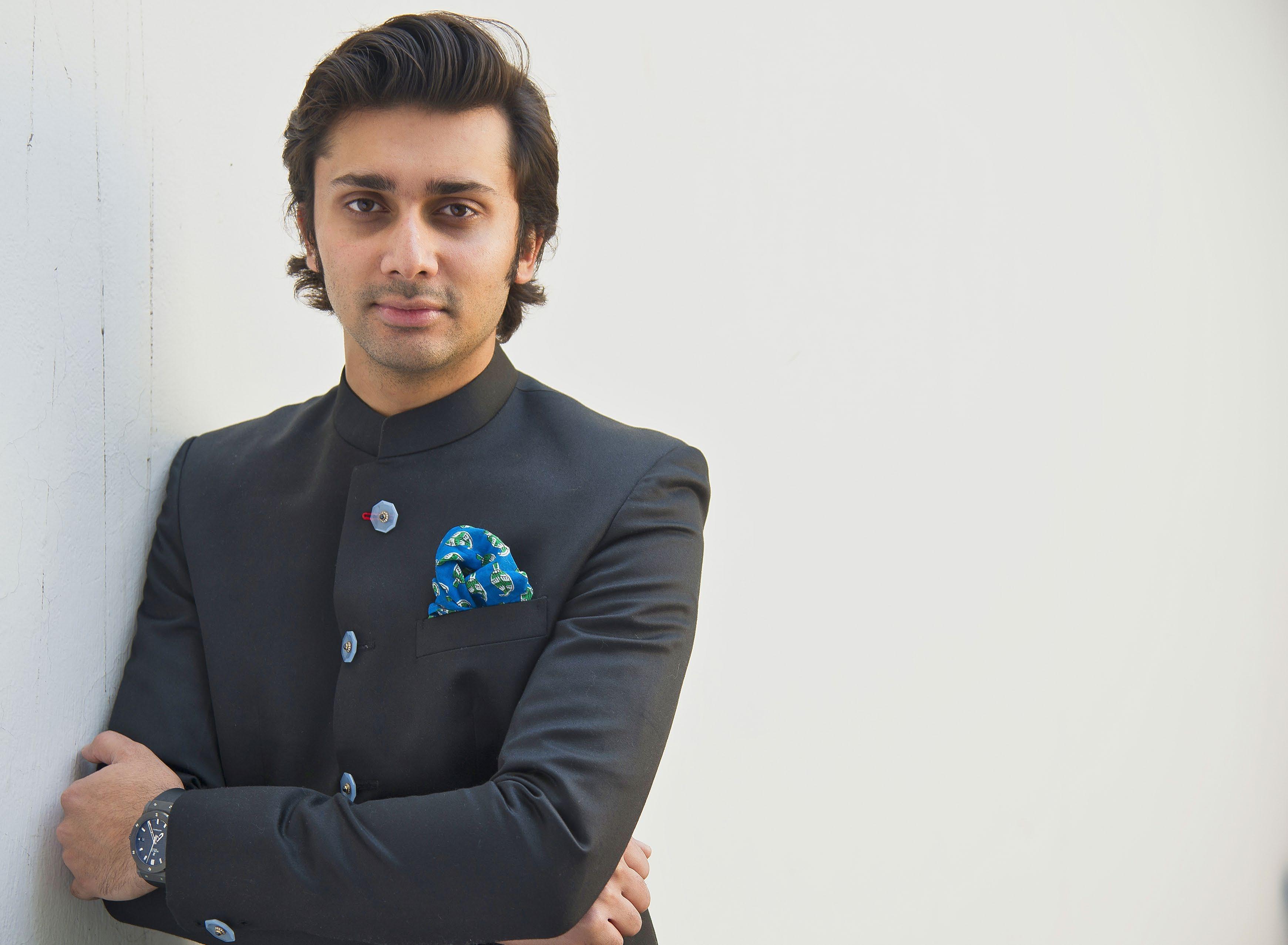
“We are an Indian rooted brand and have had and are having an exponential growth spurt within India. We believe that India is special, and we have a unique way of serving and catering to guests. India is also very rich in food, culture and wellness. All these learnings that we have acquired over the years are the reason we want to expand the Indian story to the world,” he told TRAILBLAZING MAGAZINE.
He elaborated on the term “Modern Hospitality with an Indian Soul” which is synonymous with what The Clarks Group does. “We are moving forward with technology, SOP’s, training but always have
our Indian Roots in the back of our minds, our hotels and especially the upcoming ones are modern, advanced but will always have a hint of India included, with traditional blends and unique corners, the type of hospitality services of an Indian Menu, and many other interesting ways to showcase India, whilst being a modern hotel with top quality amenities and facilities,” he said.
The young talent also comments on the interests of The Clarks Group in Albania and the region. “We see a Great potential in Albania and in the Balkans as there is a growing demand for travel to these countries from India and other parts of Asia, Aryavir said, adding, “We are keen in positioning The Clarks Hotels & Resorts Brand in Albania and of course within the Region in the coming months. We believe this is a significant opportunity that will add to The Clarks Hotels & Resorts Global Vision.”
Full interview follows:
Mr. Aryavir Kumar, thank you for accepting our request for this interview with TRAILBLAZING MAGAZINE! Please walk us through your hospitality career. My hospitality career began from the day I was born, as my father was looking after our family asset -Clarks Avadh in Lucknow, India. Since I was a child I have been watching my family run hotels and have been learning subconsciously. After finishing school, I went to Glion, Switzerland for a hospitality course and after that joined The Clarks.
What attracted you to the field of tourism and hospitality?
This is again linked to my childhood, I have been exposed to hospitality ever since I was born, from greeting customers, doing something special for them, innovating new products, improving services, and also dealing with difficult situations. I enjoy every part of the hospitality industry and we are creating memories for everyone who enters into our hotels.
What can you tell us about The Clarks Hotels & Resorts? What about its strategy to expand worldwide?
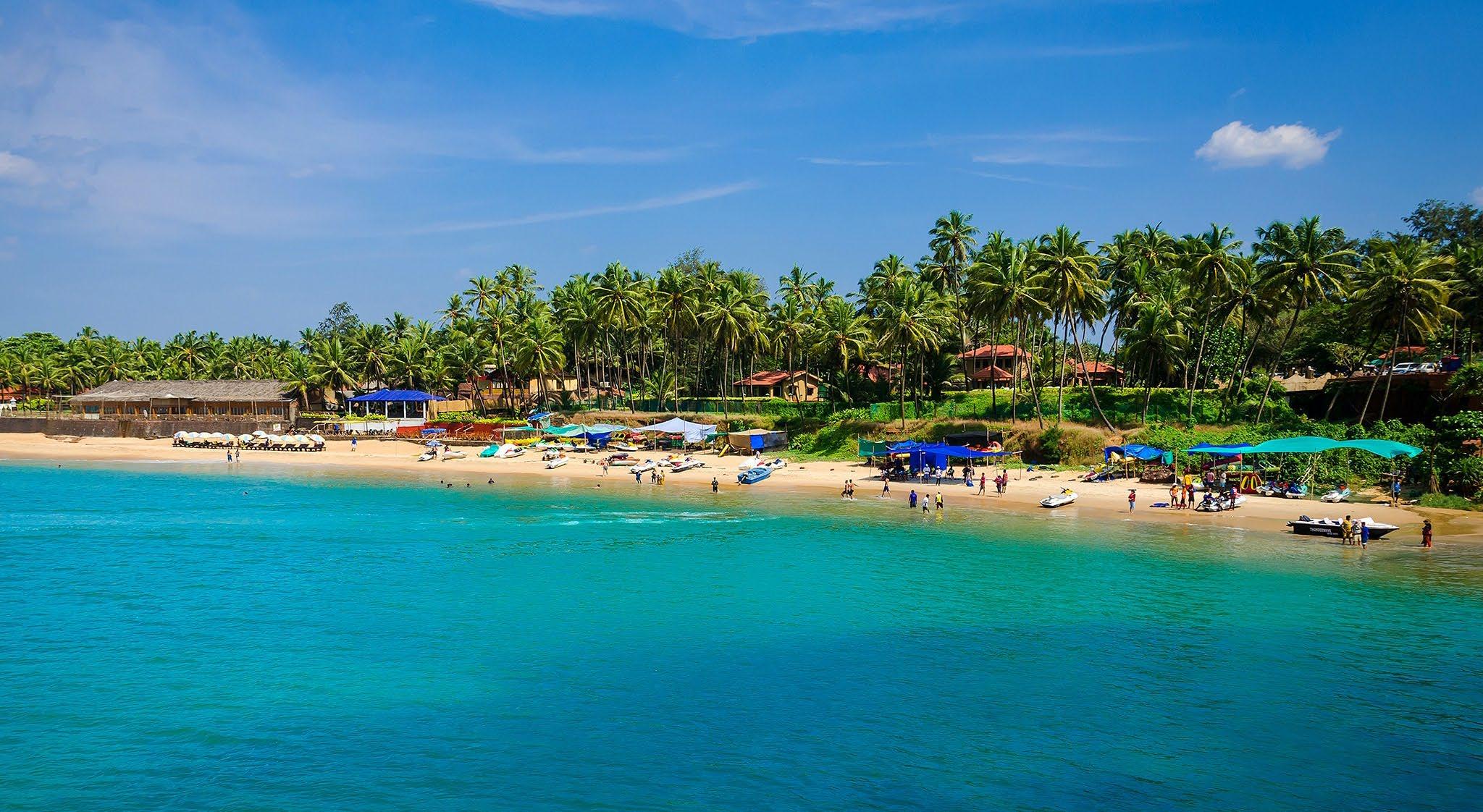
We are an Indian rooted brand and have had and are having an exponential growth spurt within India. We believe that India is special, and we have a unique way of serving and catering to guests. India is also very rich in food, culture and wellness. All these learnings that we have acquired over the years are the reason we want to expand the Indian story to the world, we are first targeting neighboring countries, Sri Lanka, Maldives where we are already operational, and also now Europe, where we have a corporate set up, our strategy consists of having flagships locations at first, to get the brand known and then follow the same success story we are developing in India.
We are a full-service hotel operator in different segments from luxury to economy, from the inception of the hotel to welcoming the first guest, our relationships with our several owners is paramount to us
as we look into a long term relationship to manage their assets and generate revenue for them. We have a strong sales and marketing team, and relationships with tour operators that have been built over several decades. We also have a loyalty program with many members to give them updates of our new hotels and openings.
Can you elaborate on the Brands of The Clarks Hotels & Resorts? What makes them competitive over the other international brands?
We are a brand that is catering to every segment in the hotel space, from economy to luxury travel; Clarks Inn for example is one of the most popular mid-scale brands in India, which is a mixed-purpose hotel.
“Clarks Exotica’s” are resorts situated closely to cities and are a good weekend destinations, we have Clarks Inn Suites which is our select lifestyle Brand, the recent Launches are “The Clarks” as a hotel brand, which is in the luxury segment, and will be operational in Bengaluru, India in 2025,
we have also launched our experiential boutique brand, “Villas & Suites by The Clarks” which is operational in Kandy, Sri Lanka already, then we have a premium business hotel brand Clarks Premier and an extend stay service apartment style concept called “Clarks Residences”
How are the breathtaking beautiful mountains regions, the royal palaces and historically rich places of India influencing on the unique experiences of the clients in the hotels of this country under The Clarks Groups?
India as we know is extremely unique and beautiful, if you want snow you can go to the far north, if you want beaches you can go to Goa, sand dunes you go to Rajasthan, and several mountainous destinations. At The Clarks Hotels & Resorts, we are humbled to say we are present across all regions of India, we have hotels in Goa, Himachal, Rajasthan and Jammu & Kashmir. Post Covid, experiential travel has tremendously grown, and instead of travelling abroad,

customers are keen to explore what we have within India. This has also given a huge push to leisure travel within India and from other countries to India similarly.
For decades, The Clarks has been an old love in the hospitality sector. What do you attribute this feeling to?
We have a parental legacy of over 90 years, where the family has started the first 5 star hotel of North India and the second 5 star for India thus pioneering the luxury hotel industry in India, “Clarks” is a household name when it comes to hotels, many people have had their many “FIRSTS” or their beginnings in the hotel Industry in India with Clarks, from experiencing luxury hotels way back in 1947, from having their weddings, parties, it has always been that one of many “FIRST” 5 star hotels in key locations that we always continued to be present in.
Is Albania in particular and the Balkans in general part of the geographical priorities of The Clarks Group expansion?
Yes! We see a Great potential as there is a growing demand for travel to these
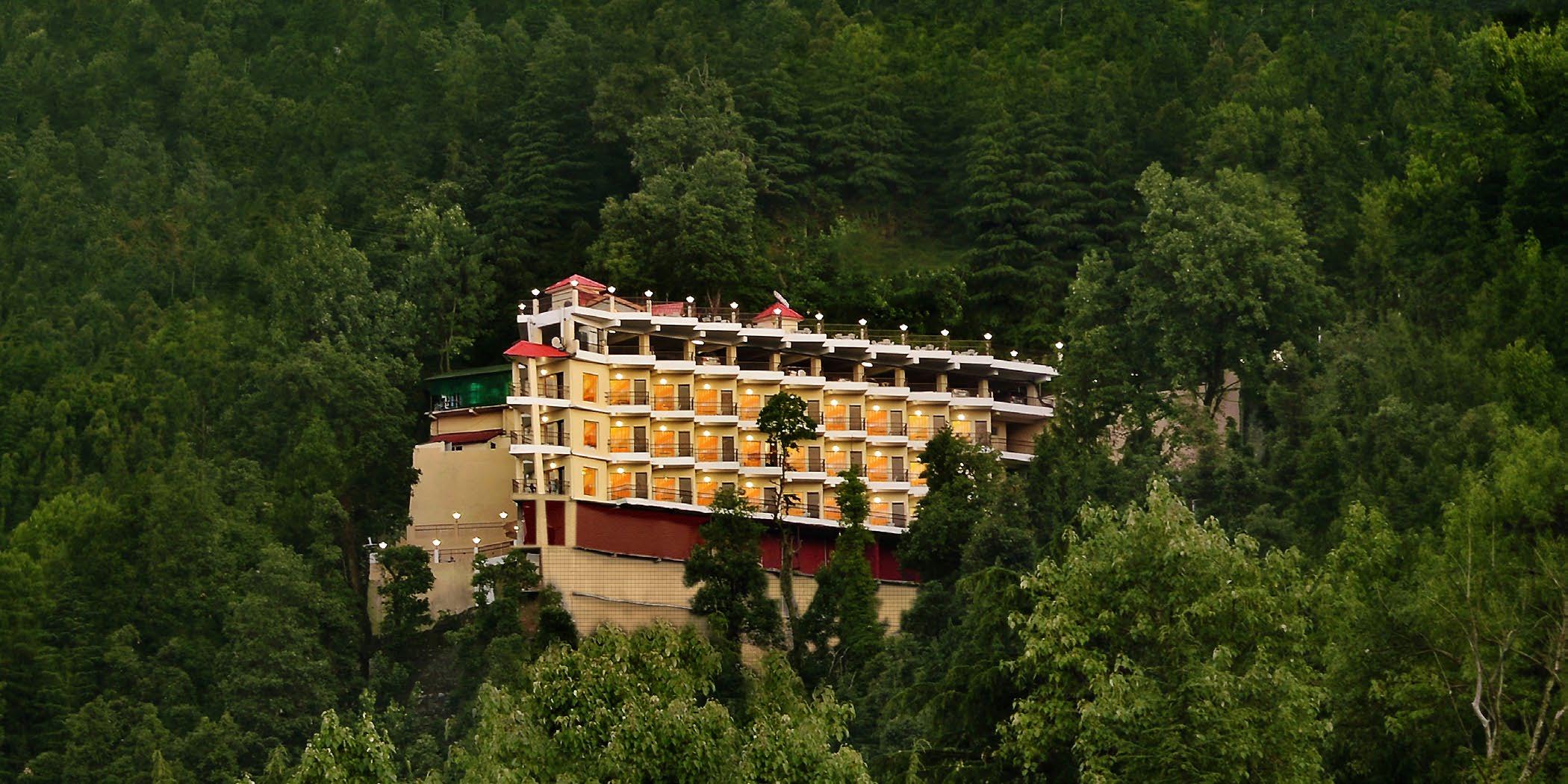
countries from India and other parts of Asia. We are keen in positioning The Clarks Hotels & Resorts Brand in Albania and of course within the Region in the coming months. We believe this is a significant opportunity that will add to The Clarks Hotels & Resorts Global Vision.
To what extend has the slogan of The Clarks Hotels & Resorts “Modern Hospitality with an Indian Soul” influenced on the operations and the interior design of the hotels under The Clarks Group?
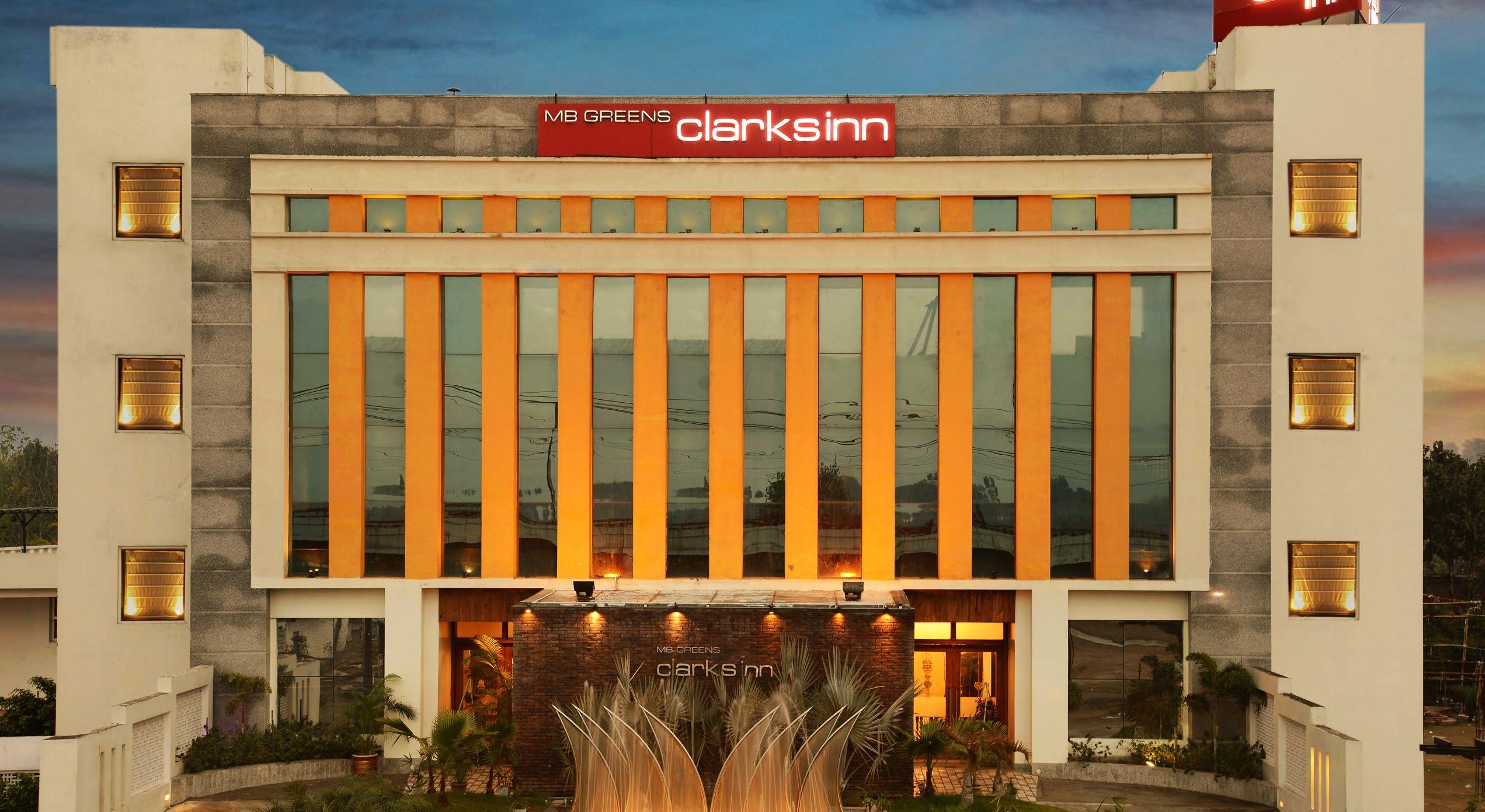
The term “Modern Hospitality with an Indian Soul” is synonymous with what we do, we are moving forward with technology, SOP’s, training but always have our Indian Roots in the back of our minds, our hotels and especially the upcoming ones are modern, advanced but will always have a hint of India included, with traditional blends and unique corners, the type of hospitality services of an Indian Menu, and many other interesting ways to showcase India, whilst being a modern hotel with top quality amenities and facilities.


THE CLARKS HOTELS & RESORTS
A JOURNEY MATURED WITH AGE AND EXPERIENCE so the story continues…
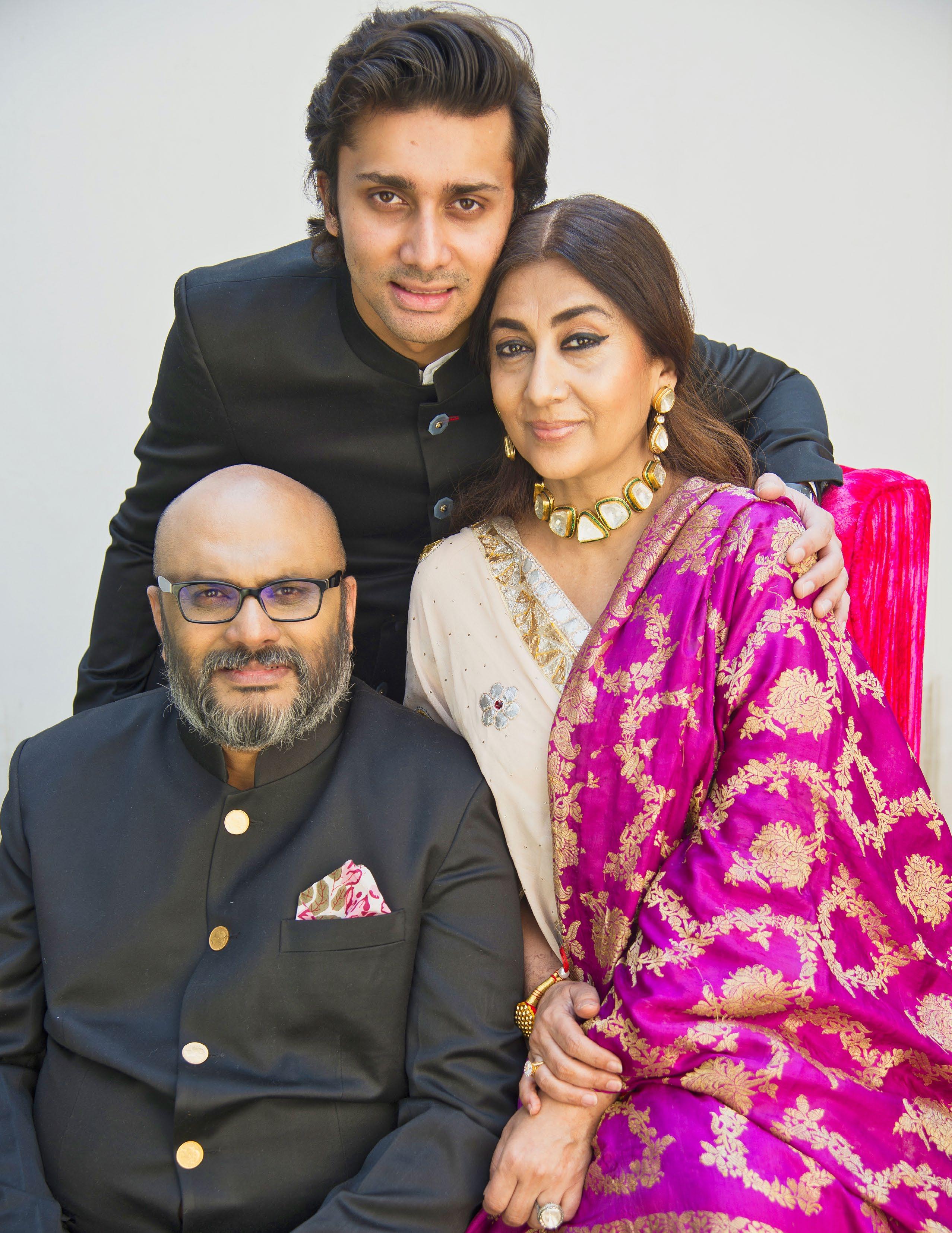
The Clarks Hotels and Resorts proudly boasts of 100 hotels in the Indian Sub-continent, Indian Ocean Islands. In 2022, new hotels were opened internationally
By Rudina Hoxha & Jose Pinto“With a history spanning over a century of glorious tradition, this is the story of an Indian business house that, todate, embodies the unique ethos of its birthplace, Varanasi. Today, the Group is a leading player in textiles, manufacturing, international trade and hospitality.”
This is how we start the conversation with Mr. Anoop Kumar, the Chairman of The Clarks Group who makes a presentation of his Group in this exclusive interview. According to him, The Clarks Group of Hotels has been there since 1947. It is a very strong combination of the family members who are the founders and industry professionals. Over the years, the group has emerged but blended with a family-oriented style of management.
Leading the Group with love and passion together with his son, Mr. Aryavir Kumar, and the corporate leadership, father and son aim to provide the treasured guests of The Clarks Group Hotels with progressive hospitality permeated by an Indian soul. Aiming to expand into new and unexplored markets, The Clarks Group seeks to be modern and forward thinking but always keeping the ethos and roots in mind.
“The group is now active in the International market having its offices in Sri Lanka, Maldives and The Netherlands,” Kumar says in this interview with TRAILBLAZING MAGAZINE adding “We, The Clarks Hotels & Resorts, are actively looking for hotels in the European Market to run on an ownership module, management contracts and franchise contracts.”
Full interview below:

With a history spanning over a century of glorious tradition, this is the story of an Indian business house that, todate, embodies the unique ethos of its birthplace, Varanasi. Today, the Group is a leading player in textiles, manufacturing, international trade and hospitality consisting of companies such as Banaras House, Indian Textiles, Great Value Travels, Great Value Hotels and The Clarks Group of Hotels, founded by Babu Brijplal Das Ji and Shri L.P Gupta.
From just simple beginnings in 1947 with the first Clarks Hotel in Varanasi, - began a long journey. And as we say a journey matures with age and experience - so the story continues…
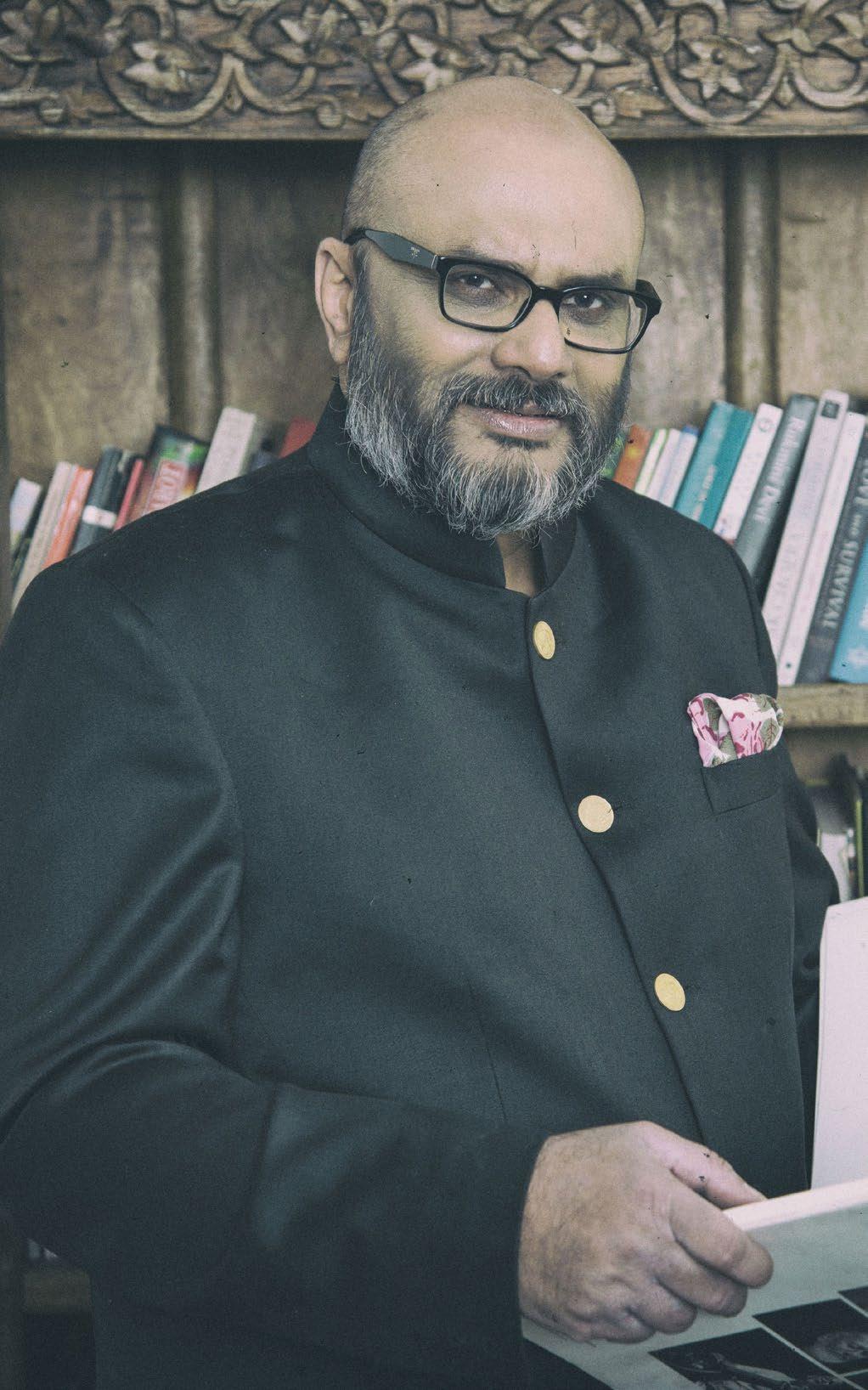
The family has converted their palace into a 32-suite room hotel in the ancient city of the Hindus Varanasi. The Brijrama palace caters to dignitaries from all over the world. The palace is on the banks of the holy river Ganges. Here is the website
https://www.brijhotels.com/brijramapalace-hotel-in-varanasi
The Clarks Hotels & Resorts, started by the promoters of the parental legacy of “Clarks Group,” pioneered the luxury hotel segment in India.
Today The Clarks Hotels and Resorts’ Corporate Leadership comprises of Myself as the Chairman, Mr. Aryavir Kumar my son is the Managing Director and Mr. Rahul Banerjee is the Vice President of the Clarks Hotels & Resorts. We have a large corporate team that covers all areas of expertise from Design Consultancy, Asset Management, Revenue Management, Access to Distribution Channels, Human Resources, Training & Development, Food and Beverage and many others. In order to cater to the hotels nearer to certain cities and reduce the travel time we have established two corporate offices for satellite operations in two key locations which are Bangalore and Chennai respectively. We are also having about six more properties to be opened in key cities across India and Internationally.
What are the characteristics of The Clarks properties?
The Clarks Group of Hotels has been there since 1947.
It is a very strong combination of the family members who are the founders and industry professionals. Over the years, the group has emerged but blended with a family oriented style of management. The Clarks group of hotels is a group with a heart where the industry professionals without hesitation discuss their road blocks with the Promoters. It is a combination which has worked very well over the years.
The Hotel Group has 2 verticals In the ownership module the Promoters own 5-star hotels
1- Hotel Clarks Varanasi, Varanasi
2- Hotel Clarks Shiraz, Agra
3- Hotel Clarks Amer
4- Hotel Clarks Avadh
5- Clarks Khajuraho
Hotel Clarks Shiraz Agra was amongst the first 5-Star hotels which opened its doors to the world next to the monument of loveThe Taj Mahal and was the 1st 5 Star Hotel in North India and the 2nd in the whole of India.
Thereafter the family, given their experience in hospitality, set out to management contracts. Their dynamic team is based in Gurgaon - New Delhi India and has almost 100 professionals working to support this concept.

The group proudly named this Vertical “The Clarks Hotels and resorts”
Our Industry Professionals in this Vertical can design the hotel from the “First brick to the First Guest” and run it for the owners for 20 years or more.
The Clarks Hotels and resorts proudly boasts of 100 hotels in the Indian Sub-continent, Indian Ocean Islands. In 2022 new hotels were opened internationally
1. Maldives - Clarks Exotica Kamadhoo
2- Sri Lanka – The Albatross Boutique Villa by The Clarks in Digana – Kandy.
The group is now active in the International market having its offices in Sri Lanka, Maldives and The Netherlands.
We, The Clarks Hotels & Resorts, are actively looking for hotels in the European Market to run on an ownership module, management contracts and franchise contracts.
How committed is the Group towards service and training?
The promoters of the group have a professional view of hospitality. They have educated themselves in the 1-institute of tourism and Hotel Management, Salzburg Austria.
2- Cornell University Ithaca, USA
3- Glion Hotel Management University in Montreux, Switzerland.
Alongside they have worked in various positions in leading groups all over the world and this also adds to their familyowned hotels. This deep insight into hospitality has helped to guide the overall hotel group towards its success and growth. They have a hands-on approach towards the business on a daily basis.
The product and profits are tailor-made by people. This group stands to believe that without training and development- it is a recipe for disaster. So, extensive training programs are in place right from the level of Management Trainee to the Vice President of the hotels. This is reviewed on a quarterly basis and feedback on the key result areas are given to the employees.
The hotel group specializes in Indian hospitality. Indian hospitality is ancient and has been passed on to the people living in the sub-continent for generations. Hospitality is in the blood of India.

The world over this touch of India is felt by the customers and good Indian food is served even in the groups international hotels.
In your opinion what does it take to run a powerful group like the Clarks?
The principles of Management are simple
“The group is a One Stop Hotel Solution for any corporate sector wanting to establish a Hotel and give it to the Clarks Hotels and Resorts for management”.
and have not changed since eternity. Any successful corporation will be People oriented and follow the following principles
1- Having a clear vision
2- Discussing the vision with the team
3- Making sure it is understood clearly by the team
4- Encouraging questions
5- Giving a free hand of execution of the vision
6- No compromise on honesty
7- Absorbing the mistakes of the team and constantly guiding and being with the team.
8- Human like approach to Management
The question is often asked by the promoters to the team. Who comes first
The Promoter’s emphasis is that no customer can be satisfied without a professional team and outlook in place. How can Hotel employees greet its customers with a smile if he or she is not happy. Mentoring, Motivating and Counseling must be an imperative part of the system.
This approach has resulted in a minimal attrition rate and repeat clientele in all their hotels Continuous upgrade of product and induction of industry professionals are integral.
What is the philosophy of the group while hiring young talent?
While taking new recruits, it is important to observe if the candidate has an aptitude for hospitality. Education is important but the mind set for hospitality is more important. The candidate must have a vision for oneself and must be able to see at a decent position in 5 years.
The good advice always offered is if the mindset of working with people and smiling in the face of adversity is not there then one has to reconsider this line of work.
How have you measured success since you took over the chair?
Apart from growth in number of hotels, bottom line and general wellbeing across all its hotels.
I have noticed the rise in Hospitality is very slow. The Group gives an opportunity to young Professionals, an opportunity to become Departmental Heads and General Managers of hotels in their mid-30s.
Of course, age and maturity go hand in hand but the top level of the Clarks Hotels and resorts are young and bubbling with energy. The zeal to please the customer is so high which is possible only at a younger age. The Clarks Hotels and Resorts is a young brand as it evolved 16 years ago.
You are the author of “My abstract Thoughts” ……….
“My abstract Thoughts” is an appointment with yourself. The book reflects on questions about Life. I have tried to delve on questions that are meaningful because of my wide exposure to various philosophies.
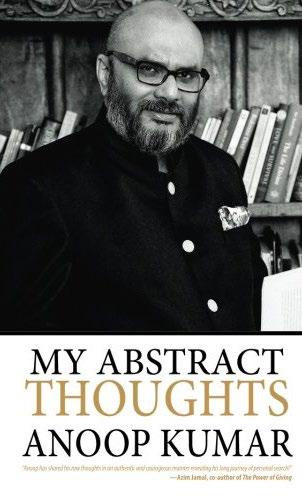
1- What do you want out of your own life
2- You alone are the Picasso of your painting
3- Make a vision statement
4- Jot the steps to proceed from Point A to point B
5- Take solace and happiness in small accomplishments through the way
The book deals with human questions. Just like the sea water will taste the same no matter where you taste it. Likewise, humans are humans everywhere the problems, questions apply to everyone all over the world. The book emphasis on human values and to function with apathy and compassion.
The Clarks Hotels & Resorts is a group of 100+ unique hotels, resorts, service apartments and inns, located in 98 destinations, across 8 brands catering to differing tastes.

The Clarks is an Indian hospital chain with a history spanning over 80 years of glorious tradition from 1947 and on.
For decades, The Clarks has been a familiar and cherished name in the hospitality sector providing comfortable accommodations at competitive prices. Following an aggressive roadmap, the company aims their properties to penetrate India wide and overseas. By 2025, the Clarks wants to reach 200 hotels. Learn more at: www.theclarkshotels.com
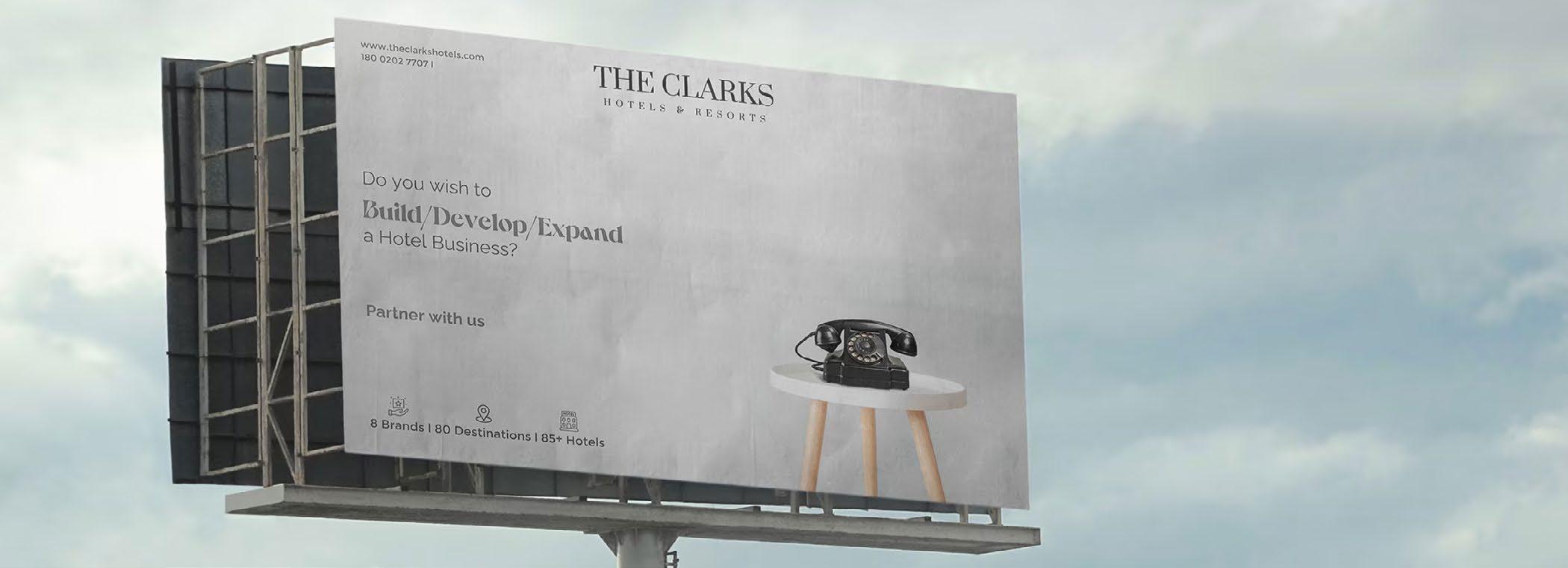
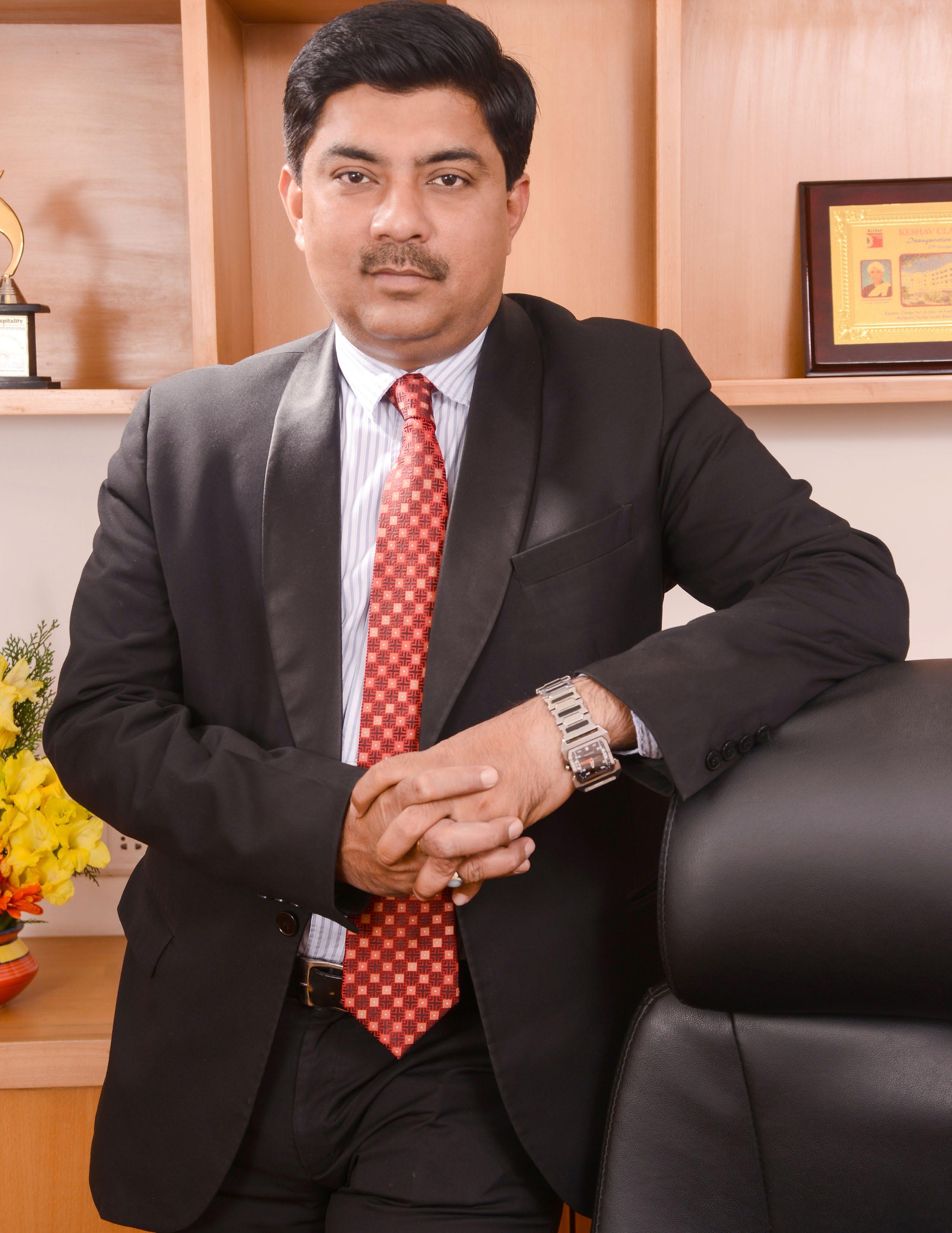
2023 Shaping Up an Exciting Year for The Clarks Group
The Vice-President of The Clarks Group, Mr. Rahul Deb Banerjee stressed in an exclusive interview with TRAILBLAZING MAGAZINE that overall, The Clarks Group is off to a great start in 2023 and is well-positioned to continue its impressive growth in the hospitality industry. This, according to him, will happen by sticking to the traditional concept of Indian hospitality.
“International expansion can be extremely profitable, but the brand must maintain the same ethos across all its properties,” he said, adding “To this end, The Clarks is aiming to retain the traditional concept of Indian hospitality and blend it with the modern comforts of the hospitality industry.”

Mr. Banerjee deems important to have some key aspects in consideration before venturing internationally. “It is also important to have a clear understanding of the host market, the licensing procedure, hospitality standards, safety measures, and local cultural sensitivities before venturing into international grounds,” the seasoned hotelier said.
About the Generation Z and millennials, Mr. Banerjee said that The Clarks Group has made investment in technology and manpower to satisfy this segment and this tactic has borne immense results. “At the marketing front, we have improved our digital media presence by 18%,” he said.
Full interview below:
Mr. Rahul Deb Banerjee, thank you for this opportunity! Please can you share some of your career highlights with our readers? My professional life has been rich in growth and learning and have worked in leading International and National Brands. Along my path, I have had a lot of successes. I have developed and put into action comprehensive plans for cost-cutting, increasing efficiency, revenue optimization and streamlining business operations. Also, I’ve created and managed a number of effective employee training and development programmes that have given staff members the knowledge and inspiration they need to work at their very best. We didn’t disregard marketing and branding when we were
working on these. We created and put into practise thorough marketing and sales tactics that have greatly improved foot traffic and profitability while continuously focusing on giving our clients more value and promoting repeat business.
I have also had expertise managing and directing large teams, and I can successfully implement change and enhance procedures. My teams have routinely surpassed or accomplished their objectives. Also, I am adept at using a range of hospitality technologies, such as reservation systems, hotel management systems, and point-of-sale systems.
Moreover, I specialize in problem solving, and have consistently provided excellent service to guests. My analytical and decision-making skills allow me to quickly and effectively identify and address issues, and I am experienced in dealing with complex situations. Also my relationships with our business partners and owners is my strength as I have always succeeded in keeping a strong bond with them throughout these years and have developed a very special relationship.
Let’s explore the charm of a rising starThe Clarks Group - How does it look like the beginning of 2023 for this Group and what is in the pipeline?
2023 is shaping up to be an exciting year for The Clarks Group. The organization continues to expand, with plans for new locations and the year has started with some new openings already.
The Clarks Group has also continued to invest in technology, with a focus on streamlining operations and providing customers with a superior experience. The Group has recently upgraded their POS
systems, hotel management systems, and reservation systems, which has resulted in a more efficient and seamless customer experience.
Moreover, The Clarks Group has developed and implemented a comprehensive marketing and sales strategy, which has resulted in a surge in foot traffic and profits.
Overall, The Clarks Group is off to a great start in 2023 and is well-positioned to continue its impressive growth in the hospitality industry.
How important is the new expansion of international footprint for The Clarks Group?
The Clarks Hotels & Resorts is looking to expand its international presence, with 10 new hotels set to be established in locations around the world. Their first move into Europe was through the establishment of Clarks Inn International B.V. in The Netherlands. They also deployed a team to Colombo, Sri Lanka, and set up Albatross by The Clarks in Kandy, to target the local market. Additionally, Clarks Exotica was set up in Kamadhoo, Maldives.
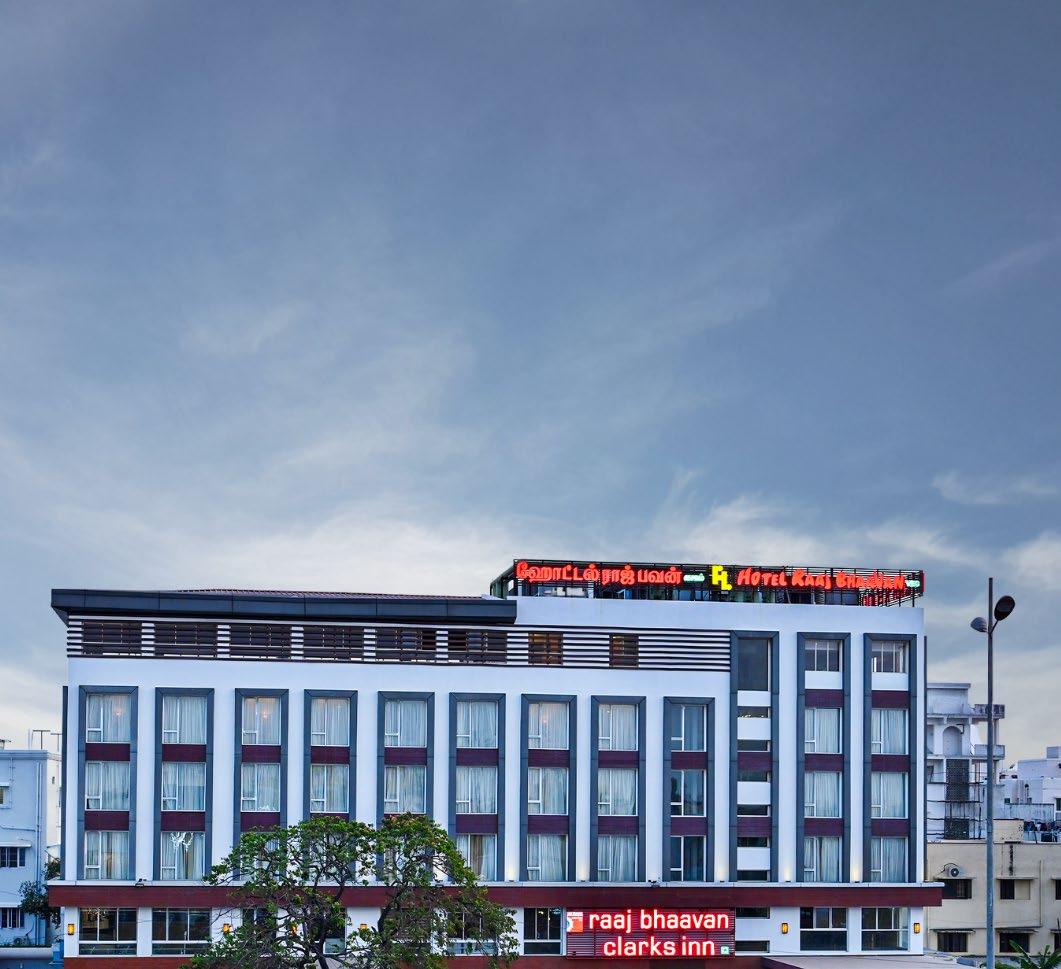
International expansion can be extremely profitable, but the brand must maintain the same ethos across all its properties. To this end, The Clarks is aiming to retain the traditional concept of Indian hospitality and blend it with the modern comforts of the hospitality industry. It is also important to have a clear understanding of the host market, the licensing procedure, hospitality standards, safety measures, and local cultural sensitivities before venturing into international grounds.
If done correctly, international expansion can greatly increase the portfolio of The Clarks and lead to a surge in brand equity.
Branding is essential for any product or service to be successful, as it creates a unique narrative and establishes the product or service’s mission and vision. This is especially true in the hospitality industry, where creating a strong brand identity and excelling in customer service is key to success.
To create a successful hotel brand, creating a consistent message and delivering exceptional guest service is essential. This requires having a great web or mobile interface, handling grievances quickly and professionally, and providing uniformity in communication. Additionally, hotels should carefully consider which online travel agencies (OTAs) they list on, as this can have a huge impact on their brand image. Additionally, loyalty programs should be created to reward frequent customers and to encourage them to return.
What makes a hotel and a brand successful is a combination of several factors.
First, a hotel and brand need to provide excellent customer service, ensure cleanliness and safety, and meet customer expectations. To ensure customer satisfaction, hotels should have attentive
staff, comfortable and well-maintained facilities, and offer competitive rates.
Second, hotels must make a strong effort to market themselves and create an attractive brand identity. This includes creating a strong online presence through social media, developing a strong brand message, and establishing a solid reputation by offering exceptional customer service.
Third, hotels need to carefully consider their target demographic and tailor their services accordingly. This requires understanding the needs and wants of the target market in order to develop strategies that resonate with them.
Finally, hotels must differentiate themselves from competitors in order to stand out and attract customers. This could be done through exclusive offers, loyalty programs, and innovative services.
In short, successful hotels and brands must provide top-notch service, create an attractive brand identity, understand their target market, and differentiate themselves from competitors.
Generation Z and millennials are much more organised, demanding at the same time are seeking different kind of travel experiences. In order to address them we have made investment in technology and manpower that bore immense results. Our effective implementation of initiatives like the booking engine, newly done corporate website, regional sales offices in prominent cities, and the expansion of the corporate team for a more effective control, assisted in creating new revenue milestones.
We recently opened our sales offices both nationally and internationally.
At the marketing front, we have improved our digital media presence by 18%. We strictly follow the same marketing and branding
guidelines across all units, consistency in communication is seen in social media marketing, search engine optimisation, media releases, digital campaigns and lead generation activity. In addition, we have launched our verified WhatsApp API, to have a one-on-one personalized booking session with the user. They can share candid reviews, book a room, and even do personalized bookings. The queries are resolved on the same platform with promptness.
All these efforts are paying off in a positive direction, there are many more plans in pipeline to cater to the millennials.
What advice do you give young graduates coming into the hospitality industry and what are the keys to success in your view?
Ans: Both nationally and internationally the hospitality sector is all set to grow. As per one prediction, the Indian hospitality sector is set to reach $160.2 billion by 2026. We can clearly understand the employment opportunity this sector will generate. But this sector is not a cake walk as pressure, meeting customer expectations, long working hours, multitasking are the bitter truths of this sector. I believe Gen Z has immense potential, they are much clear about their career path. They know what they want and don’t shy away from asking it. I would suggest doing deep research of the sector, talking to some of the hospitality professionals, being candid about your own skill set and then deciding to take the plunge.
Young graduates should work on their communication and soft skills, as this sector is majorly communication driven. If possible, please learn some foreign languages that will fuel your career growth. Develop problem solving skills or crisis management skills, because many times they will come across unpleasant situations, and thinking on your toes will help. Be professional and well groomed, no matter what time of day, you should be highly presentable. The most important thing is that aspiring professionals need to have excellent interpersonal and multi-tasking skills. The hospitality industry offers a number of exciting opportunities, including travel, learning new skills, and fast career growth. However, it is not without its challenges.

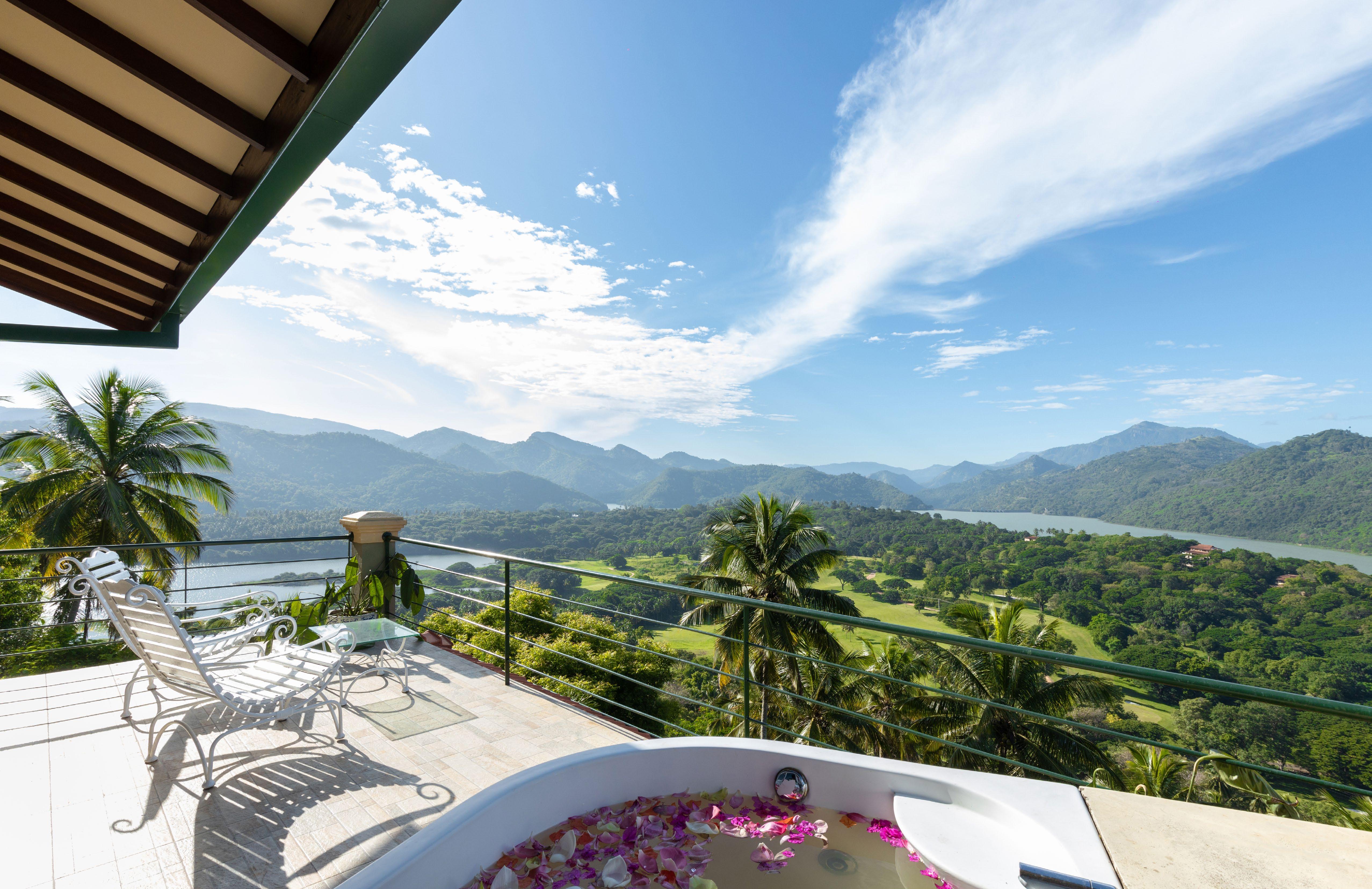
The Clarks Hotels & Resorts embarked on its International journey in Sri Lanka and had its first property tie-up in Sri Lanka being The Albatross Golf Resort in Digana, Kandy by The Clarks in the last quarter of 2022 and is now rapidly extending its presence within the Luxury Boutique Villa Market in Sri Lanka with a few key Luxury Villa Properties in 2023. A couple of Commercial 4 and 5 Star Properties and Safari related properties will soon top the portfolio Hotels, Resorts and Luxury Boutique Villas in Sri Lanka under a few of the many Clarks Hotels & Resorts’ 9 BRANDS.
Therefore the Clarks will strengthen its presence further into the Sri Lankan Market thus promoting Sri Lanka both to the Indian travellers and worldwide travellers which aims to take advantage of the growing Sri Lankan business and leisure travel market. The Clarks Hotels & Resorts will also increase more opportunities for the many of the Indian travellers with a wide selection of The Clarks Hotels within the Sub Continent with a network of more than 100 properties thus optimizing their presence further in key locations within Sri Lanka by the end of the
calendar year 2023.
The Albatross Golf Resort Digana, Kandy by The Clarks, is an upscale property with 8 modern rooms in the popular city of Kandy located in the central hills of Sri Lanka - The rooms are divided into three categories –The Royal Albatross Suite, The Tee off Suite and Deluxe Rooms catering for guests from all over the world. This certainly gives an opportunity for the Indian Travellers to start enjoying Indian and Sri Lankan hospitality with The Clarks Hotels & Resorts.
The property is in close proximity to an Amazing 18 hole Golf Course with breathtaking views of the of the surrounding hills and the Victoria reservoir. The property is just a 30 minutes’ drive to the Amazing Temple of the Tooth Relic in Kandy and the Pallekelle International Cricket Stadium. If anyone also wishes to fly, a Sea Plane / Amphibious Aircraft does also can land at the Victoria Reservoir. Helicopter Flights are similarly available to fly you to Digana directly where they have two Helipads and it is just only a few minutes’ drive to the location.
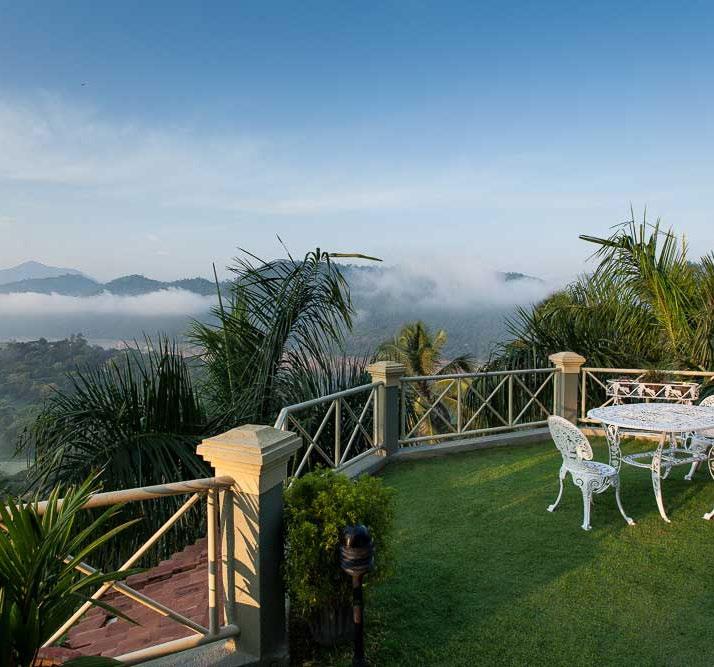
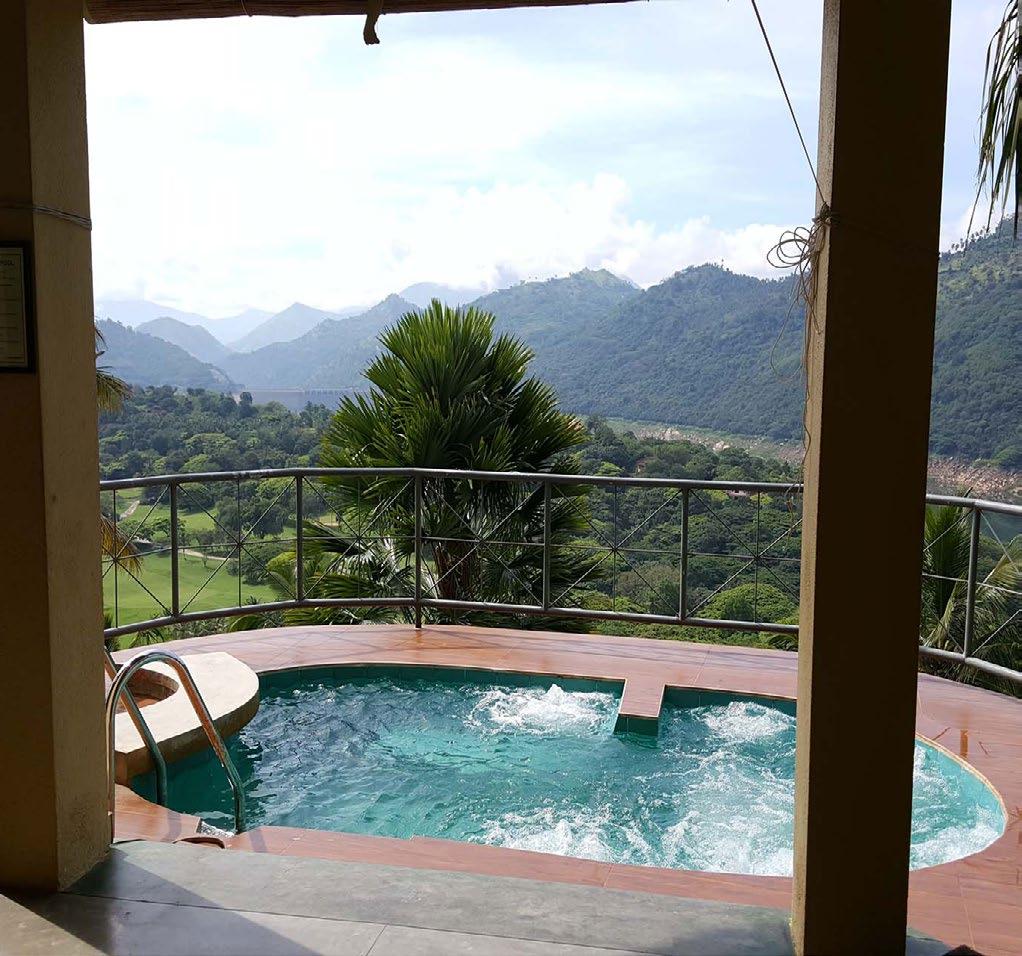
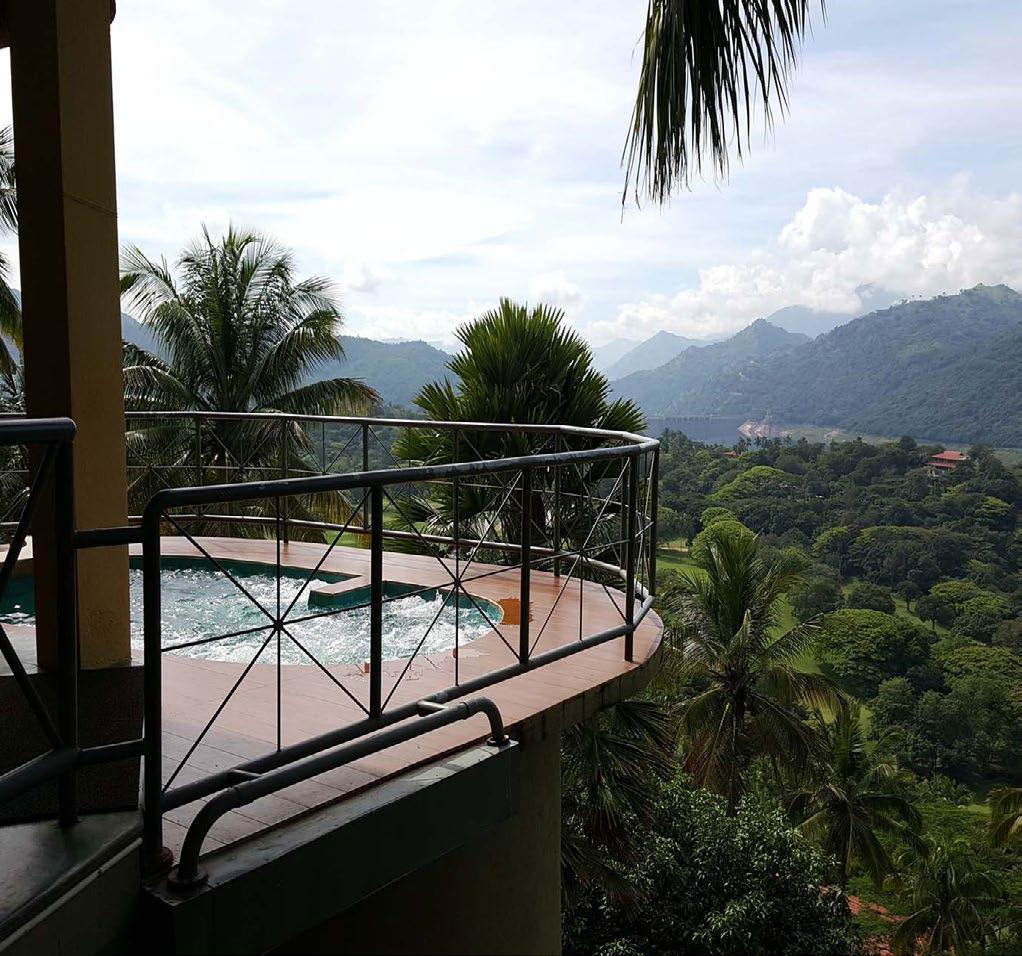
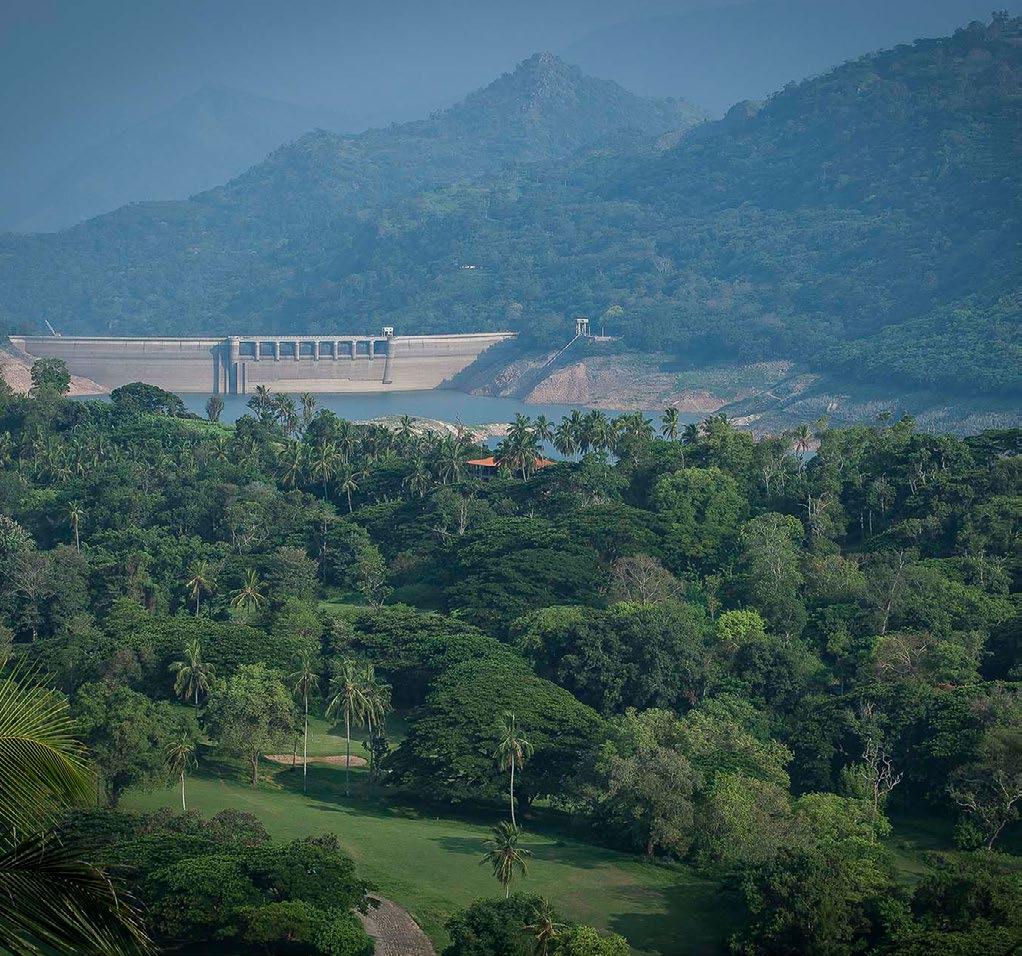
The Clarks Hotels & Resorts is extending its presence in Key Locations in The Western Province with a couple of properties in proximity to the two major International Airports such Colombo, The South Western Coastal belt areas which will include Galle, The Cultural Triangle, The Eastern Part of Sri Lanka, The Central Hills of Sri Lanka such as Kandy and Nuwera-Eliya with its cold climates, The North and North Central area of Sri Lanka in proximity to Key National parks which includes the Cultural and Heritage areas. The Clarks is delighted to enter such a beautiful and amazing country like Sri Lanka - an Island that is abundant in diversity and that is recognized globally as the Pearl of the Indian Ocean.
We at Clarks Hotels & Resorts believe that “As a part of corporate strategy we are expanding both in India and internationally. We are present in almost all the states of India.
We are price conscious and believe in providing value for money to our travelers. This is the best time to be in the tourism industry, with the Sri Lankan government
pushing tourism, and the pandemic has changed the attitude towards traveling, coming months will witness a further increase in tourism. We are also now promoting Sri Lanka and The Maldives as our new international destinations through our global network.
Gabriel Gunesekere – Head Development - Sri Lanka, The Maldives and International is optimistic that The Clarks expansion has created a buzz in the Sri Lankan Market and will further add more properties to The Clarks Hotels & Resorts portfolio in the coming months. By 2025, The Clarks Hotels & Resorts will comprise of over 200 properties within its chain.
Malinda Ranwala – General Manager Hotel Operations, Sales & Marketing for Sri Lanka & The Maldives believes with the expansion of the Clarks Brand in the Region will offer a Greater potential to the guests with an array of selected brands targeting the Indian travelers and international travelers from around the world as far as the Americas and the Australia Asia Region.


An accomplished hospitality and tourism professional who has a wide experience in Hotels, Travel & Tourism including the Aviation Industry totaling 3 decades in the Middle East, South Asia and South-East Asia. Being a multi-lingual Sri Lankan national with an Austrian & Lebanese descent, he speaks English, French, Intermediate German, Sinhalese and a few other languages. Gabriel worked with many International Chain Hotels such as Accor Hotels, Swiss-Belhotel International, Millennium and Jebel Ali Hotels (JA Hotels) which also included in-bound Tourism operations such as Aitken Spence Travels in Sri Lanka with Europe’s Leading Tour Operator – TUI.
Oman and Maldives too added to his inbound tour operations significantly. His last two roles have been as Director of Sales & Marketing for 5 Star Hotels in Asia being The Kingsbury Hotel Colombo, Sri Lanka and The Rose Garden Hotel - Yangon in Myanmar. Adding to the Tourism & Hospitality education, Gabriel also holds a Pilot’s License that includes other trainings with Qatar Tourism in collaboration with The United Nations World Tourism Organization (UNWTO), Accor Academy Dubai/Middle-East and others. Gabriel has held many Memberships in different countries and Chambers of Commerce such as The German Business Council in Qatar – GBCQ (elected to the Board of Directors) and currently is a Member of SKÅL International Colombo – Sri Lanka.
A professional hotelier with over 15 years of experience, who has been working in small and large hotels of varying styles. He has been revolutionarily involved in various departments attached to hospitality. He was awarded as Sri Lanka’s best General Manager (CMO/ASIA 2018).
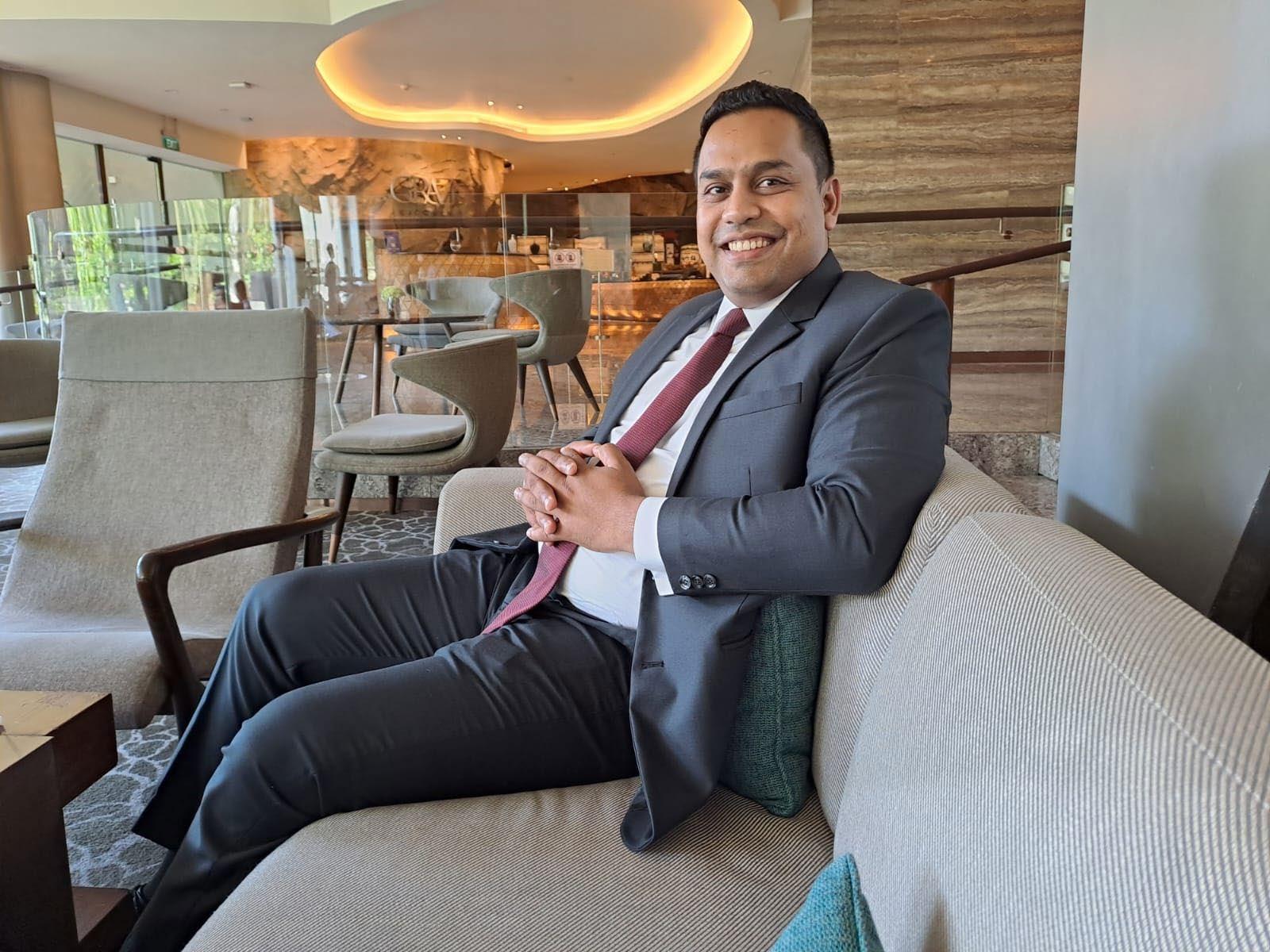
He started his journey in 2007 with the completion of his Graduate
Diploma in Marketing in 2005 and a Higher National Diploma in Hospitality Management with a second upper class (SLITHM – 2009). He completed his MBA (University of Wales Trinity Saint David) in 2021. Malinda held various positions in Star Class hotels from 2006 to 2018 to become the General Manager in one of the leading 5 Star hotels in Sri Lanka which is The Blue Water Hotel and Spa.
He is characterized by a clear vision, courage, integrity, honesty, humility and clear focus while creating an inspiring team has always been part of his ambitious goals.
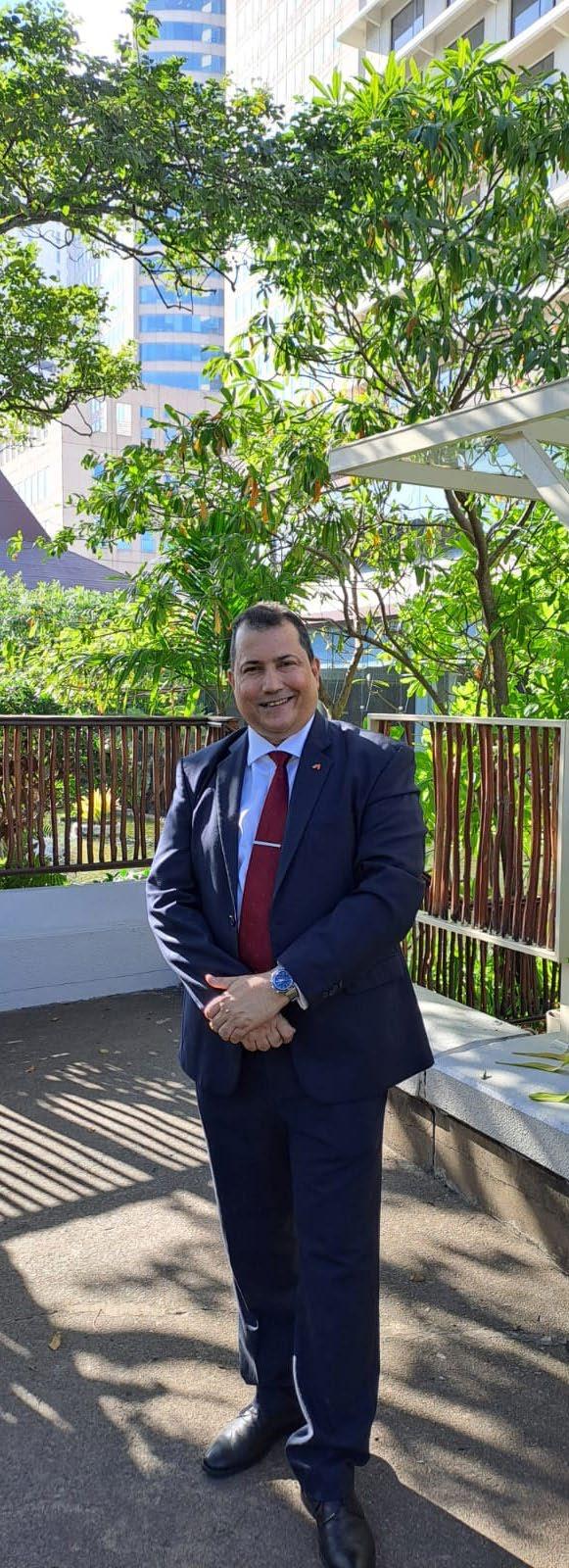
The Clarks Exotica Kamadhoo is located in a beautiful community island in the Baa Atoll which is a UNESCO Biosphere Reserve. Anyone can reach the main Airport Island by a domestic flight that just takes 20 minutes from MALÉVelaana International Airport and one can reach the property by a speed boat that just only takes approximately about 15 minutes from the domestic airport of Dharavandu to reach the property.
Kamadhoo Island overlooking the Indian Ocean is famous as a yoga retreat destination which is surrounded by the most beautiful beach with white sand all over amidst crystal clear blue water.
Whether you like to kick back, relax and take in the magnificent, stunning beauty of the island and surrounding reef, the island offers the perfect balance of both.
The Clarks Exotica provides excellent rooms and accommodations including rooms with immaculate views of the ocean. They also have intricately designed penthouses that guarantee premium luxury.

All of the accommodations are laced with modern amenities and facilities to ensure your stay is convenient and delightful. The hotel has two exclusive restaurants that offer the best food in town.
The Bridge, is a multi-cuisine restaurant, and has a diverse menu with delicacies borrowed from a variety of cuisines. Pool Deck Lounge, at the lounge area by the outdoor pool, is the perfect place to kick back and relax with a refreshing drink.
During your stay at Clarks Exotica, discover and explore the marine life and
lose all sense of time as you venture beneath the ocean’s surface to glide alongside turtles and whale sharksenjoy scuba diving, snorkeling to see a coral garden in a huge fish structure made by the locals here. Hop on to a boat ride and swim with the Gigantic Manta rays at Hanifaru Bay.
Go for morning or night fishing. Take a picnic basket to a remote sandbank or visit a local island and as you come back from your adventurous and tiring day you can dig into the sumptuous round-the-clock menus and relish the traditional taste of Indian, Maldivian and Continental food at the restaurant.
Bob Rex is the General Manager of Clarks Exotica KamadhooMaldives. Bob has worked both in City Hotels & Resort Properties - with over 30 years of experience in the hospitality Industry in countries such as The Maldives, India, United Kingdom, The United Arab Emirates & Vietnam.

Gabriel David Gunesekere, Head of Development at The Clarks Hotels & Resorts for Sri Lanka, The Maldives and International shares with TRAILBLAZING MAGAZINE the development strategy of The Clarks Group for the coming years aiming to turn it into an international leading hotel chain.
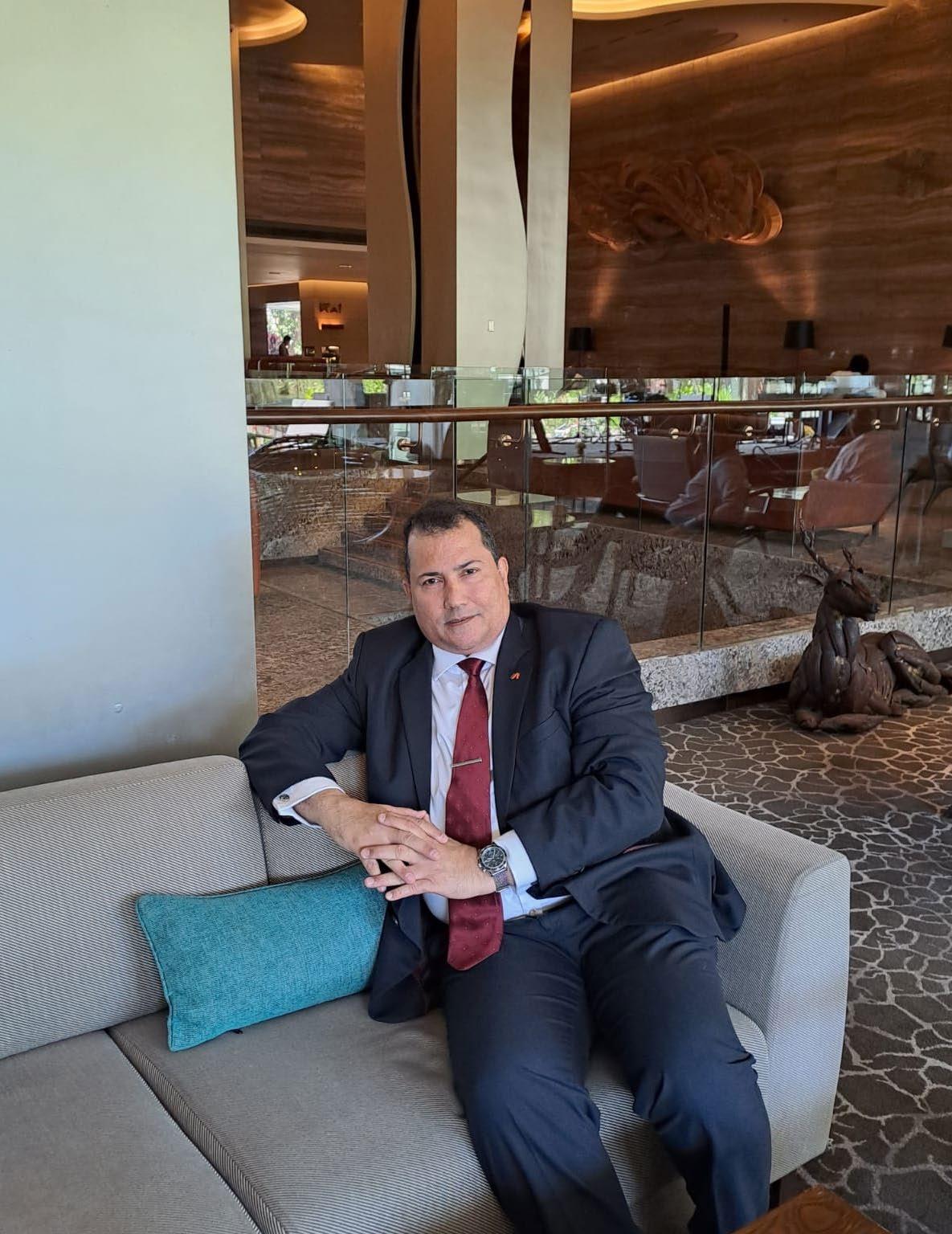
“With around 2 to 3 properties being opened in India on a monthly basis in the next few months, we are looking at opening at least about 12 Hotels & Resorts internationally under the Clarks Brand in 2023,” said Gunesekere highlighting that The Clarks Hotels & Resorts has over 100 properties in India itself.
According to Gabriel, the future is looming for The Clarks Group. “Our plan is to have over 200 hotels under the Clarks Brand by 2025 and in addition to India in key regions. This in-turn will include over 30 properties with key strategic Tie-Ups Internationally by 2025,” he said.
On the other hand, he stresses that the Balkans in general and Albania in particular is being viewed with a lot of interest by the Indian travelers who are in search of new unexplored destinations.
“With Indian traveller’s looking for new destinations to travel and try new countries like Albania, Montenegro, Croatia, North Macedonia, Romania and the Mediterranean countries where there will be a tremendous influx of Indian travelers that will include many other Asian and Middle-Eastern travelers soon visiting these countries in the coming months,” the accomplished hospitality and tourism professional said.
Full interview below:
What does The Clarks Hotels & Resorts pipeline actually look like?
The idea of Clarks Hotels & Resorts has always been to expand internationally,
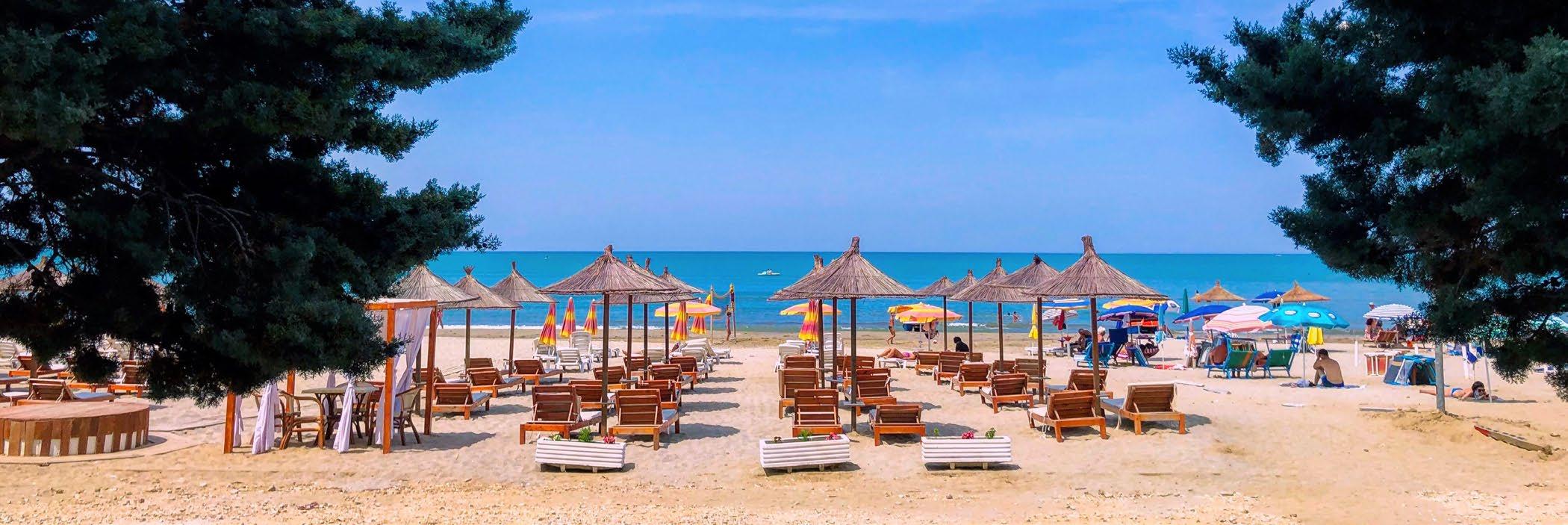
“Indians are looking for new destinations like Albania…”View from Durres. Photo credit Unsplash
initially to the Regional Countries... Having been offered this opportunity – with Sri Lanka being the first country The Clarks Owners had in mind and with my international experience I personally saw a Greater potential in the Clarks Hotels expanding to other countries more rapidly with an opportunity to manage more properties and The Maldives was added in the same period of September 2022. The Clarks Hotels & Resorts with a strong network and presence of over 100 properties now in India itself was key and we knew by this strength that more properties can be part of The Clarks Hotels network internationally.
How has the group’s development strategy evolved?
Our plan is to have over 200 hotels under the Clarks Brand by 2025 and in addition to India in key regions. This in-turn will include over 30 properties with key strategic Tie-Ups Internationally by 2025.
Which regions do you deem as having the most probable for The Clarks Hotels & Resorts properties?
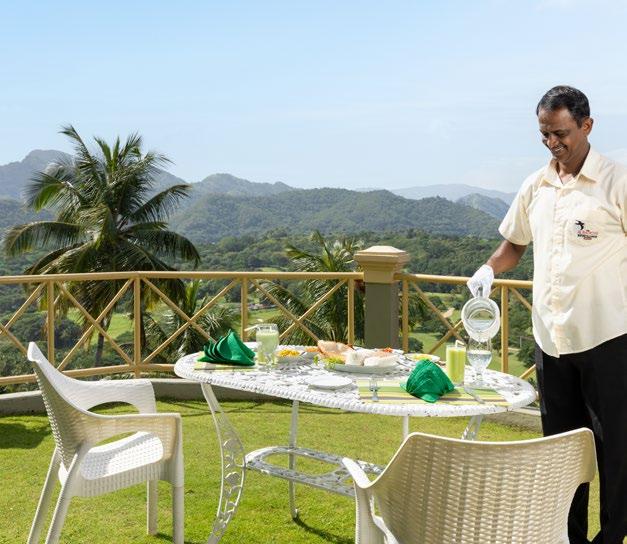
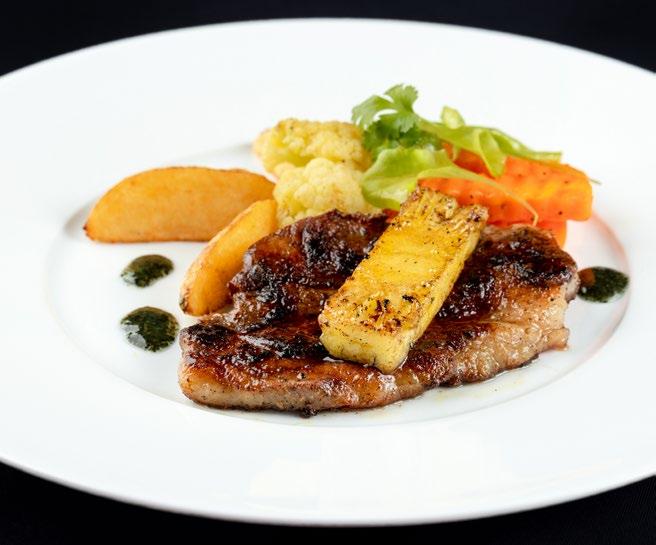
Yes! The Regions are - the Indian Ocean Islands, Europe, Middle-East & North Africa and the Asia Pacific Region (APAC) with the American continents, the Caribbean and the rest of the world being included over time… Thus, Clarks Hotels & Resorts becoming a leading hotel chain globally in the coming years.
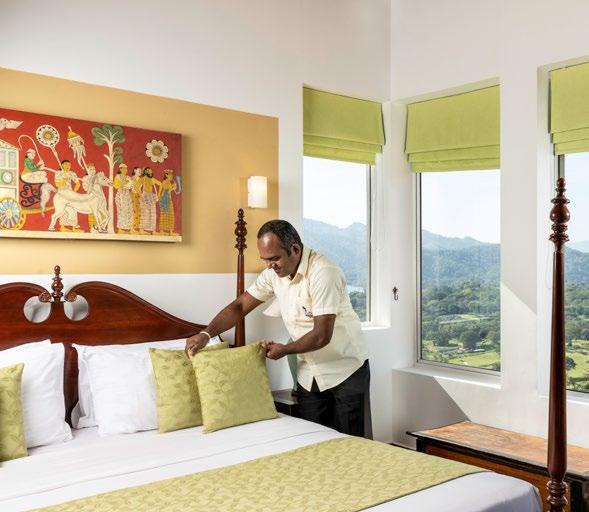
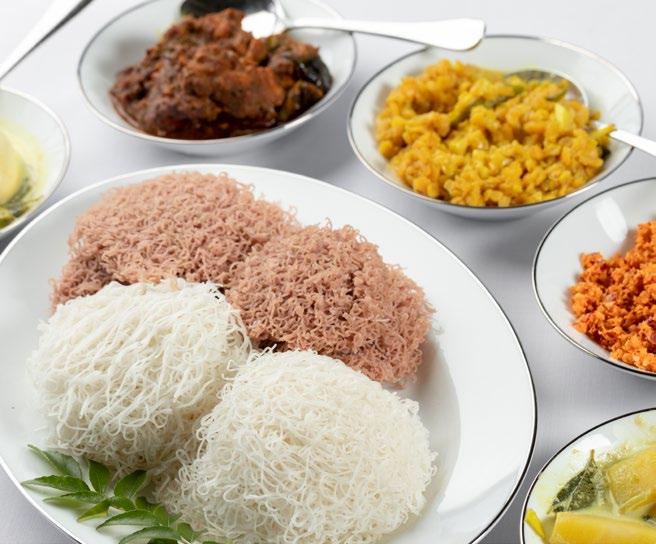
Which of The Clarks Group brands will be most aggressively developed over the coming years?
Well, I see a lot of potential with Luxury Boutique Villas, the upscale 5 Star Hotels and Resorts and of course Resorts that are close to nature & peaceful environments, Wild Life & National Parks and that surround

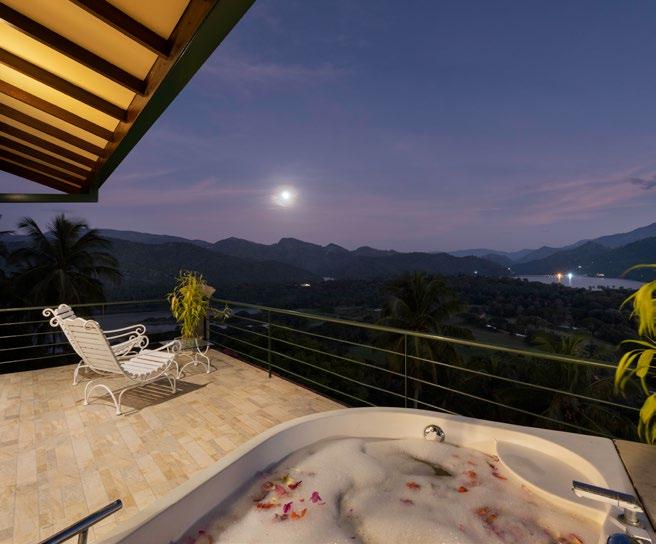
hills and even snow-capped Mountains that also add to the Safari Brand.
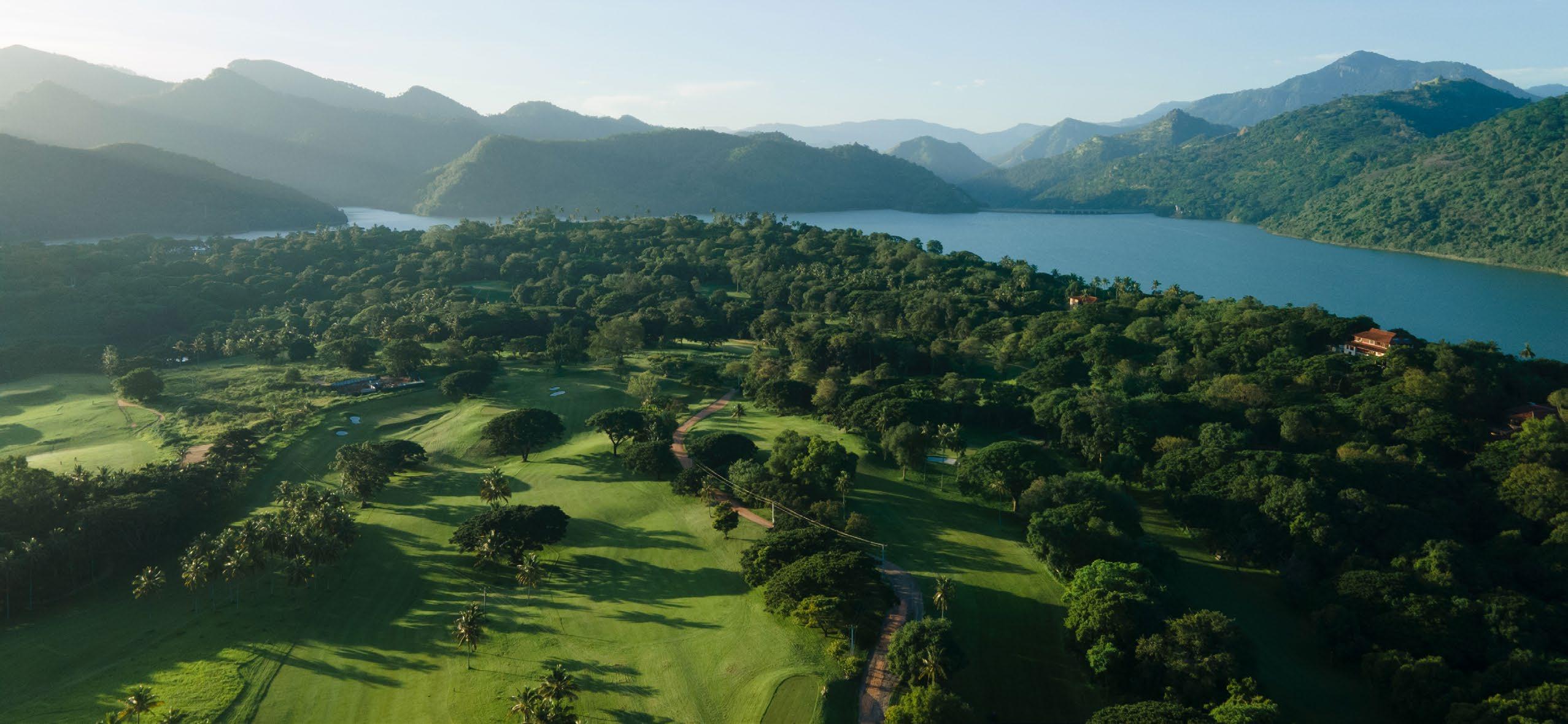
What is the target of The Clarks Group when it comes to the new openings during 2023?
With around 2 to 3 properties being opened in India on a monthly basis in the next few months, we are looking at opening at least about 12 Hotels & Resorts internationally under the Clarks Brand in 2023.
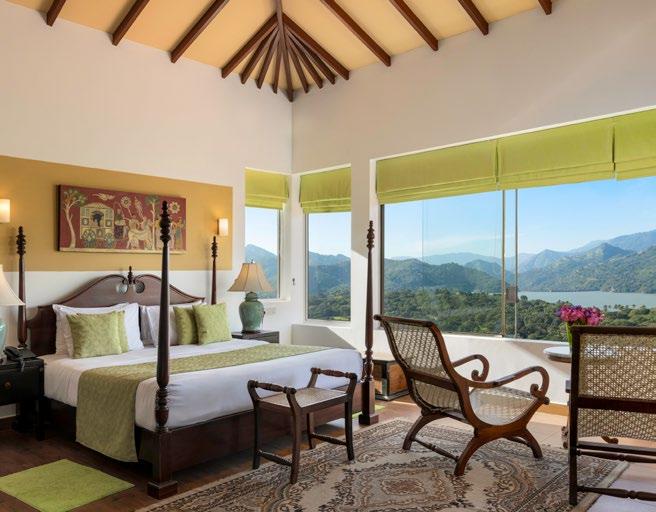
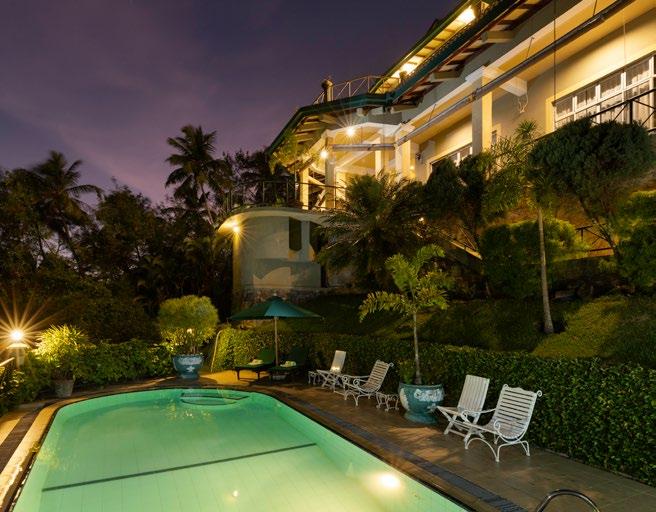
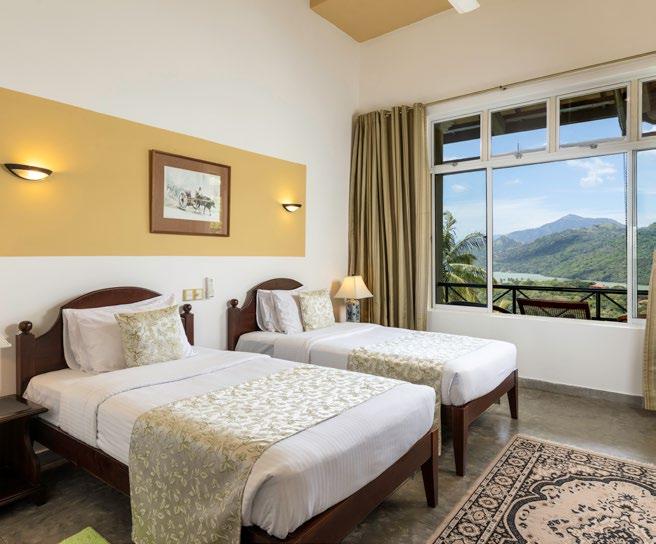
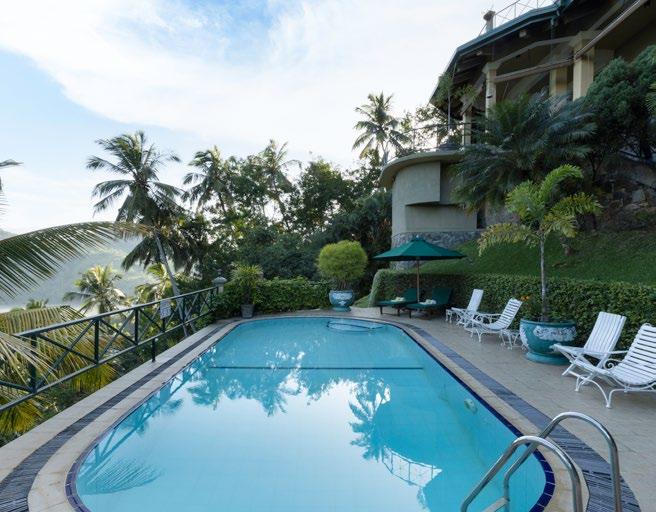
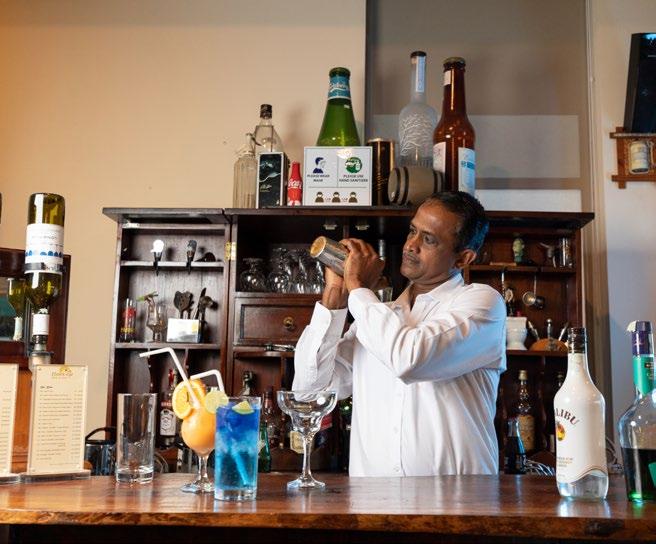
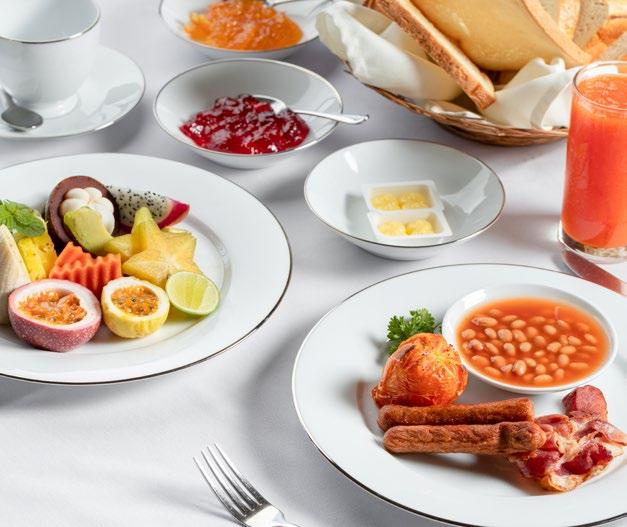
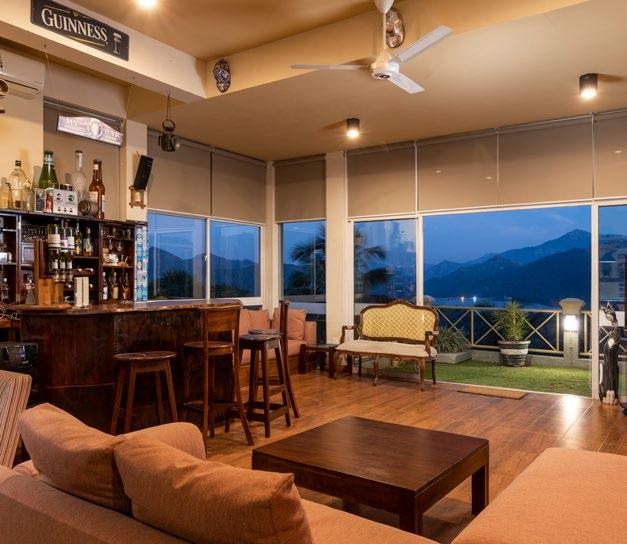

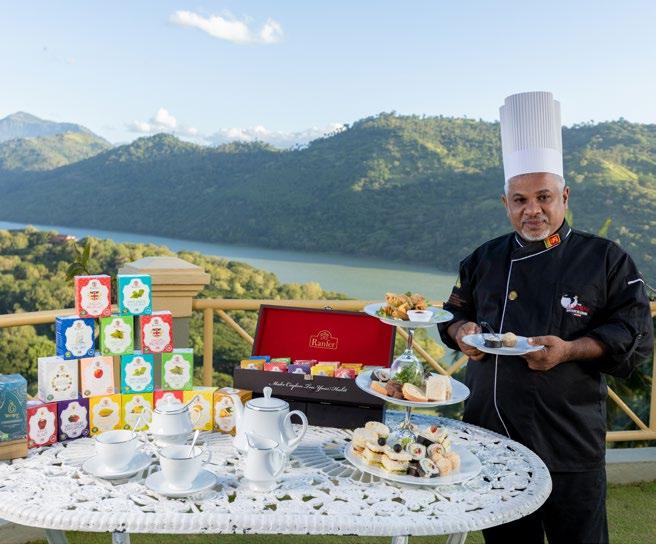
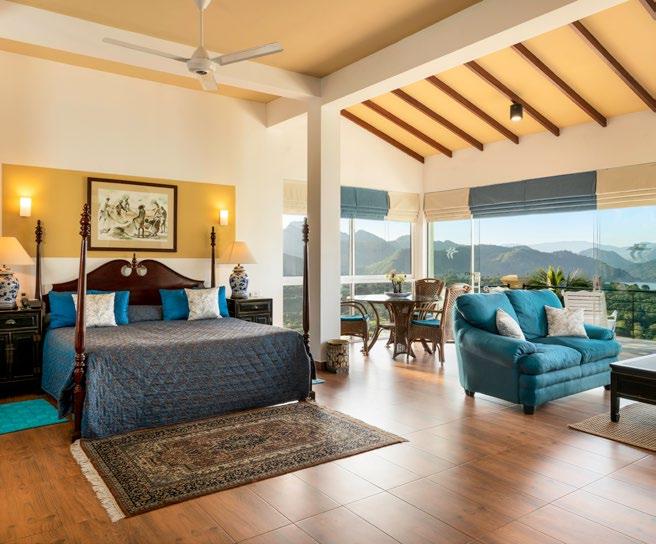
The Clarks Group is ambitious towards the Balkans’ growth strategy – can you unveil something more about it? We see a great opportunity to enter this market as the region intends to increase the Hospitality & Tourism Sector in the next couple of years and has opened opportunities both for business and travelers... with Indian traveller’s looking for new destinations to travel and try new countries like Albania, Montenegro, Croatia, North Macedonia, Romania and the Mediterranean countries where there will be a tremendous influx of Indian travelers that will include many other Asian and Middle-Eastern travelers soon visiting these countries in the coming months… We also see that travelers from the Balkan countries also visiting India, Sri Lanka and The Maldives similarly.
What direction do you see the group’s hotel developments heading in over the next years?
As mentioned with The Clarks Vision - We are looking at Managing more properties internationally and strategic tie-ups and our plan over time is to also build the Clarks Presence significantly in multiple countries in key geographical areas. Indeed we are delighted and open to discuss your requirements thus building those win/win opportunities that we all strive for.
The Advisor of Albanian Prime Minister, Ms. Odeta Barbullushi, makes a summary of Albania from the diplomatic point of view during 2022 while shares her outlook for 2023. The renowned lady, otherwise known in the diplomatic slang as the “Sherpa” talked to TRAILBLAZING MAGAZINE about her experiences in the Rama government and the milestones she is contributing to.

Full interview below:
Ms. Barbullushi, thank you for accepting our request for this interview with TRAILBLAZING MAGAZINE!
Please can you make a brief introduction of yourself and what does your role entail?
What motivated you to enter public service?
I was invited by Prime Minister Rama to join the government in December 2014 as Deputy Minister of Foreign Affairs. As someone who had completed the graduate graduate studies and taught in the United Kingdom and had decided to return to Albania, I was keen to contribute to change and reform of my country. I was proud and happy to accept the Prime Minister’s invitation as I was very enthusiastic about the reform agenda and the reformist spirit
of the Prime Minister and his government, which had been sworn in the previous year. It was the start of a new professional path for me, as I was leaving academia and my scholarly career to embark on a highly political and policy-making role. In retrospect, I think it has been an incredible and very rewarding journey, both at the professional and personal level. In the past two mandates and a half, Albania has become a factor to reckon with in all the regional dynamics and processes, it has succeeded in using its leverage to advance the rights of Albanian communities in the region, and it has contributed significantly to European security, at times, punching above its weight. It has forged new partnerships and strengthened existing ones, like the partnership with the USA and of course, with the EU. Through its government-togovernment platforms, launched initially
with Kosova and then extended to the other countries of the region, it has deepened bilateral and regional cooperation across different dimensions, political, economic and on the security front. In 2014, Albania had just received the status of EU candidate country. Today, it has started accession negotiations, after a comprehensive and groundbreaking judiciary reform. I am glad I have been part of this journey.
How did your career evolve through the years and what kind of learning environment fostered you? How was your transition from working in the Ministry of Foreign Affairs to your current role – was it difficult to adjust to a new pace and intensity?
During the past 8 1/5 years and in different capacities, my work has focused on relations with EU institutions and EU member states, EU accession path as well as the region and regional cooperation. In both these two areas, Albania and Albanian diplomacy has made significant progress. In the region, in particular, Albania has taken up not just a proactive role regarding policy agenda, but also it has acted as the beacon of constructive diplomacy and dialogue. We have been at the forefront of regional cooperation initiatives and of deepening cooperation with a view to

bring positive results to the citizens and bring the region closer to the EU, politically, economically and institutionally.
Having involved in these two key portfolios, my work dynamic has been extremely intense but also rewarding. Working for the Prime Minister demands that one needs to constantly keep up the pace, stay put, and be on top of one’s brief.
How would you describe 2022 from a diplomatic point of view? What were your proudest moments working for the Rama government?
I think 2022 was a very significant year for the role and international reputation of Albania. I would underline three particularly important

Albania has become a factor to reckon with in all the regional dynamics and processes, it has succeeded in using its leverage to advance the rights of Albanian communities in the region
moments during the year: taking up the non-permanent seat at the UN Security Council in January 2022, the opening of the EU accession negotiations in July and the organization of the first ever EU-Western Balkans Summit organized outside the EU in December. These three moments capture the enhanced role of Albania in relation to regional and European security as well as the vibrancy of its multilateral diplomacy.
After two years of delays on the part of the EU, Albania finally took the green light to start the EU membership talks. How did you experience this moment and how significant is this for Albania and its people? Indeed, it was a long due moment which was constantly deferred and delayed, for reasons which had little to do with Albania and the fulfilling of condition set out by the European Commission. The decision to open negotiations was taken by the EU member states, namely the EU Council in March
2020 and yet it took another two years for this political decision to be materialized. We were grouped together with North Macedonia, and the latter went through considerable pains with its neighbors to come to the negotiations table with the EU. We know the story already. But it is important that now the process has started. In the past few months we have seen that the EU has enhanced dramatically its presence in the region, something which was most vividly demonstrated by the organization in Albania of the EU-Western Balkans Summit, then of the meeting of the Council of the Stabilization-Association Agreement again in each Western Balkans capital. The Council finally decided for the visa liberalization of Kosovo to start no later than January 2024 and Bosnia was granted the status of candidate county. It is important to build on this new momentum and accelerate not just with the bilateral accession process, but also with the
integration of the region in key policy areas of the Union as well as in the Union’s crisis response mechanisms.
In the drastically changed context of European security, Albania increased its active efforts for regional cooperation. Can you elaborate on that?
The current geopolitical context and the multiple security challenges created by the Russian war on Ukraine, has made the case for more, not less, regional cooperation. Admittedly, regional cooperation has always been a strong pillar of this government and we have tried, more than once, to bandwagon other countries in the region to work closer together.
Albania presented a very clear vision for the region, its break from the past as well as its economic development at the first Berlin Process Summit in 2014. That vision is still only partly fulfilled. The pandemics and then the war in Ukraine, alongside the


energy crisis that the war brought about, made regional cooperation even more urgent, as supply chains were interrupted and necessary supplies were (even if temporarily) stopped. Add inflation to this picture, plus the attempts of third powers to probe into the countries of the Western Balkans, and meddle with their security and domestic politics, and then you have a very uncertain and volatile picture of the region. Albania is aware of its role in the region, as a constructive, strong Atlanticist and reformist country. This is also the orientation of the Albanian communities in the region and they have contributed significantly in the democratization and Europeanization processes of the states in which they live.
It is therefore in Albania’s inherent interest that the entire region moves forward with the EU reform agenda, in building strong democratic institutions but also, at the same time, in raising the living standards and welfare of its citizens.
How do you see 2023 given the taking of the Summit of the Berlin Process by Albania, the continuation of the diplomatic activity as a member country of the UN Security Council as well as the increased cooperation with the EU?

2023 is definitely going to be a busy and exciting year. We have just returned from a successful bilateral visit in Berlin, where the focus of the talks between Prime Minister Rama an Chancellor Scholz was the objectives and priorities of the Albanian Chairmanship of the Berlin Process. We presented a solid and long-term vision for the region and regional cooperation as a stepping stone towards improving
convergence with the European Union and gradual integration or as we now call it for the ‘phasing-in’ of the region into the Single Market. The pandemics, and the security and economic challenges brought about by the war in Ukraine have broadened even further the gap between the region and the EU. There is obviously a widening convergence gap—or greater divergence— between the region and the rest of the continent, and the region still suffers from limited transportation, energy and digital connectivity. In addition, there are uncoordinated policies of labor mobility between the EU member states and the region, something which may contribute to increasing EU-oriented migration from
the region. Hence, we need to tackle this plethora of socio-economic challenges sooner rather than later.
It is indeed a great milestone that we have opened the accession negotiations with the EU. We have now completed the screening process for the most important chapters cluster, which includes fundamental rights, rule of law and the judiciary and which reflects the key pillars of the EU reform agenda of the governments. Sitting at the negotiating table is key to guaranteeing the resilience of the new institutions but it also marks the beginning a learning process for our public administration and our institutions, in the duration of which we will
see a transfer of knowledge and expertise, a process of socialization and what we call of ‘Europeanization’ of public policies. That is where the hope and promise of the transformative impact of the process lies.
Lastly, we will continue our active multi-lateral diplomatic action, most prominently in the context of our non-permanent seat the UNSC. I do not expect challenges of security of last year to go away. On the contrary: The war does not seem like it is approaching the end. In these circumstances, the EU and NATO must work closer together; in this vein, the countries of the region must, too, cooperate more and build resiliency vis-a-vis influence of other powers.

Equality is considered to be part of every citizen’s life in Finland from the very beginning. Every child has access to early childhood care and education. This is considered important, not only to help children get an equal start and opportunities early in life, but also for both parents to have equal possibilities to participate in working life. Every child has the possibility to attend the nearest school to his/her home. All education in Finnish or Swedish languages, from preschool to universities, is free of charge. Grandparents may still work themselves or live faraway in a different city so they might not be available to help taking care of their grandchildren.
The success of Finland as a country is considered to be linked to equality between
men and women. The share of female business leaders, politicians and decision makers is among the highest in the world. The present Finnish government has 11 female ministers (of total 19 ministers), including prime minister, In early childhood care and education, it is important to promote the joy of learning through play and social interaction. That way it is easier to keep that joy alive through all levels of education. Different kinds of indoor and outdoor physical activities are integrated into the school day and they often continue in the afternoon as after-school activities. That has increased the satisfaction of children in basic education.
Teachers play an important role in the learning process. Finnish teachers are highly educated, skilled, motivated and have professional autonomy. They are encouraged to create, experiment and mainstream new pedagogies and new learning environments. A Master’s degree is required for teachers on both primary and secondary levels, and teacher education includes teaching practice. That makes it possible for schools to focus on creating a motivating environment in the classroom, and to support those who need it.

In order all children to have equal opportunities, schools have the obligation to organize individually tailored support for special needs students, as soon as the need arises. This kind of teaching may be organized in small groups and as one-to-one guidance.
The basic philosophy of the Finnish system is that education provided should be of high

quality taking into account the latest developments in each sector. Learning environments should encourage innovation, make room for creativity and allow every individual to flourish.
Since the world is changing rapidly, the role of education is more important than ever. There are certain skills, like problem solving, critical thinking and communication that we all need to develop from time to time. Finland is applying new learning environments and methods to meet those needs of its working force. Education is a vital cornerstone of economic competitiveness of a country in order to provide younger and more mature citizens the competencies and skills required in society and working life today. Since the world is changing continuously, the education system must be fit to respond to people’s lifelong need for upskilling and reskilling. Finland has made it possible to combine work and studies in order to make it easier to participate in lifelong learning programs.
is a dynamic part of continuous learning, and it is a popular and attractive pathway in Finland - chosen by roughly half of all upper secondary students. VET is developed and delivered in close cooperation with industries, private sector and other job providers. The Finnish VET emphasizes broad-based competences, flexible study paths, recognition of prior learning and work-based learning. Due to lifelong learning possibilities, the Finnish classes are a mixture


of young and adult students and the system suits also those with academic background.
Finland has achieved excellent learning results by investing in education. This does not mean that further efforts would not be necessary. Finnish political parties made recently an important decision in the parliament to increase the financial resources available for research and development to 4 % of GDP by 2030. Purpose of this decision is to have enough well educated researchers and innovators in Finland in order to have business success stories also in the future. A multiannual plan will be drafted for this purpose so that it will implemented by different governments in the future.
What is the secret behind the good results of Finnish pupils in OECD measurement of knowledge and skills?Isohella/Finland Promotion Board (FPB) Photo/Supperi Children receive a healthy lunch at school for free Markkanen/FPB

The triple global crisis of climate change, biodiversity loss, and pollution is addressed by several international initiatives among which are Agenda 2030 and its 17 Sustainable Development Goals (SDGs)a call for action from the United Nations. The Sustainable Development Cooperation Framework between the Government of Albania and the UN includes sustainable, resilient, and green economic growth and resource management as one of its three strategic priorities.

Since Albania and the European Commission opened accession negotiations in July 2022, integration into the European Union (EU) is considered one of the most important ways of achieving sustainable economic growth in Albania. The European Green Agenda for the Western Balkans (SWD/2020/223) calls for adoption of circular economy approaches to reduce resource use to save production costs, reduce waste, air, water and soil pollution and improve conditions for the workforce; create sustainable food
systems and more prosperous rural areas; decarbonize the energy supply, and protect and restore ecosystems. To achieve these objectives and to securely anchor Albania onto an inclusive, sustainable, green growth and prosperity path, concrete plans, implementation mechanisms and reforms are needed.
A thriving industrial sector is crucial to the development of a modern economy as it presents complementary social and environmental benefits in addition to its direct impact on economic growth. The manufacturing sector drives economic growth with its strong linkages to agriculture, services and trade, boosts productivity, innovation, and technological advances; and with adoption of resource efficient and clean production systems, protects nature and creates green jobs, overall significantly contributing to the wellbeing of society. As a result, the central role of inclusive and sustainable industrialisation in development has taken its place in the 2030 Agenda with SDG 9

“The experience of the United Nations Industrial Development Organization (UNIDO) proves that inclusive and sustainable industrialization contributes to decoupling growth from environmental damage.”
By N. Tas, Senior Adviser to the Director and T. Chernyavskaya, Industrial Development Expert, Division of Circular Economy and Environmental Protection, UNIDO
The experience of the United Nations Industrial Development Organization (UNIDO) proves that inclusive and sustainable industrialization contributes to decoupling growth from environmental damage. Resource efficient and circular business practices increase productivity, while decreasing CO2 emissions and consumption of energy, materials and water per unit of manufacturing value added. Deployment of digital tools (sensors, AI, etc.) that are less expensive and more accessible now can further improve productivity.
A green energy transition is a must to address about half of carbon emissions. UNIDO’s Global Green Hydrogen Programme and Partnership2 promotes green hydrogen to support inclusive and sustainable industrial development and commitments under the Paris Agreement.
Just transitions to green energies and circular economies are like the two sides of the same coin. The other half3 of carbon emissions and 90 percent of land-related biodiversity loss4 are due to resource use in products we all consume to satisfy our
societal needs: from nutrition to housing, infrastructure, mobility, transport, consumer and capital goods, communications, and all other services.
Wasting a product, part or material that can be reused, repaired, refurbished, remanufactured, recycled many times over or regenerated in nature creates huge economic losses, in addition to adverse environmental and health impacts.
UNIDO describes circular economy as an industrial economy that returns products, parts and materials into use several times by designing products to last; maintaining value of products, parts and materials in the economy for as long as possible; minimizing generation of waste and pollution; and using renewable energy along value chains (Fig.1).

Industries, firms that improve resource efficiency and implement circular economy practices produce sustainable and circular products, save costs, improve their competitiveness and resilience, and create decent jobs, while safeguarding the environment. UNIDO’s resource efficient and cleaner production (RECP) and transfer of environmentally sound technology (TEST) programs that span the globe since 1994 provide ample evidence of these cobenefits.
In Indonesia5, 149 SMEs save US$19.6 million per year, by reducing 350 thousand tons of GHG emissions, 2.6 million m3 of water and reduce 2.2 million m3 wastewater emissions annually. In eight Southern Mediterranean countries6, in a TEST program, 125 SMEs save 41.7 million Euro per year, with environmental benefits. UNIDO’s Global Eco-Industrial Parks Programme (GEIPP) targets existing industrial parks. GEIPP supports park level

tenant SMEs in individual and joint circularity actions7 and helps create economic, social and environmental benefits. Albania is not a newcomer to industrial resource efficiency, with some industries having already implemented measures in the olive oil sector8 with UNIDO assistance.
National Governments play a crucial role by encouraging and stimulating the adoption of circular economy approaches that would lead to higher resource efficiency and less waste as demonstrated by members of the Global Alliance on Circular Economy and Resource Efficiency (GACERE)9 The SDG Agenda in turn includes many related ambitions.
In 2021, annual GDP growth rate in Albania was 8.5 percent10, mostly based on the performance of the private sector. Industry generated 21.82 percent of Albanian GDP11 in the same year, despite two heavy shocks with devastating consequences: the earthquake in November 2019 followed by the Covid-19 pandemic starting from early 2020. Furthermore, industry continues to employ 20% of the total workforce in stable
and high-quality jobs in the country. The World Bank expects economic activity to expand at an average of by 2.7 percent through 202412.
Integration into the European market and start of accession negotiations are expected to have positive impacts on improving the competitiveness of the Albanian economy. Greening the economy by encouraging productive and circular industries to join regional and global supply chains will not only boost economic growth but also enhance well-being of the Albanian people.
1 https://iap.unido.org/articles/why-industrialdevelopment-matters-now-more-ever
2 https://www.unido.org/green-hydrogen
3 Global Resources Outlook, International Resource Panel, 2019
4 IRP (2019)
5 https://www.unido.org/sites/default/files/files/2020-11/INS100224_RECP_TE-2019.pdf (Terminal Evaluation, 2020).
6 https://www.unido.org/annualreport2019
7 https://hub.unido.org/about-eco-industrial-parks
8 https://open.unido.org/projects/AL/projects/120536
9 https://www.youtube.com/watch?v=OYgasG8UWWo
10 https://data.worldbank.org/country/albania
11 https://www.statista.com/statistics/444090/albaniagdp-distribution-across-economic-sectors/#:~:text=In%20 2021%2C%20agriculture%20contributed%20 around,percent%20from%20the%20services%20sector
12 https://www.worldbank.org/en/country/albania/ overview#3
The Albanian Investment Development Agency focuses on increasing competitiveness and promoting Albanian Micro, Small and Medium Enterprises (MSME). In this approach, and especially during the period of the COVID-19 pandemic, AIDA has undertaken the “Made in Albania” campaign. This campaign is aimed at promoting and increasing the presence of Albanian businesses in international markets, as well as creating connections and cooperation opportunities with foreign businesses, to help increase their dimensions at the international level.
The campaign was seen as a necessary initiative for Albania, for strengthening the local brand, as well as Albanian production enterprises. Through this campaign, we identify the domestic products and create a significant presentation for the business, which the institution promote on social networks.
In support of this initiative, AIDA every year also publishes a summary catalog of Albanian products published during that annual period. Through the catalog, all “Made in Albania” products become known and presented, as a way to give the possibility of contacting companies directly. This catalog is published in two languages, both Albanian and English, which is distributed to institutions, organizations, foreign and Albanian embassies abroad, which plays an active and concrete role in promoting the international market and supporting the promotion of the export of domestic products.
It is essential to continue promoting the development of enterprises, especially MSMEs, to make them
more internationally known and to promote and facilitate the export of “Made in Albania” products.
The “Made in Albania” campaign started in 2020 and due to its importance, referring to the requests from the companies themselves, AIDA will continue to implement it in the following years in order to further promote Albanian products.
The campaign has managed to provide feedback, where some of the companies have had an increase in requests for their products and more recognition as a company, where clients have managed to identify and contact them from the promotion that the agency has done on social networks,
To familiarize yourself with “Made in Albania” products, visit the website: https://aida.gov. al/en/news-publications/publications where you will find all the catalogs published with Albanian products.






For more than 20 years, we continue to build on a legacy of superior quality wines with a focus on Sheshi I Bardhe and Kallmet, autochthonous varieties.
By Rudina Hoxha & Jose Pinto“Considering the high interest shown for the products ‘Made in Albania’, I strongly believe this visit will pave the way to the establishment of economic and commercial cooperation between Albania and Japan,” Rigers Kaçorri, Winemaker at Kantina ARBËRI told TRAILBLAZING MAGAZINE back from his visit in Japan.

He was part of the visit of Albanian Prime Minister, Mr. Edi Rama in Japan.
In this interview, Kaçorri describes the “Japanese experience” while shares the learnings from Japanese wine culture and highlights all about ARBËRI.
“During the 5-day visit, we had the chance to meet and discuss with different interested stakeholders in the winery sector. I had the chance not only to talk to potential exporters but also to show them how our products taste while listening to comments from Japanese wine experts,” Kaçorri said adding that ARBËRI Winery is currently negotiating with some potential exporters to Japan.
Full interview below:
Recently all the eyes were on you as part of the visit of Albanian Prime Minister, Mr. Edi Rama in Japan. As a wine producer, how would you describe this “Japan experience”? What are the learnings you gained?

Visiting Japan, was definitely a unique experience for me as a wine producer. I was surprised to hear many compliments from professional sommeliers of the Japan Sommelier Association and oenologists who didn’t hesitate to share their comments on the quality of Albanian wines and brandy.
I found that wine is not a part of daily life for most Japanese people, but there is a
significant wine culture that spans formal dining to casual drinking. Japan is Asia’s second-largest wine-consuming nation and 6th largest importer worldwide. Considering the high interest shown for the products ‘Made in Albania’, I strongly believe this visit will pave the way to the establishment of economic and commercial cooperation between Albania and Japan.
In your view, what is the value of Japanese wine’s value? Has it impacted you and your company ‘Arberi” at all? How would you embody them into your work?
Japanese wine is produced in certain regions, such as Yamanashi and is mostly intended for domestic use. Several limitations such as the terrain, soil composition, and especially climate conditions altogether make Japan unsuitable for viticulture. The most common grape varietals that are grown include old-world Cabernet Sauvignon and Merlot, however recently Koshu, a native pink-skinned grape to Japan has been gaining ground as a popular alternative to foreign varieties. It yields dry and semi-dry white wines with fresh, citrus notes, which approximate the flavour of our product, Sheshi i Bardhe Wine. On top of that, Japan has followed a well-worn path from the classic wines of France to other European regions, and to the New World which I
perceived as an invitation to discover unearthed wines and consider it a potential market to export Arbëri wine.
While deliberating with the experts in the wine sector, We shared some similar thoughts about the importance of getting adapted in new global markets with products that represent authenticity. Building on this mission, Arbëri Winery is committed to rejuvenating the old tradition of wine production with native varieties.
Have you reached deals with any various Japanese wineries?
During the 5-day visit, we had the chance to meet and discuss with different interested stakeholders in the winery sector. I had the chance not only to talk to potential exporters but also to show them how our products taste while listening to comments from Japanese wine experts.


This visit was the best way to exchange business cards and build reliable
communication between the wine producers and exporters. Currently speaking Arbëri winery is negotiating with some potential exporters to Japan which hopefully will be concluded in deals.
Can you explain what sets ‘Arberi apart from other wine producers? What traditions do you build on with ‘Arberi’?
For more than 20 years, we continue to build on a legacy of superior quality wines with a focus on Sheshi I Bardhe and Kallmet, autochthonous varieties. At the heart of our success is a deep commitment to forwardlooking sustainable practices, combined with constant reinvestment in vineyards, state-ofthe-art facilities, and artisanal winemaking.
Obviously producing such high-quality wine consistently is a difficult task – how do you make sure that each batch is of sufficient quality?
Arberi Winery has a long tradition of producing wine and our unique philosophy to fanatically protect and rejuvenate the

autochthonous grape varieties has helped us be disciplined, and focused to improve the quality over the years. Arbëri Winery has built well-structured teams who follow rigid international protocols during the stages of winemaking (harvesting, crushing and pressing, fermentation, clarification, aging and bottling) for maintaining a highquality end product. We also collaborate with experts from different fields such as environmentalists, biologists, and Oenologists who continuously advise us on how to sustainably grow the grapes and what protocols to follow during different stages of fermentation. Such collaboration combined with the technology we apply is the formula to maintain and offer sustainable highquality wine to our customers.
What are your best sellers, key wines in the portfolio and how do you see the growth of your business? Is 2023 going to be a good harvest?
According to Statista Market forecast1 the Wine segment in Albania is projected to grow by 2027 -2023 ) %5.10). To support such a forecast, we all have witnessed the attention given by the government toward the development of Agriculture and the European Union-funded assistance programme for strengthening this sector, which seems like a commitment to make this sector with the greatest potential in Albania.
If the Agriculture sector continues to receive due attention from the government stakeholders (providing subsidies, signing trade agreements, etc), I am optimistic to predict the growth of my business.
Directing the focus to past performance, Arbëri Winery products have a positive increasing trend in sales, marking as the www.statista.com/outlook/cmo/alcoholic-drinks/wine/albania

best seller the Kallmet Klasik Wine. Another key wine in our repertoire is Kallmet Reserva, which amounts to some best vintage years: 2007, 2010, 2012, and 2015.
I am afraid I cannot give a definite answer about the 2023 harvesting performance as we are unsure whether the climate conditions will alter the grapevine’s quality and our vineyard management practice. In our language, wineries are considered ‘A house without a roof’, hence the quality of the grape is immensely dependent on the temperatures which lastly has affected the ripening duration of the grape and prolonged the harvesting season time. Indeed, this is a recent global challenge which asks for immediate solutions.
 By Elisa Sallaku
By Elisa Sallaku
Referring to a report by the Secretary General of the United Nations, women constitute 50% of human resources. Women are the key to sustainable development and quality of life in the family as a wife, family income managers, and last but not least important as mothers.
Apart from it, woman plays a key role in the socioeconomic development of society.
Women are the source of power and a symbol of progress.
But how did the role of women in hospitality start?
Early Hospitality starts In 15,000 B.C. at Lascaux cave in France which was the first shelter in history that provably accommodated people of different tribes.
Women had skills such as preparing stones to grind nuts and seeds, sewing
to make clothes and accessories and preparing food for all people at Lascaux’s cave.
The division of duties between men and women was a great advantage. They always accommodated people and they lived at higher population densities. The big female roles, craftsmanship, and intensive skills allowed the people of Lascaux Cave to take advantage of a variety of food sources, life, and hospitality.
Archaeologist Dean Snow analyzed hand stencils found in cave sites and by comparing the relative lengths of certain fingers, determined that three-quarters of the handprints were female. So women also made most of the oldest-known cave art paintings.
Later in Ancient Greece and Rome, spas and bathhouses often provided sleeping facilities and were popular attractions for those seeking rest and relaxation. Women
were an important part of the activities and culture that took place within the spas and bathhouses. Women were responsible for spinning and weaving yarn to make clothes, the preparation of aromatic oils, and essences for relaxation in these spas. The clothes that women wore to the baths were similar to modern standards of spas today.


The ancient Romans traveled by chariot, boat, cart, and on foot. In Europe, cloisters and abbeys provided free accommodation to travelers. It was considered the duty of the Christians to offer hospitality to travelers and pilgrims. The nuns provided food for weary travelers and the best possible hospitality.
Very well-to-do families often employed more than one woman for housekeeping. The housekeeper would be at the top of the hierarchy and oversee other employees. The production of goods such as soap, candles, and other detergents was also considered their duty.




After the Industrial Revolution, women began to work also in different factories showing their ability to adapt and learn new skills.
Women today are more conscious, informed, and career-oriented. Nowadays around 60-70% of workers in the hospitality sector are women, and a part of them occupy managerial posts. The study conducted by Peterson Institute for International Economics reviewed data from 22,000 companies in 91 countries and found that companies with at least 30% women in executive roles have the potential to increase their profit margins by 15% compared to companies with no female leadership.
The hospitality industry today holds more potential for women than ever before. What makes women special is that they are meticulous and more organized, more connected with the staff, with a strong attitude, flexible, smoother, more focused on details, and team workers.

It is the women who have sustained the growth of society and it is the women that are growing this sector more and more. It is undeniable that women have excelled in the hospitality sector all over the world.
Gradually, inns and guesthouses began to open on popular trade routes to provide lodging for traveling merchants and their horses. With the ability to keep the peace, make a fine meal, and even hand spin bed sheets and their reputation, there was a huge demand for women to run the booming number of inns and guesthouses. Women played a key role in this social shift with a job as an innkeeper.
“I developed good work with marketing during my internships in Le Meridien and Renaissance hotels.”
A young hotelier with a great passion and love for hospitality. This is the best description for the Brazilian, Rafael Esteves Tabajara who recently descended in Albania together with his own family.
Speaking French, English, Portuguese and Spanish, Rafael is looking for great opportunities to work in the hospitality sector of Albania which, he thinks, is a wonderful country with a great potential for tourism.


“Albania is becoming an important touristic destination. It would be crucial for my career to follow and to experience the response and strategies that hotels give to the growth of tourism in Albania, helping me to develop fundamental work with the new 5-star hotels and resorts being established all over the country,” he told TRAILBLAZING MAGAZINE.
Thanks to his parents, who gave him the opportunity to live in many countries and to experience their different ways of living, he is so interested to work in hospitality nowadays.
Full interview below:
Please can you make an introduction of yourself and why did you choose to study tourism?
France, Malaysia, Czech Republic, Angola and Bangladesh. And so, I learned to speak languages such as French, English, Portuguese and Spanish. As I like to travel around the world, the contact with people from many different nationalities and cultures made me choose to study tourism and hospitality.
What is your vision in terms of enhancing your experiences with hospitality and tourism?
I believe that knowing better for the customer is the key to develop for them a better service in hospitality. The guest is the essence and the center of the hotel business. We should focus on him.
Can Albania offer you an additional hospitality asset for your career? What are your expectations?
Albania is becoming an important touristic destination. It would be crucial for my
“I enjoy a lot interacting with people, since I am a good observer. Furthermore, I like to create a nice atmosphere around me in order to have a better connection with guests.”
My name is Rafael Esteves Tabajara. Although I was born in Brussels, where my father was working as diplomat of the Brazilian Mission to the European Union, I’m a Brazilian citizen and I lived in many different countries like Brazil,
career to follow and to experience the response and strategies that hotels give to the growth of tourism in Albania, helping me to develop fundamental work with the new 5-star hotels and resorts being established all over the country.


What are your first impressions about Albania?
Albania is a wonderful country with great potential for tourism. The mountains, the beaches, lakes, the food, the wines and the Albanian culture and traditions. The warm way the Albanian people welcomes foreigners is a plus for tourists satisfaction.
What areas of hospitality you feel skilled of?
The reception of guests and assisting them in their needs so that they can have a better and satisfactory experience in the hotel. I also developed good work with marketing during my internships in Le Meridien and Renaissance hotels. I enjoy a lot interacting with people, since I am a good observer. Furthermore, I like to create a nice atmosphere around me in order to have a better connection with guests.
What are your hobbies and other interests?
Martial arts, music, hiking and gym.
How important has been your family in your so far journey?
They’ve been very important for me. I learned very much with my family on how to deal with life and especially how to relate to people. My parents also gave me the opportunity to live in many countries and to experience their different ways of living. All this led me to have interest in working with hospitality.

Meet us, Joan and Xhoel Leka, Certified Brand Strategist and Marketing Expert by HubSpot, Google, and Adobe, which in recent years have collaborated with numerous teams and experts in fields that involve blockchain, web3, metaverse, and crypto. In the past few years, we have been a part and managed teams with an allocated marketing budget of over 1 million euros yearly, as well as proven ourselves in multiple industries, which made us value the basics and helped us appreciate the importance of a clear and effective storytelling structure.

But let’s dive deeper into our creative journey.
Coming from a family deeply involved in the artistic scene, mainly in literary art, we inherited the importance of storytelling, which later became the foundation of our daily work. As alumni of “Darmstadt University of Applied Sciences” in “Leadership in the Creative Industries”, we concluded our masters focusing on what the future of Branding and Marketing will look like, empowered by the use of new technologies.
We have been lucky to collaborate with many companies and clients in Europe and all over the world to develop their brands. But what draws people to certain brands? Is it their product, or is there a secret matter? People are not attracted to companies. They become obsessed with personalities. Understanding the psychology of how our brains function and incorporating that knowledge into our campaigns or strategies is what propels us forward. We discuss the art of branding and marketing, what has changed thanks to the emergence of new technologies, and how the new possibilities offered by the Internet of Things (IoT) will
affect different industries in the near future.
With the power of storytelling, you can simplify these complex concepts and make it absorbable for the general public.
Can you mention some of the main projects you’ve been involved in?
Being a part of various industries led us to an interesting finding. It is possible to apply the same storytelling principles to build brands and define markets regardless of the industry or the complexity of the topic. Both of us are currently involved in developing stories and marketing activities related to the adoption of blockchain by raising awareness of its real-life use cases, as well as in the Self-Sovereign Identity (SSI) sphere.
We work at Spherity, a leading provider of Decentralized Identities, Digital Wallets, and Credentialing Solutions. There are so many things to learn at Spherity, and the willingness to share knowledge is impeccable. One of our main offerings is called CARO, Spherity’s Credentialing Solution which enables the underlying technology to ensure customer compliance with the upcoming requirements for the Drug Supply Chain Security Act (DSCSA). To reach those decision makers affected by these regulations by November 2023, it is necessary to build a solid brand, spread awareness about the solution and explain how vital this solution is in the pharmaceutical supply chain.
In the past few years, we have also been engaged in a project related to a blockchain ecosystem and a cryptocurrency for the life sciences. To establish an online and offline presence, we had to refine the foundations, as well as promote the ecosystem through
various media, such as online advertising, virtual and physical events, newspapers, magazines, radio, and other forms of marketing. The ecosystem reacted immediately to our applied marketing strategy, where it grew exponentially, and in only six months, the number of members surged from 70k to 750k, surpassing all our forecasts.
We want to be a part of this ‘movement’ where the foundations are being set. Our passion for the future and innovation in new industries motivated us to build them and shape their presence, marketing, and future.”
What has been its impact in these 3 years?
The past three years have been an exciting ride. We have always teamed up, whether on purpose or by chance. Understanding the significance of the above topics and how they will affect our future is what drives us forward as professionals. At the same time, being able to translate these complex topics into something more digestible for a larger audience is fascinating and challenging. We now know that working together between humans and computers (artificial intelligence) has amazing benefits for both the present and the future.
“People do things for “their” reasons, not ours. To find their reasons.” - Dale Carnegie
The pandemic definitely set new standards in every way we see and perceive the world. And also it shaped us differently as professionals. Starting from the way we communicate and look at others, to the way we consume content, adapt to technologies, and more. But more interestingly, it developed a new way of empathizing with digital solutions. It was time for humanity to take another big step forward in technological adoption, and the pandemic was the catalyst needed to accelerate the process. Some things, however, did not change, regardless of the massive changes, the global society went through. We still connect with people
because of emotions and do the same with brands. Regardless of how small a piece may be, brands represent a piece of ourselves, of who we are or want to be. And this unconscious reflection is what we as marketers and storytellers value the most.
Even though we have chosen to focus on developing our expertise in another region, such as the larger European market, we might find ways to push those skills into the local Albanian market, and even into the Balkans. In a developing country like Albania, there is a need to not only grow financially and technologically, but also develop a storytelling experience around the country, and that has unfortunately not succeeded by far. Nation branding is a task of the highest importance. And that is just the first step to establishing the foundations of an Albanian identity that will transcend regional, national, and even global markets.
There is a thin line between creativity and technology at this moment of time, and with the adoption of these new technologies such as blockchain, metaverse, Web 3.0, and more, Albania has to absorb the necessary knowledge and try to stay at the forefront with all its talented individuals. This will not only open new markets for Albania’s ecosystem, which currently seems to be stuck in a closed loop, but will introduce a new way of thinking so young people can explore how to merge their creativity with technology, and also develop their passion for various fields of interest.


My kitchen is my laboratory where I experiment with the mixture of colours, flavours and aromas of the ingredients. Traditional Brazilian food is a delicious melting pot of colours, customs and diversity.
The Spouse of Brazilian Ambassador, Mrs. Sandra Esteves Tabajara sits with TRAILBLAZING MAGAZINE to shed light on the magical Brazilian cuisine and on her favorite recipes.


She opens her heart about her sensations as she cooks the special Brazilian dishes while she, as the wife of Ambassador of Brazil to Albania, H.E. João Tabajara Junior, confirms that she is keen to assist the Embassy to bring chefs from Brazil to organize food festivals.
“I’m keen to assist the Embassy to bring chefs from Brazil to organize food festivals in order to spread the beauty, the tastes, the colours and the variety of Brazilian cuisine in Albania,” Mrs. Tabajara said in this intriguing interview.
Full interview below:
What is cooking for you and what is so exciting, in your view, in the world of Brazilian cuisine?
Cooking in my point of view is Alchemy. My kitchen is my laboratory where I experiment
with the mixture of colours, flavours and aromas of the ingredients. Traditional Brazilian food is a delicious melting pot of colours, customs and diversity. Its
century, by indigenous peoples, by slaves brought from Africa, and as well as by other European, South American, and Asian immigrants, giving rise to delicious typical dishes known worldwide.


After the Independence, Brazil recruited immigrants to work in the coffee plantations
and to develop our agriculture. Nowadays, Brazil is home to the world’s largest community of Japanese descendants outside of Japan, numbering about 1.6 million people. There are around 9 million Lebanese descendants in Brazil. Brazil has the world’s largest population of Portuguese origin, greater than Portugal itself. Brazil has
also the largest number of Italians living outside Italy, around 30 million. After the USA, Brazil has the second-largest population of German descent outside of Germany, and here’s a surprising fact: the second most spoken language in Brazil is German. Brazil has become home to the largest number of Spanish settlers outside of Spain. This is not all. Brazil has also received settlers from
Austria, Switzerland, Netherlands, Poland, Syria and Ukraine.
European immigrants were accustomed to a wheat-based diet, and introduced wine, leafy vegetables, dairy products, sweets and preserves into Brazilian cuisine. When potatoes were not available, they discovered how to use the native sweet
manioc as a replacement. Enslaved Africans also had a role in developing Brazilian cuisine, especially in the coastal states, introducing palm oil and spicy chili in the Brazilian dishes.
Japanese immigrants brought most of the food items from the Asian cuisine and introduced large-scale aviaries. Italians brought their pizza, pasta, polenta, soup, grapes and red wine. The Germans brought beer, salted and smoked meats, sausages, potatoes, and white wine. The Portuguese brought bread, deserts, olive oil and their traditional salted cod fish. The Syrian and Lebanese food is popular in restaurants as well as in ordinary households, with dishes such as sfiha, hummus, kibbeh, tahine and tabbouleh.
“The most visible regional cuisines belong to the states of Minas Gerais and Bahia. Minas Gerais cuisine have European influence in delicacies such as dairy products, cheese buns and the Minas fresh cheese and “tropeiro beans”
buns and the Minas fresh cheese and “tropeiro beans”. The Bahian cuisine due to the African settlers brought delicacies such as “acarajé”, “abará” and “vatapá”.
What is your favorite recipe which you cook often?
My favorite one is the “feijoada”, which is considered the country’s national dish. It originated from the adaptation of Africans to the adverse conditions of slavery, who with black beans and leftover meat and the wisdom of African gastronomy, created this remarkable dish in our cuisine.
Can you share with our readers some typical Brazilian dishes?

The most visible regional cuisines belong to the states of Minas Gerais and Bahia. Minas Gerais cuisine have European influence in delicacies such as dairy products, cheese
Prawn “bobó”, tropeiro beans, vatapá, moqueca capixaba, polenta (from Italian cuisine) and acarajé (from African cuisine).
There is also caruru, which consists of okra, onion, dried shrimp, and toasted nuts
(peanuts or cashews), cooked with palm oil until a spread-like consistency is reached; moqueca baiana, consisting of slow-cooked fish in palm oil and coconut milk, tomatoes, bell peppers, onions, garlic, topped with cilantro, parsley and with a touch of malagueta chili. Pamonha made of corn and chicken rice with pequi.
Brazilian cuisine has been characterized by some unique ingredients. What is the most surprising or particular ingredient you’ve ever used?
Manioc (or cassava) whose flower is used for baking cakes, breads, “tapioca” and many other dishes. Also very special are the malagueta chili, the “dendê” oil (palm) and the pequi (a fruit from the mid-west Brazilian savanah).
As the Spouse of the Brazilian ambassador to Albania, how can you make Brazilian gastronomy become even more known in Albania and in the region? What is the major thing you want to teach the world about Brazilian food and your heritage?
I’m keen to assist the Embassy to bring chefs from Brazil to organize food festivals in order to spread the beauty, the tastes, the colours and the variety of Brazilian cuisine in Albania.

“Traditional Brazilian food is a delicious melting pot of colours, customs and diversity.”

10 incredibly exciting Italian startups to watch in 2023!

READ FULL ARTICLE HERE
Home to the globally pursued ‘dolce vita’, rich culinary heritage and culture in every corner, Italy is a beautiful country that attracts global attention. Not only does it welcome visitors who flock to enjoy the weather, food and historical gems, but, it is also welcoming growth in its startup ecosystem. Italy is the 4th largest economy in Europe and it’s a country that has brought innovation to European soils for centuries. Here we have the 10 super-promising Italian startups, all founded since 2020, that we believe have an exciting future ahead of them.
READ FULL ARTICLE HERE
Old stone houses line the banks of the Osumi River in Berat, enveloping visitors in the historical beauty…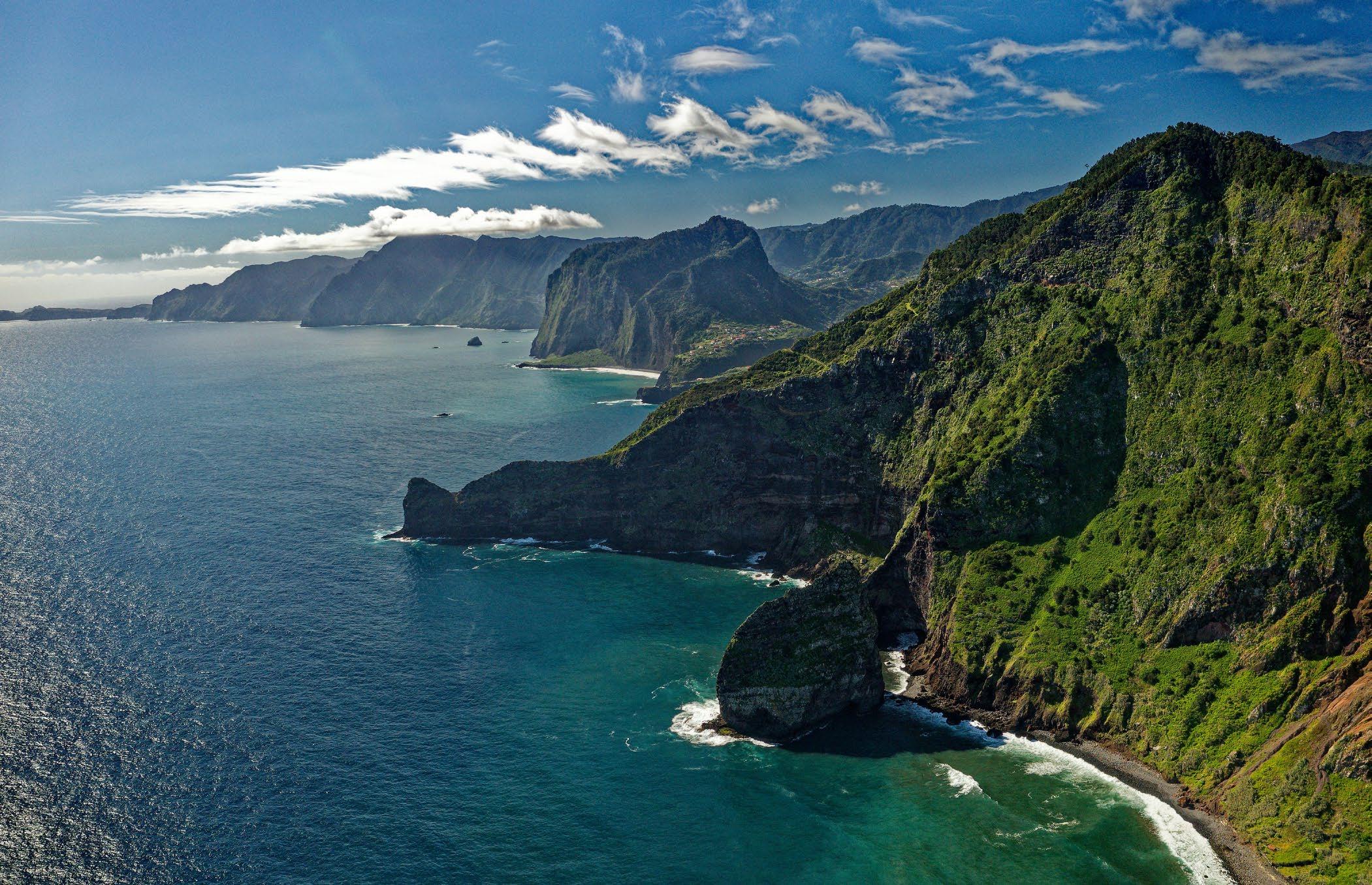
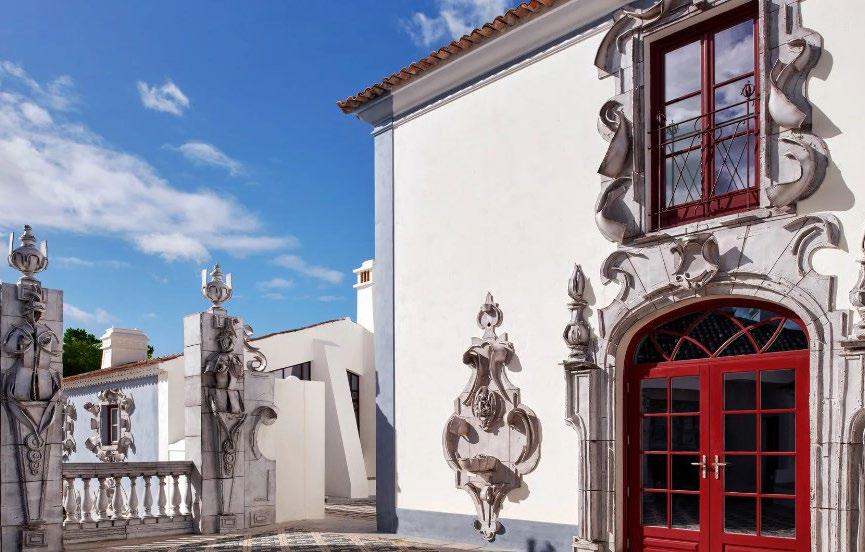 Twelve years ago, French shoe designer Christian Louboutin bought a holiday home in Melides, an agricultural community on the Atlantic coast, south of Lisbon. Everything was perfect, except this: “There was no…
Twelve years ago, French shoe designer Christian Louboutin bought a holiday home in Melides, an agricultural community on the Atlantic coast, south of Lisbon. Everything was perfect, except this: “There was no…
40 CONTAINERS ARRIVE IN MADEIRA FOR THE FILMING OF THE ‘STAR WARS’ SAGA

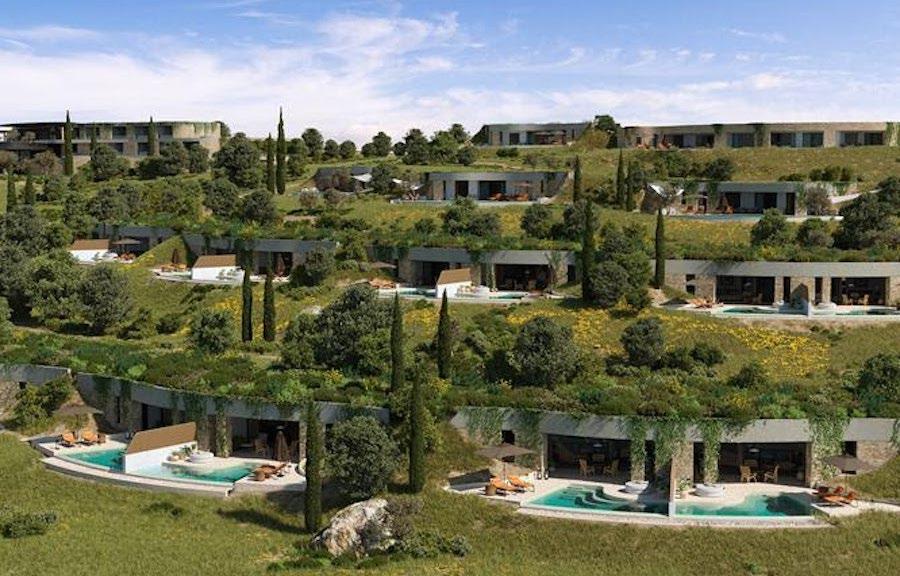 There are plenty of untouched European destinations, but one country in the east has proven to be one of the hottest of the year…
There are plenty of untouched European destinations, but one country in the east has proven to be one of the hottest of the year…
